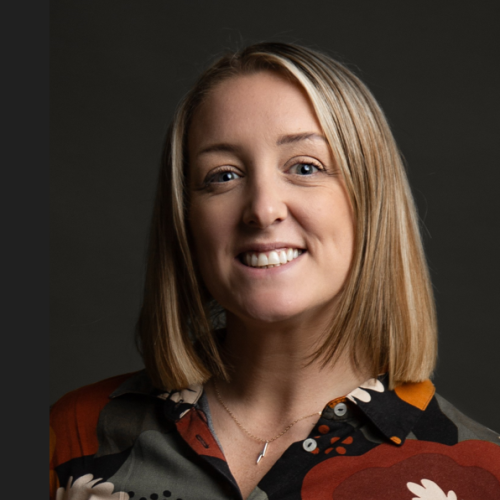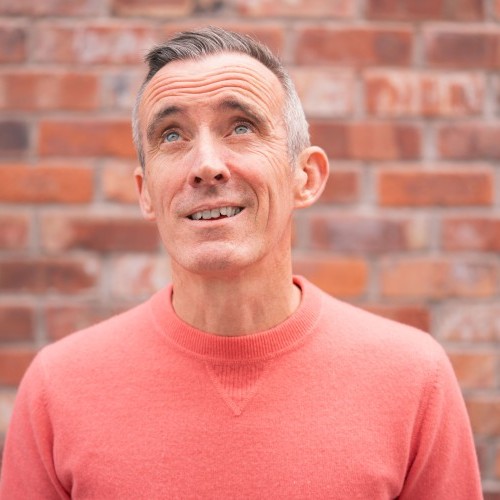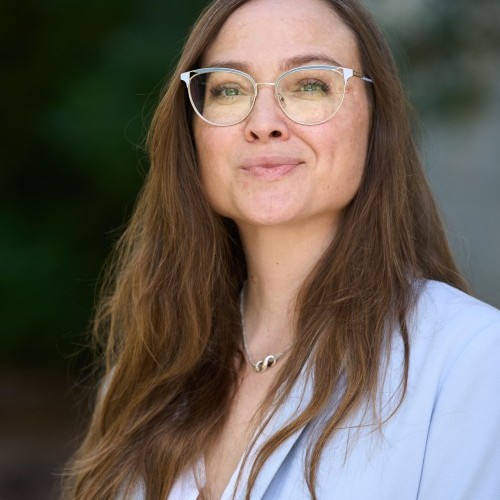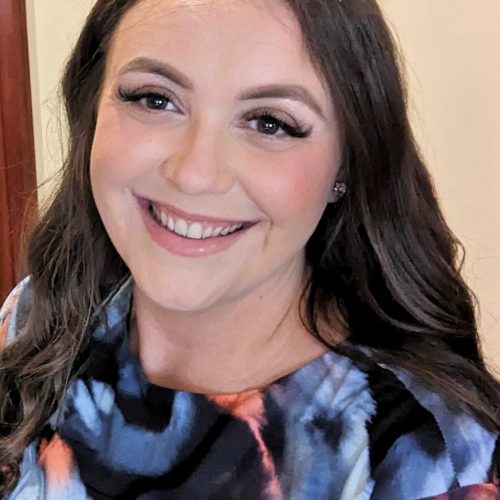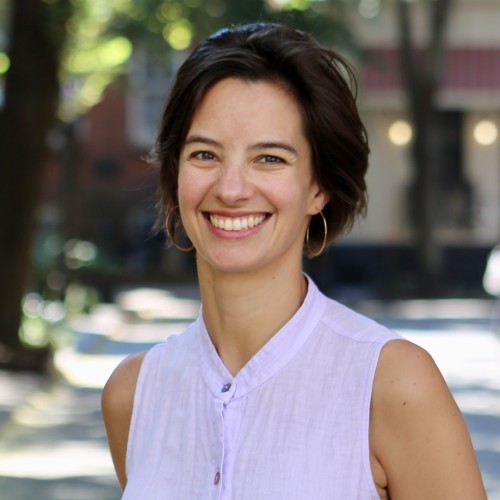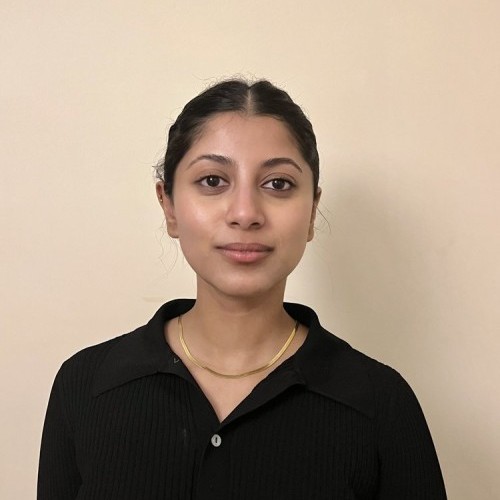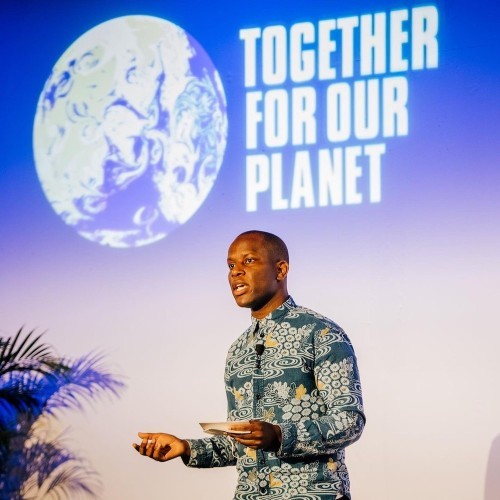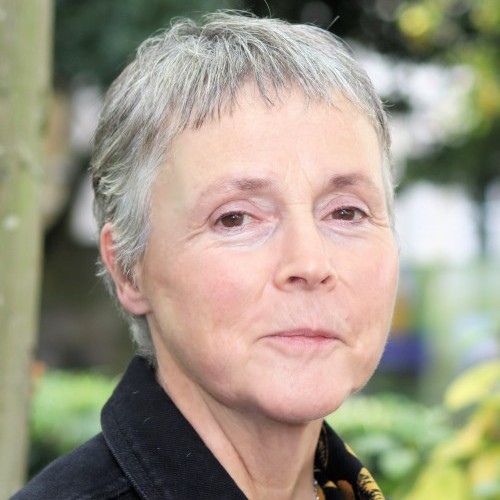Conference photos – Gala Dinner 2018
- Day 1Tuesday 14 October
- Day 2Wednesday 15 October
-
08.00 - Registration Opens
Opening keynote plenary
Quays Theatre
08.45 - 10.15Session 1- Opening plenary: Community-led regeneration: Salford’s next century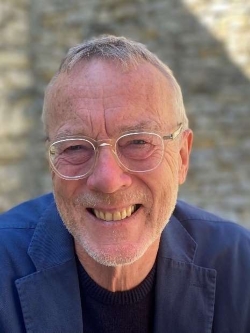
Stephen Gleave
Chair, Salford Design Review Forum; Honorary visiting professorship, University of Liverpool; Independent council member, University of Salford, UKStephen is an urban designer and award winning town planner. He is an experienced leader in design consultancy and has held Directorships with national and global businesses. He has over four decades of experience working across local government and the private sector and is highly respected within the development industry. His masterplanning contribution in cities and towns across the UK is extensive and has included significant regeneration and housing initiatives as well as major infrastructure projects in health, education and custodial development of national and regional importance. He has an enquiring approach to active problem solving, drawing out the best from the many who contribute to city building and placemaking. He has a reputation for achieving successful outcomes delivered effectively and collaboratively. Stephen is well known to many in the City of Salford and Greater Manchester and recent contributions to regional Design Strategy have included work with Stockport and the Mayoral Development Corporation and at Wigan on the town centre strategy. He retains academic interest in planning and urban design education and holds an Honorary Visiting Professorship with the University of Liverpool. Stephen’s association with Salford is long-standing, having first worked from the Quays when relocating back to the North West in the early 1990s after a successful local government career in London, including as Principal Urban Designer at the then Docklands Development Corporation. He recently completed a four year term as Northern Cities leader with AECOM and currently sits as an independent Council Member at the University of Salford.08.45Opening remarks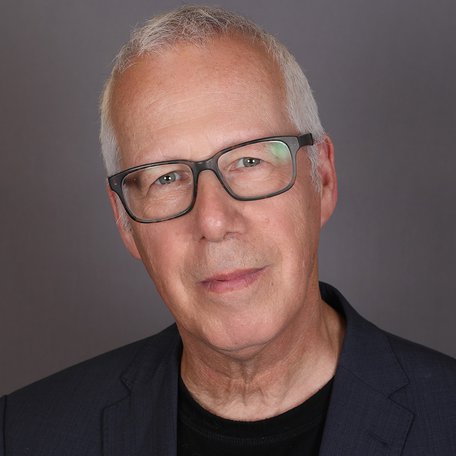
Prof Jeremy Myerson
Co-founder, Healthy City Design; Chairman, WORKTECH Academy; professor emeritus, Royal College of Art, UKJeremy Myerson has been academic, author and activist in design for more than 40 years. He co-founded the Helen Hamlyn Centre for Design in 1999, and was its director until 2015. Last year, he received emeritus professor status at the RCA, and he continues to direct his own venture, the WORKTECH Academy, which provides a forum for academics and practitioners to share new ideas on the future of work and workplace. He is the author of more than 20 books on a wide range of subjects in art, design and architecture, and he has curated many national design exhibitions. He has been at the helm of the Healthy City Design Programme Committee since the Congress’ inception in 2017.08.50Welcome address09.00Community-led regeneration: Salford’s next century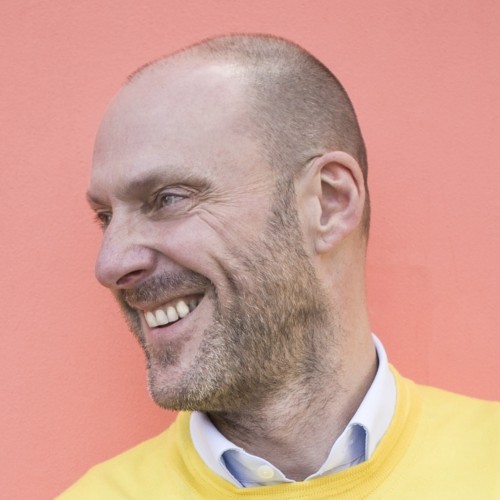
Martyn Evans
Creative director, Landsec, UKMartyn Evans is Creative Director at Landsec, one of the largest property development and investment companies in the UK. Martyn spent 17 years with Cathedral Group/U+I, including six years on the board before leaving to become the Development Director at the 1,200-acre Dartington Hall Estate in Devon in 2016. He returned to U+I in 2019 and was part of the team that joined Landsec on its acquisition of U+I in 2021. Martyn works across Landsec’s portfolio of commercial, retail and mixed-use developments particularly its large regeneration projects at the O2 Centre in Finchley Road, Lewisham Town Centre, Mayfield in Manchester and on the vision for the future of MediaCity in Salford following its acquisition by Landsec at the back end of 2024. Many of the projects Martyn has worked on have been driven by heritage assets at their centre. Martyn is Chair of the London Festival of Architecture, the Founder of YADA, a networking organisation that brings together young people in the architecture and development industries, writes a monthly column in BDOnline and has been a jury member of many architecutre prizes and awards schemes.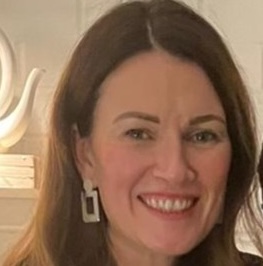
Patti Holmes
Deputy chief executive, EMPOWER, UKA dynamic impact driven leader with over 15 years’ experience in the design, development, and delivery of transformational and impactful strategy across fundraising, sponsorship and partnership working. Recognised for expertise in building, nurturing and leading high performing teams, cultivating donor and partner relationships, securing major gifts and negotiating impactful corporate partnerships.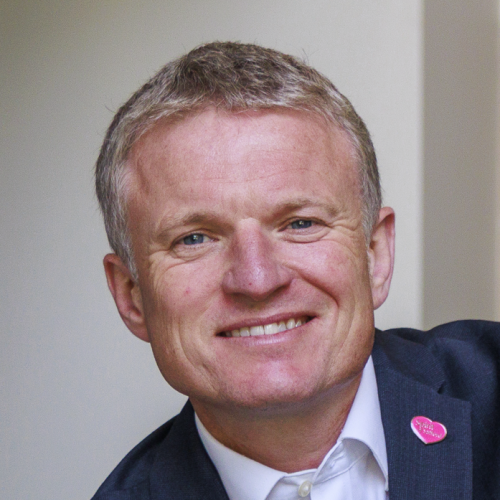
Stephen Young
Chief executive, Salford City Council, UKStephen Young is the Chief Executive of Salford City Council following 30 years’ experience in local government across the UK including in Lancashire, the Liverpool City Region, Cheshire and Greater Manchester. Most recently Stephen spent almost four years as the Chief Executive of Halton Borough Council during which time Stephen delivered on a range of large-scale programmes focusing on organisational transformation and change as well as regeneration and economic growth across the Liverpool City Region. Prior to joining Halton Stephen worked as the Executive Director of Growth, Environment, Transport and Community Services at Lancashire County Council developing a multi-billion-pound economic development pipeline for the county including innovative projects such as: • The new national Cyber Centre • The Advance Manufacturing Research Centre • Eden of the North and • A new second home for Lancashire County Cricket Club. Stephen also sits on various outside boards and committees covering a range of different topics ranging from business growth to the education sector. Stephen is a regular speaker and contributor to the trade press on a range of local government issues both in the UK and abroad and is married with a young family and in his spare time he enjoys running and watching his beloved Burnley FC.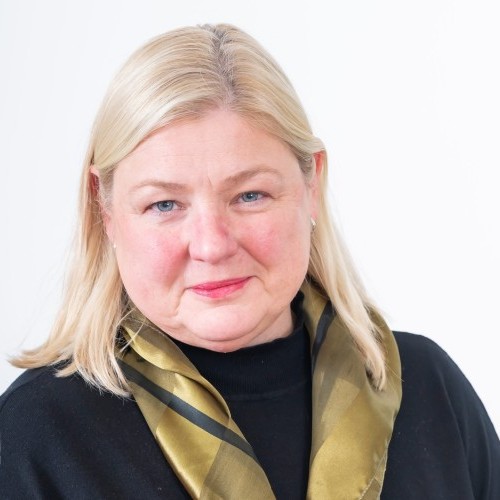
Julie Charge
Deputy chief executive and chief financial officer, University of Salford, UKJulie Charge serves as the Deputy Chief Executive and Chief Finance Officer at the University of Salford. Since joining the institution in 2014 as Director of Finance, Julie has progressed to her current role, which she assumed in January 2024. This expanded remit encompasses Estates & Facilities, Student Services, Culture and Marketing, Communications, and External Relations. Throughout her tenure, Julie has played a key part in driving positive transformation at Salford, notably championing Equity, Diversity, and Inclusion. She has worked to ensure these principles are embedded in the university’s practices and physical spaces, with initiatives such as the equalisation of holiday entitlement for all staff in July 2024 standing as testament to this commitment. Beyond Salford, Julie is involved with several external sector bodies: she is a member of the British University Finance Directors Group (BUFDG), represents the university on the JISC Finance Committee, serves as a co-opted member of the UCEA Audit Committee, and is a Non-Executive Director for UMAL. More widely Julie is a Non-Executive Director at York and Scarborough Teaching Hospitals Trust and a Trustee for the newly formed Yorkshire Learning Trust.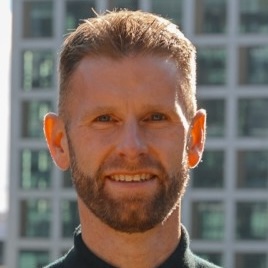
Phil Marsden
Managing director – North West, Muse Developments, UKCommunity-led regeneration: Salford’s next century
Abstract Copy
Salford is a city transformed—once known as a “Dirty Old Town,” now a beacon of innovation, creativity, and community-led regeneration. The opening keynote plenary brings together leaders from across public, private, and cultural sectors to explore how Salford’s bold approach to placemaking, stewardship, and legacy-building is shaping one of the UK’s fastest-growing cities with health, wellbeing and sustainable development at its core.
We’ll reflect on the city’s remarkable journey—from industrial powerhouse to global media hub—and look ahead to the next century of growth. How do we prioritise investment in health-creating development that is inclusive, sustainable and rooted in Salford’s community identity, underpinning economic growth and opportunity for all? What does long-term stewardship look like in practice? And how do we leave a legacy that will support future generations to thrive and prosper?10.15 - 10.45Video+Poster Gallery, coffee and networkingSelect a Stream
- Stream 1Community impact
- Stream 2Urban design, placemaking and the public realm
- Stream 3Population health and integrated care
- Stream 4Workplace, transport and mobility
- Stream 5Planetary health
-
10.45 - 12.30Session 2- From aspiration to designation: Comparing Marmot City approaches
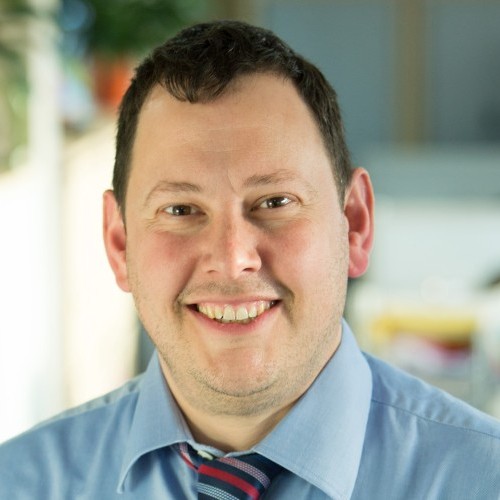
Matthew Ashton MPH, MBA
Director of public health, Liverpool City Council, UKProf Ashton was appointed director of public health for Liverpool City Council in April 2020 in a joint appointment with the University of Liverpool, where he is an honorary professor in the Department of Public Health and Policy. He leads a team of 30 people in the local authority, covering a range of public health activities, including the commissioning of public health services, health protection, health improvement, healthcare public health, embedding health in all policies approaches, and addressing the wider determinants of health. Matt led on the response to the Covid-19 pandemic for Liverpool, and his efforts have been recognised nationally through the award of the Faculty of Public Health’s presidential medal in 2021, and also the Chief Medical Officers' National Impact Award in 2022. Matt is passionate about bringing together the best people and partnerships in the region to improve health and wellbeing and reduce inequalities in local communities.10.45From aspiration to designation: Comparing Marmot City approaches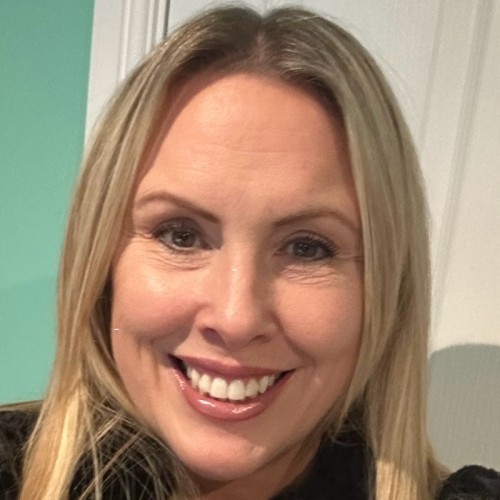
Alice Wiseman
Director of public health, Gateshead and Newcastle, UK
Tim Fielding
Deputy director of public health, Leeds City Council, UK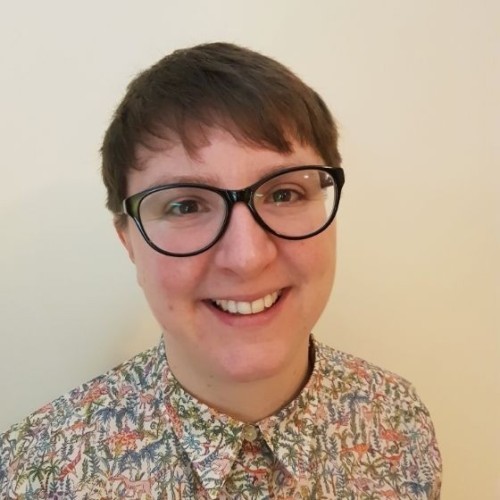
Lucy Vanes
Public health consultant, Manchester City Council, UKFrom aspiration to designation: Comparing Marmot City approaches
Abstract Copy
What does it take to become a Marmot City – and what does it mean in practice? This session will explore, through comparative analysis, the strategies cities have employed as Marmot cities, including community engagement, policy innovation and cross-sector collaboration to improve health outcomes and reduce inequalities. It will also explore the specific challenges faced by cities and how they have shaped their Marmot city approach. Attendees will gain insights into what works, what does not, and how the path to Marmot City status is as much about identity and vision as it is about checklists and metrics. There will also be an opportunity to hear about the future vision from each of the areas as Marmot cities.
The session will feature practical ten-minute presentations from Liverpool, Leeds, Manchester, and Newcastle, focusing on:
• what being a Marmot City means in each local context;
• the priority areas each city is focusing on; and
• key achievements and lessons learned to date.
Following the presentations, all speakers will participate in an interactive panel discussion, answering questions from the audience and offering insights into the real-world application of Marmot principles at the city level. Whether you are involved in public health, local government, community development, this session will provide grounded, practical examples of health equity in action.12.30 - 14.00Video+Poster Gallery, workshop, lunch and networkingLunchtime reception: Creating social value in Salford and Trafford14.00 - 15.30Session 3- Live Well – Greater Manchester’s Movement for community-led health and wellbeing Chair: Gillian McLauchlan, Interim director of public health and wellbeing, Salford City Council, UK
Chair: Gillian McLauchlan, Interim director of public health and wellbeing, Salford City Council, UK
Gillian McLauchlan
Interim director of public health and wellbeing, Salford City Council, UKCreating healthy places has been a passion of Gillian from her early career working in environmental health in the UK and Laos. She has held public health positions in local authorities, NHS and academia. She is currently the Director of Public Health for Salford and leads nationally on sexual health, health protection and vaccinations.14.00Live Well – Greater Manchester’s movement for community-led health and wellbeing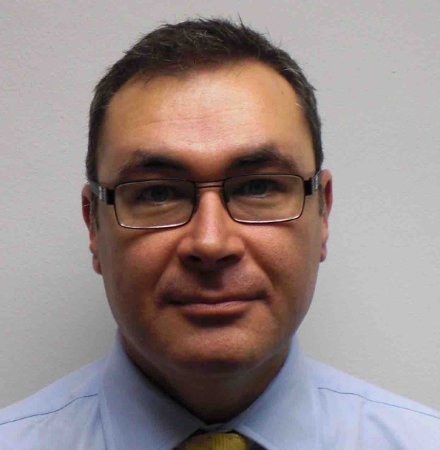
Warren Hepplolette
Director of Strategy and Prevention, NHS Greater Manchester Integrated Care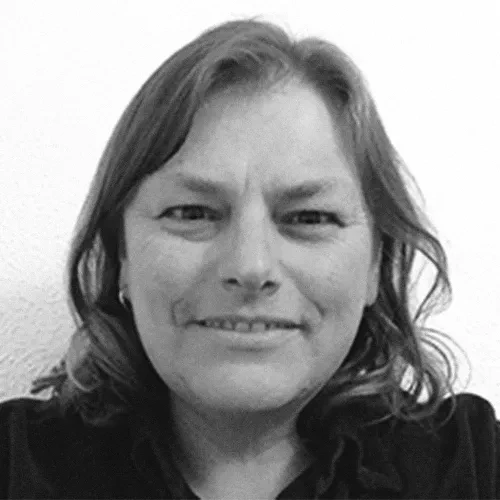
Alison Page
Director, 10 GM; Chief executive, of Salford CVS
Alison Jones
Development manager, CommUNITY little Hulton, UK
Jennifer-Anne Smith
Chief executive officer, Salford Loaves and Fishes, UKJenni lives, works, and volunteers in Salford with a background in consultancy in the VCSE heritage sector, delivering several large Lottery-funded projects. The Covid pandemic saw her become a founder member of the Salford Mutual Aid Coalition, a group formed to help support local people through the crisis. This provided the impetus to continue helping improve people's lives and to support Salford’s communities, leading to her joining Salford Loaves and Fishes as its CEO. The charity supports anyone in need of assistance in overcoming barriers to accessing the support they need to address their life challenges. In the last three years, it has supported more than 8000 Salford residents, who in 2024 made over 24,000 visits to its drop-in centre. Alongside this strategic role, Jenni still finds time to support our communities through her volunteering across a range of Salford’s organisations, including being the chair of Healthwatch Salford’s trustee board.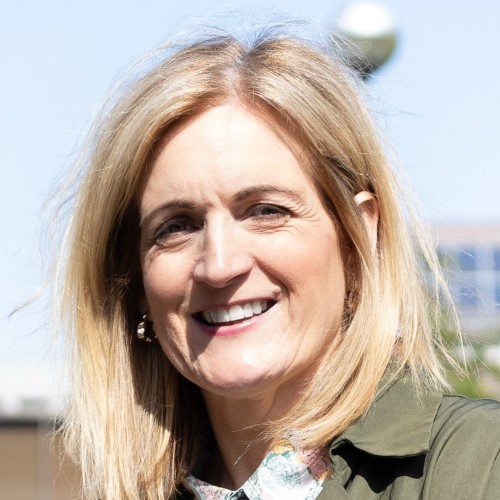
Catherine Connors
Service manager, Salford City Council Welfare Rights and Debt Advice Service, UKCatherine leads an established team of expert welfare rights and debt advisers within Salford City Council’s Adult Social Care and Health Partnerships , working with partners across the public services, Health and VCSE to improve access to advice for Salford and GM citizens. She has over 30 years' experience in local government focused on tackling poverty, starting out as a welfare rights practitioner in neighbourhoods and a Children’s Centre before moving into strategic commissioning to improve financial inclusion in Salford. Catherine is driven by a strong commitment to social justice and the critical role of welfare rights and debt advice in addressing inequality. To influence social policy at a national level, she has worked with a range of academics to explore the impact of UK Welfare Reforms on citizens including studies into people’s experiences of benefit sanctions, underemployment and claiming Universal Credit.Live Well – Greater Manchester’s movement for community-led health and wellbeing
Abstract Copy
The neighbourhoods we live in and the communities we are a part of, shape and affect our health and wellbeing. Community organisations understand local needs and are trusted by their communities but the impact they can make is often restricted by red-tape and a lack of resources. Greater Manchester is showing a different way forward, through initiatives like GM Live Well, public services and communities are working together to create economic growth, social connection, and improved health. This panel explores how the city region is supporting a community-led approach to living well.15.30 - 16.00Video+Poster Gallery, coffee and networking16.00 - 17.15Session 4- Addressing health inequalities through community-led decision-making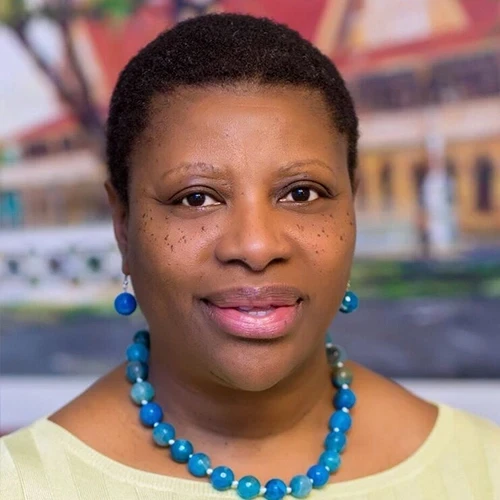
Yonette F. Thomas PhD
Founder and president, UrbanHealth360, USADr. Yonette Felicity Thomas is the founder and president of UrbanHealth360, an organization of multidisciplinary thinkers centered on a people-oriented, community-focused approach to urban health. Dr. Thomas is a globally acknowledged thought leader, urban health champion, and an advocate for valuing the health of women and girls as an economic imperative. A social epidemiologist/medical sociologist by training, she has served as the chief of Epidemiology at the National Institute on Drug Abuse in the National Institutes of Health, held academic positions at University of Miami Miller School of Medicine and Howard University, and as a vice president for research. She founded Borjoner International and Strategic Transitions to influence the progress, health, and wellbeing of individuals and communities across the world. As a founding board member of Women’s Economic Imperative (WEI), she leads the organization’s focus on the health of women and girls as an economic value. Her work as global advisor for Evidence for Sustainable Human Development Systems in Africa (EVIHDAF) and the Centre for Urban Health and Development within the Asian Institute of Poverty Alleviation (CUHD-AIPA) extends her focus on the global south and the realization of the Sustainable Development Goals in this last decade. She is the Associate Editor for Women and Girls for Cities & Health. She is a founding board member of the International Society for Urban Health (ISUH) and recently led the organization into sustainability by serving as the inaugural executive director (as a board member) and has served as a science advisor for urban health to the New York Academy of Medicine. She is a founding board member and former vice president of the Interdisciplinary Association for Population Health Science (IAPHS) and served on the Steering Committee of the National Hispanic Science Network on Drug Abuse for more than a decade. She served on the National Academy of Sciences Committee on Revisions to the Common Rule for the Protection of Human Subjects in Research in the Behavioral and Social Sciences. Her primary research and publications have focused on the social determinants of health, health disparities, the health of women and girls as an economic value, the social epidemiology of drug abuse and HIV/AIDS and the link with geography, including edited volumes: Geography and Drug Addiction, Crime, HIV, and Health: intersections of Criminal Justice and Public Health Concerns.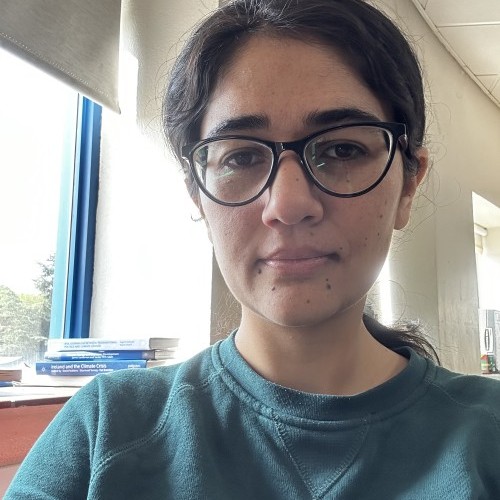
Rabia Qusien
London School of Economics and Political Science; Urban Health 360, USA16.00Healthy cities in a changing climate: An integrated approach for local action
Matt Towner
Director of programmes, Impact on Urban Health, UKMatt is the Director of Programmes at Impact on Urban Health. Matt first joined Impact on Urban Health in 2018. He was previously Programme Director for our Health Effects of Air Pollution programme. In this role, he led on shaping the strategic direction for the programme which aims to reduce air pollution emissions and associated health inequity. He also led the team to fund and collaborate with a broad range of partners, such as community activists, cargo bike companies and national campaigning organisations. He previously worked on our Children’s Health and Food, and Financial Foundations for Adult Health programmes. He has also headed up ShareAction’s Health Team as part of a secondment.
Christine Greenhalgh
Lecturer in public health, University of Manchester, UK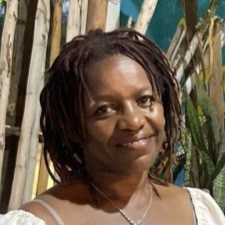
Wangu Mwangi
International Institute for Sustainable Development; Science and people lead, land and soil loop, Ambition Loop, KenyaA story teller, development critic, and aspiring farmer, Wangu has more than 20 years' experience in supporting organisations to critically analyse how they are contributing to a more equitable and sustainable world, and to communicate this effectively to different audiences. Her specialties include: strategic communications; knowledge management; capturing lessons from development practice; linking research, policy and practice; web content management; and capacity development.
Mercy Sepadi
Lecturer, Tshwane University of Technology, South Africa
Greg Williams
Senior lecturer in public health, University of Manchester, UKHealthy cities in a changing climate: An integrated approach for local action
Abstract Copy
Climate change amplifies existing inequities in cities, neighborhoods, and communities through multiple pathways, including higher sustained temperatures, devastating floods, air pollution, and poor quality of life. The World Bank estimates that close to 135 million people worldwide could be pushed into poverty by 2030 because of climate change. Healthy cities are crucial for mitigating and adapting to climate change. Sub-national policy actions involving community-centred knowledge, awareness campaigns, and solutions are significant contributors to climate mitigation.
This panel highlights the varied opportunities for sustainable community-centred solutions and policy actions. Panelists will be asked to present context-specific examples of sustainable solutions that have resulted and are likely to result from cross-sectoral collaborations, bottom-up approaches that involve community participation, and how climate literacy can co-benefit community health outcomes and local action.End of Community impact stream -
Urban design, placemaking and the public realm
Compass Room
10.45 - 12.30Session 6- The hopeful city – a living manifesto for an ecology of care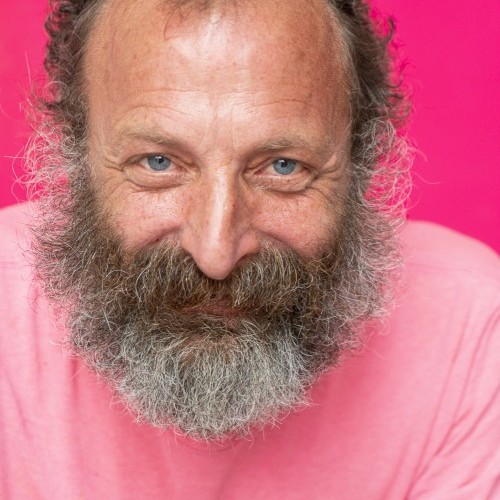
Ab Rogers
Creative director, Ab Rogers Design, UKAb Rogers is a Designer and Founder of Ab Rogers Design (ARD), a design and architecture studio he established in 2004 and now runs with Co-director Ernesto Bartolini. Known for a wide-ranging practice informed by his unique imagination, Ab’s studio specialises in the design of caring and experiential spaces, sustainability and inside-out design. Working internationally across health, culture, hospitality and residential sectors, it champions a broad skill base in its creation of active, supportive, engaging environments that inject narrative and purpose into the everyday. In 2021 the studio won the Wolfson Economics Prize with its design for the hospital of the future. Following this, Ab co-founded the DRU+, a design research unit that explores the interrelationship between design, culture and neuroscience, using scientific rigour to deliver the art of care, alongside Francesca Bertolotti-Bailey and Ash Ranpura. He has taught all over the world, creating and leading the Interior Design MA Programme at the Royal College of Art from 2012 to 2015. Recent projects include sustainable structures for the Thai music festival ‘Wonderfruit’, the Maggie’s Centre at the Royal Marsden Hospital and a series of immersive exhibitions at cultural centre 180 The Strand, including shows for Wes Anderson’s films 'Asteroid City' and 'French Dispatch', and Universal Everything’s digital extravaganza ‘Lifeforms’.10.45The hopeful city – a living manifesto for an ecology of care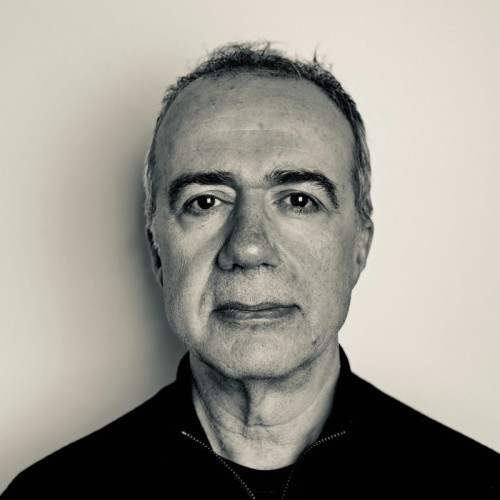
Christophe Egret
Architect and urbanist, UKChristophe Egret is an architect and urbanist currently developing Soul in the City, a project exploring the non-material dimensions of urban life and launching as a podcast in 2026. His work now focuses on how cities can nurture presence, connection and hope in an age of transition. He previously co-founded Studio Egret West, where for twenty years he led major regeneration and adaptive reuse projects including Park Hill in Sheffield, the Balfron Tower in London, and the Earls Court and Mayfield Manchester frameworks. A regular lecturer and critic at the London School of Architecture, he continues to speak internationally on healthy and soulful cities.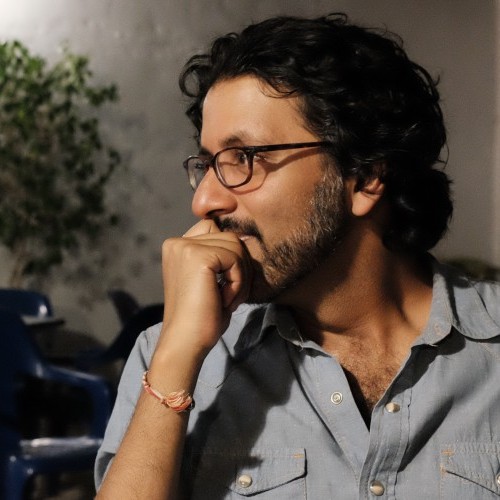
Ash Ranpura
Co-founder, DRU+, UKDr Ash Ranpura is a neurologist and cognitive neuroscientist who has been active in brain research for over 25 years. He received his Bachelor's degree from Yale University, completed an M.D. at the Medical College of Ohio and carried out his Ph.D. research at the Institute of Cognitive Neuroscience in Queen Square, London. He completed an internship in internal medicine and a residency in adult general neurology at Yale-New Haven Hospital in Connecticut, where he spearheaded new initiatives for improving patient transport and reducing the use of sedation for MRI. In addition to his clinical work, Dr Ranpura has made significant contributions in science communication, having been a Co-founder of Café Scientifique at the Photographers’ Gallery in London, a founding editor at 'BrainConnection' magazine in San Francisco and a host of radio programmes for BBC Radio 4, National Public Radio and Audible.com. He is co-author, together with presenter Ruby Wax and Buddhist monk Gelong Thubten, of 'How to be Human: The Manual', a practical guidebook exploring the effects of meditation on the brain.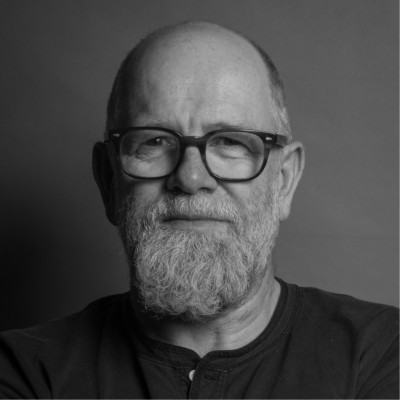
Tom Lloyd
Co-founder, Pearson Lloyd, uKTom is co-founder of the London design studio PearsonLloyd. He trained in Furniture Design at Nottingham, before completing an MA in Industrial Design at the RCA in 1993. Tom founded PearsonLloyd with Luke Pearson in 1997. The studio’s work focuses on design for manufacture in the fields of furniture, transport design, and the public realm and has a reputation for producing modern designs that combine aesthetic clarity with functional and technological innovation. In November 2021, Tom took up the role of Master of the Faculty of Royal Designers for Industry. Specialties: Furniture and Industrial Design - workplace, transport, and cities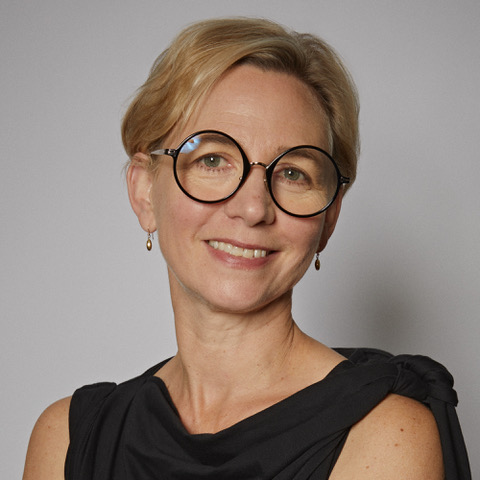
Melda Bur
Architectural designer, Melda Bur, UKMelda Bur is a London-based architectural designer with over 25 years of international experience in creative leadership, working for a range of high-profile clients and global brands from oBices in New York, Los Angels and London. Melda studied Fine Art and Interior Design in her native Canada, before moving to New York where she received a graduate degree in architecture from Columbia University. The focus of her work in New York and Los Angeles was retail design, working for brands from Puma to Georgio Armani. In 2004 she moved to London. Melda was Selfridges Director of Store design for almost 14 years, overseeing the design transformation of the four Selfridges stores. During her time at Selfridges, she became interested in the role of the public realm and civic spaces, in their many forms. Through her work, she championed the broader role of the department store not just as a place of commerce but for the enrichment of daily life both for residents and visitors to London, Birmingham and Manchester. Most recently, Melda has been working with a Canadian team including Landscape Architects, ecologists, Indigenous consultants, and historians, on the redevelopment of Queen’s Park, a beloved and historically important green space in downtown Toronto. Her research and interactions have furthered her appreciation of the importance of public places, particularly parks and green spaces to the health and wellbeing of all urban dwellers and the significance of ecology, generosity and community engagement.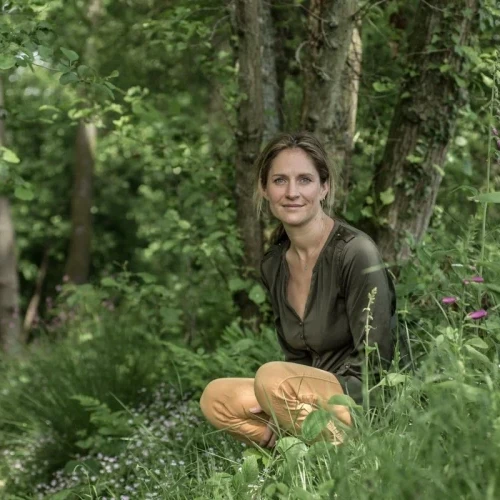
Lulu Urquhart
Landscaper, Urquhart & Hunt Landscape Design, UKLulu Urquhart has been developing her relationship with the natural landscape for the past 30 years. She’s a passionate plantswoman and acclaimed designer on the world stage, specialising in nurturing generative and dynamic landscapes and gardens in both rural and urban settings. Her work hones in on ecological restoration, reigniting subtle earth energies, myth and storytelling, and supporting nature’s recovery and so to our own recovery to natural balance and living in harmony. At the heart of her work is the re-establishment of our connection to nature – reawakening an innate understanding of how to live in a symbiotic relationship with the natural landscape and among all the living world, helping people create a sense of place in an ever-changing world.
Ilona Sagar
Artist, Ilona Sagar, UKThe hopeful city – a living manifesto for an ecology of care
Abstract Copy
A collective intelligence of diverse minds, including artists, designers, landscape gardeners, neurologists, architects, and curators, is charged with devising a series of single ideas that together can synthesise a living manifesto for the creation of a more caring city.
Considering the issues of our urban communities from a multitude of perspectives, this
challenge asks participants to address how we can expand the civic nature of our cities, making our shared built environment more generous, protective, active and inclusive.
The panel’s ideas and design proposals will look at how to combat loneliness, poverty, obesity, and isolation, exploring ways to empower citizens to positively change their behaviours, to generate community cohesion and interaction, and to encourage different forms of connection within our public realm.
They will consider ways to dissolve boundaries, to better share our space with non-humans, allowing them to enrich our environment, or look at provocations like communal ovens, gardens and generous spaces with open programmes that can spark imagination and creativity, inviting people to stop, make, move, perform, relax, talk and touch.
Following the presentations, the panel will participate in a wider discussion addressing topics related to the role of art, design, food, psychology, philosophy, economy and commerce, history, biodiversity, biophilia and biomimicry in creating a balanced ecology of care within the urban public realm, and the importance of community spirit, investment, and connection in addressing health concerns in our cities.10.45 - 12.30Video+Poster Gallery, workshop, lunch and networking14.00 - 15.30Session 7- Joyful placemaking: The role of joy, creativity and play in health creation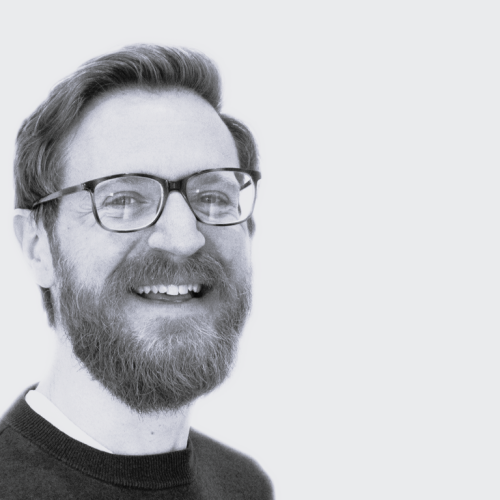
Joe Sarling
Strategic director, Greater Manchester Moving, UKAs strategic director for health, Joe provides strategic leadership for health and care integration, healthy active places and placemaking, and walking, wheeling, and cycling. He works closely with partners across Greater Manchester, including NHSGM and the GM Integrated Care Partnership. Having graduated with a BA and MSc in economics, he has built a career in research, policy, strategy and transformation. With a professional background in placemaking and regeneration, he has led strategic functions within charities, private sector, civil service, and think tanks. He is passionate about the potential of connecting practice, insight and policy development – harnessing their combined power to create the conditions for better outcomes for people.14.00Joyful placemaking: The role of joy, creativity and play in health creation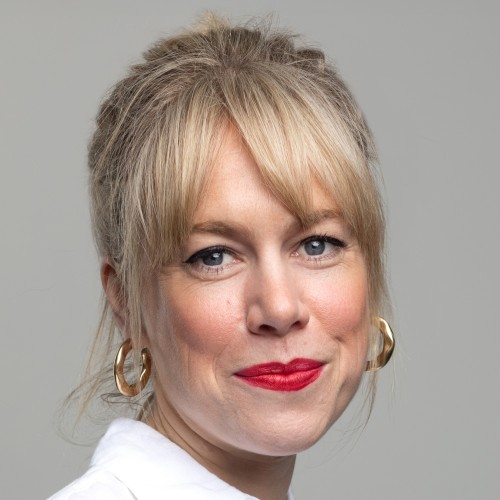
Sarah Castle
Co-founding director, IF_DO, UKSarah Castle is an award-winning Mancunian architect and co-founding director of architecture practice IF_DO, specialising in social infrastructure, community, and cultural projects. Recognised by the Architects' Journal as one of their 40 Under 40 (2020), named a 'Future 50 Global Leader' by the Project Management Institute (2024), and shortlisted for BD Young Architect of the Year (2021), Sarah brings a strong focus on inclusive design practices to her work. Her notable projects include the Civic Trust Award-winning Brent Cross Town Primary Substation, and the award-winning transformation of historic buildings in Hastings into vibrant community facilities, including The Observer Building retrofit. Sarah is a founding member of Part W—a campaign group advocating for gender equity in design that won the inaugural Prize for Research in Gender and Architecture (2023). She is also a sought-after international speaker who has delivered keynotes including at Utopian Hours, Turin 2024 and Architects’ Journal Retrofit Live 2025. Sarah serves on the Places Matter Design Review Panel and Salford Design Review Forum, and also is as a guest tutor at Manchester School of Architecture.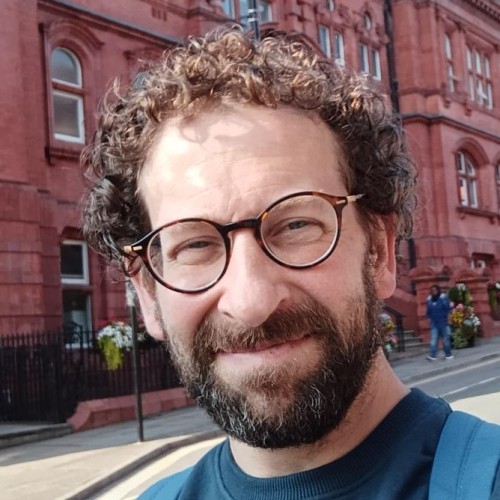
Ben Jewell
Public health specialty registrar, Wigan Council, UKBen is a public health registrar, interested in the natural and built environment, community power, and storytelling. His early work after a biology degree was in conservation (RSPB) and sustainability. He then sidestepped (side-leapt?) into professional acting. Side hustles have included cycle training for children, teaching, and humanist wedding celebrant! Ben started as a trainee in a North Yorkshire council via Impact, the national graduate scheme for local government. He joined Trafford Council April 2020, mid-pandemic, and was redeployed to PPE and public health. Work has ranged from partnerships and strengthening service delivery, assessing community needs, and in 2025 he and his team won an award for advocacy and influencing on active travel. He's now on the Public Health specialty training scheme, initially at Wigan, eventually to become a public health consultant.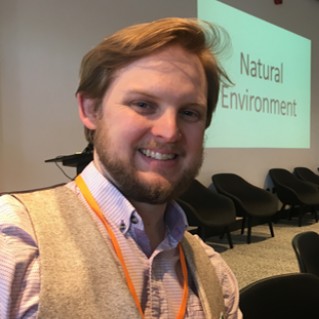
Dave Bell
Principal Adviser: Health and the Environment, Natural England, UKJoyful placemaking: The role of joy, creativity and play in health creation
Abstract Copy
This panel discussion explores how spaces infused with joy, creativity, and play can enhance community health and wellbeing.
Traditional health service-led approaches rarely change the upstream, place-based drivers of poor health, and they too often fail to centre lived experience or build sustained local capacity.
Moving beyond traditional approaches to health, this discussion explores the power of our neighbourhoods – inviting connection, imagination, and delight in our public spaces to foster belonging and support mental, physical, and social health. We will explore how simple invitations to see our neighbourhoods as places of play can change how we feel about our places in the short term, as well as creating evidence for longer-term actions and interventions to shape our neighbourhoods.
By bringing together voices from across sectors and roles, the panel will discuss their perspectives and actions to create joy in our neighbourhoods. The session offers insights and inspiration for reimagining cities and neighbourhoods as vibrant, health-creating ecosystems.15.30 - 16.00Video+Poster Gallery, coffee and networking16.00 - 17.15Session 8- The art of wellbeing: Creative and media interventions for healthy cities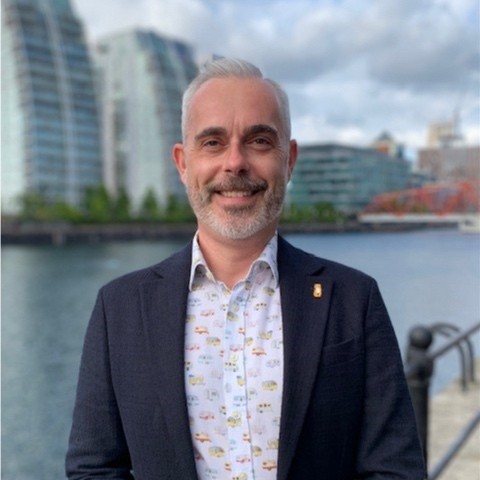
Darren Grice
Director of culture and place partnerships , Salford City Council, UKDarren Grice is an experienced leader in the cultural and community sectors with a strong background in strategic development, management, and organizational growth. Currently serving as the Director of Culture at Salford City Council, a position held since May 2023, Darren is dedicated to fostering cultural initiatives within the region. Prior to this, Darren held the role of Strategic Development Lead for Culture and the Visitor Economy at Rochdale Borough Council from November 2021 to May 2023, where they played a key role in advancing cultural and economic initiatives for the area. Earlier in their career, Darren was the Deputy CEO at Your Trust Rochdale from November 2017 to November 2021, following a successful tenure as the Head of Culture, Health, and Participation from August 2015 to November 2017. Additionally, Darren served as the CEO of The Garage Trust in Norwich for over 11 years, shaping its mission to provide accessible arts and culture to the community.16.00The art of wellbeing: Creative and media interventions for healthy cities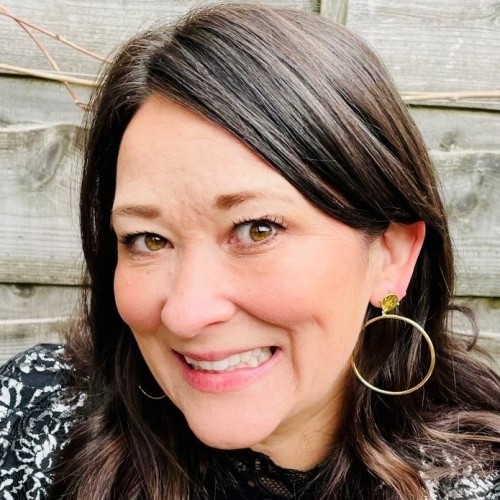
Josie Cahill
Head of partnerships and engagement, BBC Salford, UKJosie Cahill is a leader in the culture and creative industries, with 20 years’ experience spanning public, private, and non-profit sectors. She is currently Head of Partnerships and Engagement at the BBC in Salford, where she drives meaningful place-based partnerships and activities with a range of organisations and stakeholders. Previously, Josie was Director of Place at MediaCityUK— a large creative, tech and media cluster in Salford, Greater Manchester and one of Europe’s most successful regeneration projects—where she led cultural placemaking, partnerships and place branding. Whilst in this role, alongside British designer Wayne Hemingway MBE, she co-founded We Invented the Weekend, a free multi-partner festival with an annual audience of 90,000 people. Her career began at the British Council and evolved through key roles at the BBC, including leading strategic communications for the BBC North relocation and co-founding Women at the BBC, the organisation’s first women’s network. Josie speaks passionately about placemaking, media, partnerships, events & festivals, and building community. Ask her about astrophysics and she’ll smile politely.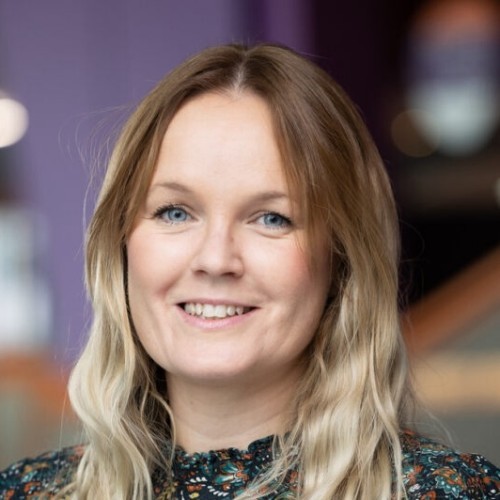
Jennifer Riding
Director of learning and engagement, The Lowry, UKJenny is the Director of Learning & Engagement at The Lowry, where she has worked since 2018, leading the department since 2020. In her role, she provides strategic leadership for the organisation’s charitable work with families, schools, young people, and communities. With over two decades of experience in the arts and education sector, Jenny’s career has spanned drama therapy, applied theatre and community arts. She holds a first-class degree in Drama & English from Lancaster University and an MA in Drama Therapy from Derby University. Her practice has consistently focused on using the arts as a tool for social change and personal development. Before joining The Lowry, Jenny was a lecturer in Applied Theatre at the University of Bolton and spent eight years at the Octagon Theatre in Bolton, where she developed and delivered a wide range of youth and community arts programmes. Jenny is a passionate advocate for the transformative power of the arts. She believes that creativity is a human right and a vital force for growth and change.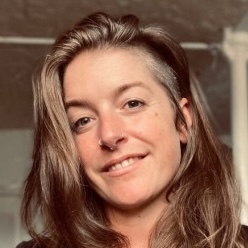
Sally Gilford
Operations officer - creative and community events, Salford culture place partnership, Salford City Council, UKI have worked as a socially engaged creative practitioner and producer with over 15 years experience across the public, private and third sector. Commissioned by internationally renowned galleries, museums, educational institutions, and cultural organisations, I have co-created with people and communities to deliver large-scale public artwork, events, and exhibitions. Based at Islington Mill in Salford since 2009, I founded Salford Makers, a collective of artists, designers, educators and makers with whom I led on a range of collaborative projects, events, commissions and social enterprise. Driven by a dynamic approach and a passion for improving spaces, places, and accessibility through collaboration, I am interested in connecting the dots between place, identity and heritage, seeking to create meaningful connections and build a sense of community. My participatory approach within my creative practice encourages the exploration of multi disciplinary art forms to encourage self-expression and creative experimentation. Process led artistic collaboration is at the heart of my practice. Exploring the intersection of STEM thinking in digital and analogue realms, I’m interested in seeking out both visible and hidden patterns within found and supplied data. From architectural artefacts, bio images to historical archives and beyond, I tell stories that nod to the past, present and future, subverting traditional ideals into dynamic provocations. With a background in surface design and print, my creative work is bold, playful and inquisitive. Since 2014, I’ve been collaborating with scientists from the Wellcome Trust Centre for Cell Matrix Research at the University of Manchester, making work in response to their research. Using microscopic bio images of cells and tissues, I create one of a kind print and and surface designs incorporating both hand printed and digital processes. A selection of my fabrics are available from my online shop on my website.
Caroline Alexander
Strategic lead for arts and creative health, Salford Community Leisure, UKThe art of wellbeing: Creative and media interventions for healthy cities
Abstract Copy
As cities grapple with rising mental health challenges and social fragmentation, the intersection of creativity, culture, and media emerges as a powerful force for healing and connection. This panel explores how artistic expression and public art, cultural programming, media storytelling and creative placemaking can transform urban environments into spaces of wellbeing and belonging, that foster social cohesion and mental health.
From murals that spark dialogue to festivals that celebrate diversity, and from community media projects to immersive digital experiences, creative and media interventions are reshaping how we think about public health in the city. Panellists will share innovative case studies and research that highlight the role of creative placemaking, public art, and cultural narratives in fostering mental wellness, social cohesion, and inclusive urban development.End of Urban design, placemaking and the public realm stream -
10.45 - 12.30Session 9- From hospital to community
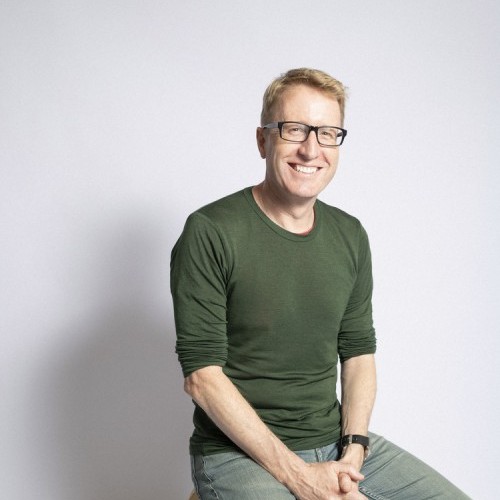
Matthew Blair
Principal, BVN, United KingdomMatthew is an architect, technologist and Principal at BVN, acknowledged for his cross-sector expertise and his ability to apply current and novel technologies and future of work knowledge to redefine spaces across industries such as health, education, and science. With a career spanning Australia, New Zealand, Thailand, North America, and the UK, Matthew now leads BVN’s UK Studio, bringing a global perspective to his work. Passionate about driving change, Matthew also steers many of BVN’s transformational and innovation initiatives, collaborating with universities, start-ups, and other architectural practices to expand the boundaries of what architecture can achieve. His work reflects a deep understanding of how insights from workplace design can inform and enhance other sectors, from healthcare to life sciences, creating environments that foster collaboration, adaptability, and human connection.10.45Delivering the three shifts – a call for a systems approach to public-sector collaboration
Sophie Hockin
Senior Manager - Regeneration and Infrastructure , NHS North East London , United KingdomSophie is a chartered town planner and was recognised as one of the The Planner Magazine’s Women of Influence in 2025. Sophie is a Senior Manager within the unique Regeneration and Infrastructure team at NHS North East London Integrated Care Board where she leads the ICB’s planning programme which focusses upon ensuring that the healthcare infrastructure within the area is sufficient to meet current and future population needs. This work includes engaging with senior stakeholders to influence the policy agenda around planning for health which transcends a number of areas including conventional town planning, health master planning, public health, net zero & sustainability and estates. Prior to joining NHS North East London, Sophie worked in a range of public and private sector roles in planning and regeneration within Central, North and East London.Delivering the three shifts – a call for a systems approach to public-sector collaboration
Abstract Copy
The Darzi Review (2024) was clear that a whole-system approach to healthcare is required to improve the nation’s health and reduce health inequalities. The NHS 10-year plan will involve moving health services from hospital to community; shifting systems from analogue to digital; and refocusing from treating sickness to preventing illness.
This paper will argue that for the NHS to move from treating sickness to preventing ill health, an entire system shift of the public sector will be required. Regional strategic planning will be required. Local government departments of public health, planning, regeneration, housing, and social care will need to collaborate beyond policy and ensure that decisions are aligned to avoid the unintended consequences of widening health inequalities. The challenges facing the NHS can only be addressed through a systems approach, as the built and natural environment are inherently linked to health outcomes. This paper will explore how health outcomes can be improved in a financially constrained environment by driving creativity and innovation.
Using case studies from North East London, such as the St George’s Health and Well Being Hub, we will demonstrate how we can drive innovation in a practical sense to deliver cost savings and long-term benefits to the NHS. Linked to the 10-year plan, sufficient space that is affordable and appropriately designed for health services will be required in order to secure the move of services from hospitals to the community, and we need to think differently about how public-sector estates operate to facilitate this. The delivery of healthcare infrastructure can no longer rely on either central government funding or S.106 grants, yet the existing infrastructure has significant backlog maintenance costs and isn’t fit for purpose.
Drawing on our experience of working with the One Public Estate programme in North East London, we will set out our vision for the delivery of flexible community infrastructure to drive maximum efficiency from the public-sector estate. There is only so much influence the public sector has over how the built environment is shaped, and yet the built environment is often the determining factor as to whether a person has a secure livelihood or not. Therefore, every opportunity to deliver better value should be maximised. In order to deliver place-based care, the public sector will need to have the confidence to prioritise healthy environments above all else.
Learning Objectives
- How can public sector estates teams collaborate to deliver health infrastructure
- How can health outcomes be prioritised in the current economic climate
- How can the wider public sector contribute to delivering the three shifts
11.05Health as a city’s competitive advantage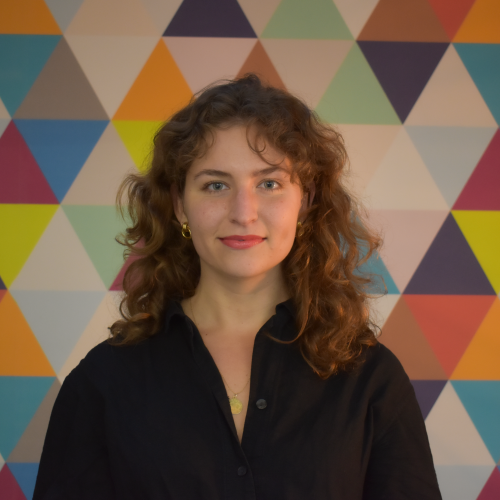
Katie Mullowsky
Director of research and urban health, Future Places Studio, UKKatie is the director of research and urban health at Future Places Studio. She has over a decade of experience across the public, private and charity sectors on a range of technical urban planning projects with the overarching goal of addressing and challenging health inequalities. A transport planner by training, she has long been focused on the link between infrastructure, air quality and community health outcomes. Prior to joining Future Places Studio, she worked at Momentum Transport Consultancy, leading on the spatial strategy and public engagement around progressive mobility concepts. She has worked closely with a range of central London business improvement districts, local authorities and private-sector clients to deliver strategic placemaking and active travel gains. She also has a strong writing and research background, and is currently working on a book project about the social history of a major highway in New York.Health as a city’s competitive advantage
Abstract Copy
Matters of urban health are often framed in the context of ‘crisis’, from novel disease outbreaks to systemic challenges like social inequality, climate change, and strained public services. This paper reframes urban wellbeing as an opportunity for cities to shift health away from a reactive system of crisis management into a proactive engine for resilient interventions. The research is grounded in diverse, international case studies and complemented by expert stakeholder interviews exploring five scales of urban health.
1) People-centric hospitals. Through the integration of biophilia, natural light, and anxiety reduction techniques, healthy hospitals “set the standard” for wellness-informed building design while supporting patient recovery and operational resilience. Agile structures enable rapid reconfiguration in the face of novel climate or public health events, ensuring that buildings are made to last and fit for future.
2) Data and AI as enablers. From wearable devices that track chronic conditions to building systems that respond to local air quality or heat levels, the potential to capitalise on data for more context-aware care is growing. Healthcare innovators are integrating neighbourhood statistics into diagnostics while smart booking systems are streamlining last-mile medical logistics, easing pressure on surrounding streets by improving road safety and air quality.
3) Health as an anchor. Clusters of excellence in research, education and care are stimulating economic growth while nurturing the next generation of skilled professionals. At life science and biotechnology campuses, health becomes a catalyst for sustainable development – supporting active travel networks, green corridors, and connections with local civic, cultural and educational assets.
4) Healthcare where we go. Smaller, more agile clinics and diagnostic centres reinvigorate struggling high streets and make care more accessible. By diversifying land use and driving footfall to nearby shops and cafes, health becomes embedded into daily life. This “urban acupuncture” approach opens up new opportunities for partnerships and social prescribing pathways with community gardens, farm share programmes, and local running or cycling groups.
5) Improving the everyday. Step changes in public realm design can tackle wider determinants of health while promoting ecological stewardship. Activating the potential of green and blue infrastructure can foster a sense of place attachment and pride for communities. Meanwhile, interventions that integrate these assets through “green links” can improve cardiovascular and mental health while addressing emissions and congestion.
This presentation will demonstrate how viewing health as a city’s competitive advantage offers key lessons for “best practice” in urban design and strategic planning.
Learning Objectives
- Understanding how the built environment industry can lead in establishing consensus around best practice approaches to urban health and wellbeing challenges.
- Articulating opportunities across a range of project scales – from individual buildings to city districts and area masterplans – for urban designers and planners to tackle structural health issues through creative, informed approaches.
- Facilitating cross-place learning by putting global examples in conversation with each other, building an equally universalisable and context-specific toolkit for future approaches.
11.25The co-location of healthcare and leisure as part of a whole-system approach to physical activity promotion
Natalie Grinvalds
Researcher, health and wellbeing educator and coach; physical activity professional, Advanced Wellbeing Research Centre (AWRC); Founder, Resilience Fitness + Wellbeing, UKDr Natalie Grinvalds is a health behaviour researcher, certified health education specialist, and National Board certified health coach with over a decade of experience spanning the UK and US public health sectors. She specialises in exploring how individual behaviours, workplace environments, and broader social and environmental systems interact to influence health and wellbeing outcomes in urban communities. Natalie holds a PhD in health behaviour from Indiana University, where her doctoral research focused on co-located models of healthcare and leisure to promote physical activity and improve health outcomes. She also holds a master's in public health and is a certified health education specialist (CHES). Early in her career, she designed and delivered grant-funded health promotion programmes in local health departments in the US. Since relocating to the UK, she has worked across academia, local government, and community settings, focusing on integrated, evidence-based approaches to health promotion and disease prevention. She is the founder of Resilience Fitness + Wellbeing, a workplace wellness consultancy that delivers behaviour change programmes, fitness classes, and organisational wellbeing strategies to diverse populations, including remote workers, health professionals, and startup teams. Natalie’s current research at the Advanced Wellbeing Research Centre (AWRC) at Sheffield Hallam University focuses on Sport England’s place-based funding models, aimed at reducing inequalities in physical activity participation. Her work explores how community-driven and partnership approaches can increase access to physical activity and promote sustainable health behaviours in urban environments. Passionate about translating research into practice, Natalie regularly presents on behaviour change, mental health, and workplace wellbeing, advocating for inclusive, community-centred strategies that promote long-term resilience and health equity.The co-location of healthcare and leisure as part of a whole-system approach to physical activity promotion
Abstract Copy
This research presents a case study of a whole-systems approach to promoting physical activity and reducing health inequalities through the strategic salutogenic co-location of healthcare and leisure facilities.
Despite consistent evidence supporting the health benefits of physical activity, and widespread national policies and guidelines promoting it across the lifespan, global physical activity levels remain low. Without a shift in strategy, the WHO's goal of reducing physical inactivity to 15% by 2030 is unlikely to be met.
In the UK, one of the first attempts at a whole-system approach was MoveMore, established in Sheffield as part of the National Centre for Sport and Exercise Medicine (NCSEM). Using the NCSEM in Sheffield, UK, as a case study, the paper illustrates how integrated urban design can embed physical activity (PA) into daily life and foster a more health-promoting city environment.
The NCSEM Sheffield model established three co-located centres: Concord, Graves, and Thorncliffe, which are situated in areas of high deprivation and low PA. These centres combine clinical services of more than 20 clinical pathways with accessible, community-based leisure amenities. Designed through co-design and co-production process, the centres feature psychosocially supportive design, with natural light, open-plan layouts, shared entrances, and visual connectivity to physical activity areas. Active travel infrastructure and staff wellness programmes are also embedded to support behaviour change and role modelling.
The salutogenic co-located model enhances individuals’ sense of coherence by making PA comprehensible (through intuitive layouts and information), manageable (by reducing access barriers), and meaningful (by connecting activity to personal health outcomes). Co-location allows patients to transition between medical consultations and exercise, encouraging sustainable participation. It also enables the delivery of innovative care, for example, combining physiotherapy and psychological support for chronic pain management.
Benefits include increased leisure centre membership (up 186 per cent at one site); improved adherence to treatment; reduced missed appointments; enhanced staff wellbeing; and broader social value. The model has also contributed to local efforts to reduce inactivity and address entrenched health disparities. However, challenges remain, including affordability of some leisure services, transport limitations, and the complexity of co-ordinating health services citywide.
This salutogenic co-located design approach presents a scalable template for embedding preventive health infrastructure into medicine. It demonstrates the power of urban design, when guided by holistic, inclusive principles, to foster healthier, more equitable cities. As health systems confront growing disease burdens and constrained resources, co-location is a path towards more integrated, resilient urban health ecosystems.Learning Objectives
- understanding how and for whom co-location of healthcare and leisure works
- understanding how salutogenic design can be applied to healthcare and health and leisure unfrastructure
- understanding how co-location can be used within a whole systems approach to improve population health
11.45Connection is key to a healthy cityNicola Spiby-Roberts
Wellbeing Matters programme manager, Salford CVS, UKNicola is programme manager for Wellbeing Matters Salford at Salford CVS. She has worked in the Voluntary Community and Social Enterprise (VCSE) sector for over 15 years, driven by a passion for community-led approaches to health and wellbeing. With a background in exercise and health sciences from the University of Salford, she has focused her career on prevention and supporting people to take control of their own lives. Across Salford and Greater Manchester, she has delivered and led projects in behaviour change, social prescribing, domestic abuse prevention, and community development. She currently leads the Wellbeing Matters programme at Salford CVS, which connects health, care, and VCSE partners to support people in a more holistic and preventive way. What drives her is seeing the impact of community-led change and being part of a sector that champions people, relationships, and local strengths.Connection is key to a healthy city
Abstract Copy
As life expectancy increases, the focus shifts from simply living longer to living well. In Salford, data from 2018-2020 shows that men aged 65 have an average life expectancy of 82.1 years but a healthy life expectancy of 72.7 years, spending nearly 9.4 years in poor health. For women, the gap is even larger, with 12.2 years spent in poor health after age 65. Managing complex, long-term conditions while maintaining quality of life is therefore a pressing challenge.
Salford’s Wellbeing Matters Social Prescribing programme addresses this by empowering individuals to take control of their health through connection to community-based support. In partnership with primary care and city organisations, patients are referred to Wellbeing Matters, where community connectors tailor access to non-medical wellbeing activities within the Voluntary, Community and Social Enterprise (VCSE) sector. A key strength of Wellbeing Matters is our commitment to developing and expanding VCSE offers alongside direct social prescribing. Our programme actively builds capacity within the local VCSE ecosystem by supporting community groups with funding advice, volunteer recruitment, promotion, and organisational development. Our development workers play a vital role in sustaining high-quality, hyper local activities that form the backbone of social prescribing options.
Our integrated approach, linking clinical care with a vibrant community sector allows Wellbeing Matters to offer a rich menu of tailored, quality-assured activities that support physical, mental and social wellbeing. By adopting a holistic ‘whole person’ model, the programme helps individuals thrive, not just survive, with full choice and control over their engagement.
Since launching in 2018, Wellbeing Matters, led by Salford Community and Voluntary Services, in partnership with five anchor VCSE organisations, has established a neighbourhood model serving Salford’s five health neighbourhoods. Specialist community connectors focus on mental health, long Covid, and hospital discharge support, ensuring targeted assistance where most needed.
An independent 2020 evaluation demonstrated the programme’s positive impact, particularly in enabling vulnerable people to manage their health decisions. It also shows significant benefits for the wider health and social care system and local communities. The programme continues to evolve and adapt, collaborating with partners such as the DWP WorkWell programme and Salford Royal Hospital, and receiving more than 4000 referrals in 2024/25. By fostering a sustainable VCSE infrastructure alongside personalised social prescribing, Wellbeing Matters strengthens community resilience, reduces demand on health services, and promotes longer, healthier lives – demonstrating how connection is truly key to a healthy city.
Learning Objectives
- Social Prescribing
- Building capacity in Communities
- VCSE led programmes
12.05Panel discussion12.30 - 14.00Video+Poster Gallery, workshop, lunch and networking14.00 - 15.30Session 10- Healthcare in the city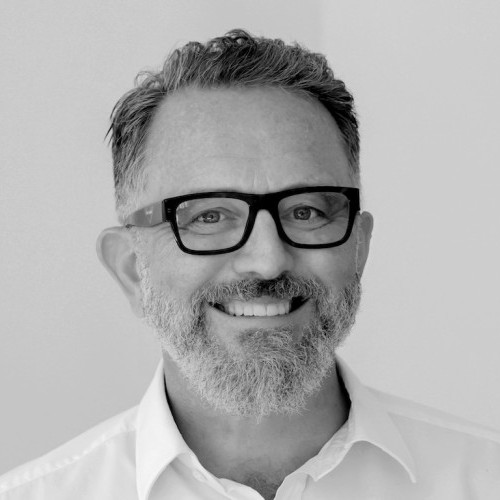
Mark Robinson
Head of regeneration, New River Group, UKMark has a 30-year career focused on town centre real estate, including roles as Chair of the Government High Street Task Force (2020-2024) and President of Revo (Formerly British Council of Shopping Centres, 2019). In 2024, Mark's business, Ellandi, was acquired by NewRiver REIT, where Mark is Head of Regeneration. NewRiver is the UK's largest investment manager of retail assets, with assets under management of £2.4m, including over 45 shopping centres. Mark is a strong advocate in the commercial real estate industry in advocating for the intersection of health and place and is experienced in delivering health-based interventions to promote regeneration. Mark is a fellow at Radix Big Tent, the Institute for Place Management, and on the advisory committee of Platform Places, which promotes partnership-powered place-making.14.00From shop to eye clinic: A vision for high street healthcare
Hun Pu
Project architect, Medical Architecture, UKHun is a Project Architect for Medical Architecture with over 5 years of healthcare design experience, including work across community health, mental health and acute health. Hun has led the design of the SEON Vision Eye Clinic in Kingston upon Thames, the concept design for two new integrated care hubs in Staffordshire, and the delivery of a sustainable new-build community diagnostic centre in Herefordshire. He has also played a leading role in the strategic redevelopment of Shotley Bridge Community Hospital in County Durham, a project prioritised in ‘Wave 1’ of the NHS New Hospital Programme.From shop to eye clinic: A vision for high street healthcare
Abstract Copy
Transforming a former high street retail premises into a high-quality ophthalmic clinic, this first dedicated space for SEON Vision offers private eye care in a distinctive and tailored environment. The clinic realises the benefits of high street healthcare, combining technical compliance with a welcoming interior to provide a positive patient experience.
High street healthcare
Rising pressures on the NHS, including increasing demand, workforce shortages, and hospital backlogs, have driven interest in new models of healthcare delivery, such as support from private providers. At the same time, the Covid-19 pandemic has highlighted the need for more accessible, flexible, and community-based services. The ‘high street healthcare’ approach responds by placing facilities within communities, improving access, and supporting town centre regeneration.
The concept behind SEON Vision was created by consultant ophthalmologists and experienced specialists Nizar Din and Mohsin Patel. The pair worked with Medical Architecture to design and deliver a private clinic in Kingston upon Thames, bringing care closer to home through a ‘high street healthcare’ model.
From store to clinic
The premises for the private clinic was a vacated ground-floor retail unit. Significant reconfiguration of the internal layout was required to create an optimised environment for the delivery of private ophthalmic care. A generous and light-filled entrance and waiting zone is designed to support comfort and wellbeing with a choice of more open and private spaces. Dark timber elements and soft organic tones create a calm and non-clinical environment.
Achieving the required high-performance technical requirements of a former retail space required detailed planning. Careful co-ordination mitigated the constraints of the existing structure.
A replicable model for UK towns and cities
In this case, the transformed unit was previously a kitchen showroom, and before that a Carphone Warehouse and Blockbuster Video store. There are any number of similar vacant or underutilised units in town and city centres across the UK. This project demonstrates the potential for widespread adoption of the ‘high street healthcare’ model, bringing care closer to home and providing a catalyst for regeneration.14.20Health on the high street – healthier citizens, happier staff, cleaner air, thriving communities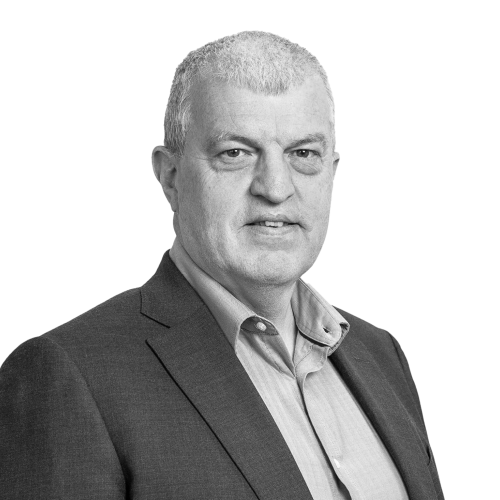
Mark Walker
Director, Healthcare, Stantec, United KingdomMark is a senior MEP director at Stantec. He has worked in construction for 40 years, more than half of which has been dedicated to leadership and design in healthcare engineering. With the industry’s urgent shift towards climate adaptation, he has increasingly concentrated on change management and implementation strategies in pursuit of decarbonisation targets. He has a keen interest in the digital estate for smart operation and maintenance as well as reducing energy and carbon emissions. Mark is a registered authorising engineer for medical gases with the Institute of Healthcare Engineering and Estates Management (IHEEM) and is the current chair of the Chartered Institution of Building Services Engineering (CIBSE) specialist healthcare group. In June 2025, he assumed the prestigious role of Vice President of CIBSE. He is a CIBSE board member and a trustee.Health on the high street – healthier citizens, happier staff, cleaner air, thriving communities
Abstract Copy
The UK Labour Government remains committed to making it easier for people to receive health services on the high street, e.g., through community diagnostic centres (CDCs).
It’s a laudable policy. Healthcare can anchor a shopping centre and drive investment into the area. Easier access to services means more people are likely to use them, leading to fewer cars on the road. It eases pressure on hospitals. It also opens the door to integrated health and social care services and the co-location of public and private wellbeing services, such as gyms and dentists. However, progress remains slow. What can we learn from the successes? Where is this likely to work? How can we address the challenges? What levers can we pull to take this idea out of theory and into widespread practice?
Wood Green CDC in north London is a shining example of what can be achieved. Run by Whittington Health NHS Trust and located in The Mall Wood Green, Haringey, it offers blood tests, x-rays, MRI and CT scans, ultrasounds, and an ophthalmology clinic for adults. Currently in phase three of development, it already receives 21,000 visitors a week. Interestingly, the basement floor has been successfully refurbished to meet NHS standards and accommodate large, heavy equipment.
The suitability of high street buildings for health services is one of the biggest challenges to overcome. The space can be too small, too poor quality, not offer enough daylight or ventilation, and not be suitable to house large and heavy machinery, such as scanners. It also needs to function as a workplace. So how are successful CDCs getting around these issues?
Then, there are the fundamental challenges around financing. NHS policy requires the trust to pay for the full lease term upfront – an impossible capital outlay for most. The fitout required to make these buildings suitable can be obstructively expensive. It also takes a long time to apply for NHS funding, during which time the unit might be leased to someone else. Bidding against commercial organisations means the odds are often stacked against the NHS.
As well as examining the opportunity, challenges, and case studies, we will discuss what levers we can pull to implement this more widely. These include central and local government policy, NHS policy, landlords, the private sector, and the built environment community. It’s time to step back from the issues facing the NHS and address the problems differently.Learning Objectives
- What’s needed to make community diagnostic centres work?
- How does ‘health on the high street’ support other healthy city initiatives and objectives?
- What are the barriers to delivering more health and wellbeing services in the community, and what levers can we pull to take this idea out of theory and into widespread practice?
14.40A cross-sectional study of the users of a city centre cardiovascular disease screening clinic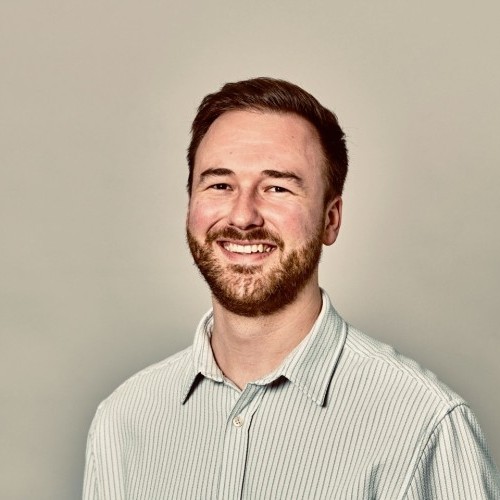
Matthew Cooper
Research associate, Newcastle NIHR Patient Safety Research Collaboration, UKDr Matt Cooper is a research associate in the Newcastle Patient Safety Research Collaboration (PSRC), deputy director of equality, diversity, and inclusion for the PSRC and School of Pharmacy, a trainee health psychologist, and an honorary research associate at the Newcastle Upon Tyne Hospitals NHS Foundation Trust. He is an expert in behaviour change methods, qualitative enquiry, and evidence synthesis. He has a developing record of research in health and social care, particularly focused on the integration, transitions from hospital to home, and community-based care. In his role as deputy director for EDI, Matt supports the development of policy, education, and research practice to ensure equitable provision, inclusive approaches, and diversity in academia.A cross-sectional study of the users of a city centre cardiovascular disease screening clinic
Abstract Copy
Thesis statement: Community-based health check clinics have emerged as crucial interventions to bridge healthcare access gaps, especially in deprived areas. This study explores the demographic reach, clinical outcomes, and behavioural impact of a city-centre cardiovascular disease screening clinic led by second-year undergraduate pharmacy students. The analysis aims to evaluate the clinic's effectiveness in engaging underserved communities and its role in promoting preventive health measures.
Methodology: A cross-sectional study design was employed to capture anonymised service activity data from the 'Young@Heart' city-centre clinic, operational for 88 days. Health checks included BMI, cholesterol levels, blood glucose, and blood pressure, alongside lifestyle consultations. Data were collected via Microsoft Forms and analysed using SPSS 29. Geographical mapping of postcodes was conducted using QGIS to assess reach across socio-economic strata, as determined by the English Indices of Multiple Deprivation (IMD).
Results: A total of 1152 health checks were conducted, with 50 per cent male and 49 per cent female participants, predominantly aged 40-74 (53 per cent). The clinic reached populations across all IMD deciles, with 31 per cent of North East attendees from the most deprived areas (IMD 1-2). Clinically, 62 per cent of participants were classified as overweight or obese, and 36 per cent presented with elevated cholesterol levels (>5 mmol/L). Mixed-design ANOVAs revealed significant increases in intention-to-change scores post-consultation (p < 0.001), particularly for BMI and cholesterol measures. Geographic analysis demonstrated that the clinic effectively reached deprived communities, indicating its potential to address health inequalities.
Conclusions and implications: The findings suggest that student-led, community-based clinics can effectively engage underserved populations, offering preventive health services where access is often limited. These clinics not only contribute to health equity but also provide valuable experiential learning for future healthcare professionals. Addressing minor gaps in geographic reach and refining referral pathways could further enhance the clinic's impact. Scaling such initiatives could contribute significantly to public health strategies aimed at reducing health disparities in deprived urban communities.Learning Objectives
- Understand the need for outreach public health services
- Investigate the use of a city-centre outreach public health service
- Explore how a city-centre outreach public health service can be optimised for improved outcomes
15.00Panel discussion15.30 - 16.00Video+Poster Gallery, coffee and networking16.00 - 17.15Session 11- Place-based health ecosystems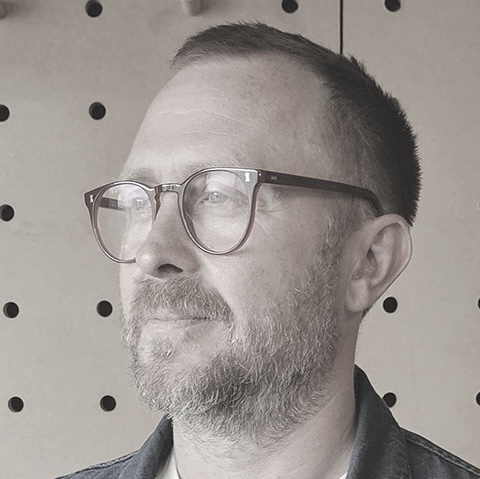
Jaime Bishop
Chair, Architects for Health, UKJaime is a Director at Fleet Architects and Chair of Architects for Health, and a proven project designer, competition winner and studio leader. During his professional career he has been responsible for multiple projects with values ranging between £8 and £120 million and was one of three associate directors responsible for the management of a 65-person firm under a managing director. He is an experienced all-round designer with specialist skills in healthcare and has sat on the executive board of Architects for Health (AfH) since 2006. He has significant experience as the lead architect in major PFI schemes including the preparation of a reference project for a $2 billion teaching hospital in Adelaide, Australia. He has been a visiting tutor at various universities since 2002, including Nottingham, Cardiff and London Metropolitan. Since 2012, Jaime Bishop and Richard Henson have been teaching third-year degree level students at London South Bank University and established their studio, The Transpontine Laboratory, based at the university, in 2014. Jaime was educated at the Royal College of Art, Bath University and the TU Delft Highrise Scholarship. He has been ARB registered and a member of RIBA since 2006. He is a recognised figure in the healthcare sector with connections throughout the industry. Jaime has detailed knowledge of traditional and private finance initiative (PFI) contracts, fee negotiation and project cost control. Jaime has sat on the board of the City and Hackney NHS Clinical Commissioning Group and, social enterprise East London Integrated Care. He has also served as an elected governor at the Homerton University Hospital NHS Foundation Trust.16.00Healthcare-led urban regeneration in Northern Ireland – the Kings Hall campus redevelopment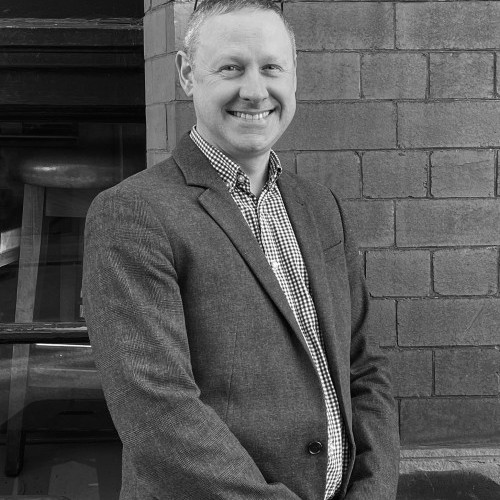
Matthew Hird
Head of healthcare, TODD Architects, UKMatthew is head of healthcare at TODD Architects. He is a highly experienced and well-respected architect who is dedicated to the creation of quality healthcare environments. Matthew is responsible for leading TODD’s healthcare strategy across all studios in the UK and Ireland to deliver a growing portfolio of transformational healthcare projects.Healthcare-led urban regeneration in Northern Ireland – the Kings Hall campus redevelopment
Abstract Copy
With placemaking at its heart, Kings Hall Health & Wellbeing Park in Belfast, Northern Ireland, sets a benchmark for community-integrated health and social care. TODD Architects have developed the masterplan to regenerate the Kings Hall site as part of a dynamic residential, lifestyle, leisure and wellbeing park. Alongside a range of healthcare services, life sciences and early-years learning, the Kings Hall site has elderly and retirement living. All of this is set amid a thriving, multigenerational environment of eateries, retail and leisure facilities and sited close to an established community.
The Kings Hall scheme adopts a fully connected, interrelated urban context. It posits a new form of urbanism driven by health and wellbeing, planned and designed around social inclusion to create a development where all ages can live side by side, benefiting from the social, cultural and economic opportunities of a multigenerational diverse community.
With the creation of more than 100 homes and over 750,000 sq ft of lettable space, the economic impact assessment suggests the Kings Hall Health and Wellbeing Park will boost the Northern Ireland economy by £47m a year, while also improving access to services for patients and gaining the sustainability and social value benefits of co-location. Commercial tenants on the campus to date include private hospital providers, spa medical, diaceutics, precision medical diagnostics, Choice and Maple + May Housing and nursery, with a planning application submitted for provision of cancer care services on site and a new MSCP.
Public and private spaces between buildings, alongside the central plaza featuring cafes and retail outlets, encourage connection and the promotion of active travel throughout the site. In co-locating social and economic activity, alongside access to quality public realm, the scheme also addresses the wider determinants of health and is a role model for reducing health inequalities that exist in many urban centres. It can play an important role in allowing urban areas to rediscover their social purpose and reconfigure as ‘community hubs’.
This development has supported the adaptive reuse of an iconic listed building in Belfast. Careful investment and design-led nudges have transformed it into a hub for business and considerate residential spaces, and re-energised this part of the city into a space that is an exemplary model of ‘left shift’ development. We have worked very closely with the client team to help them develop a campus vision, and in its implementation, to create a vibrant healthy city intervention.Learning Objectives
- Community focused Cancer Care
- Urban regeneration
- ‘Left Shift’ exemplar project
16.20HLM Place: Supporting health, social care and wellbeing through estate transformation in Sheffield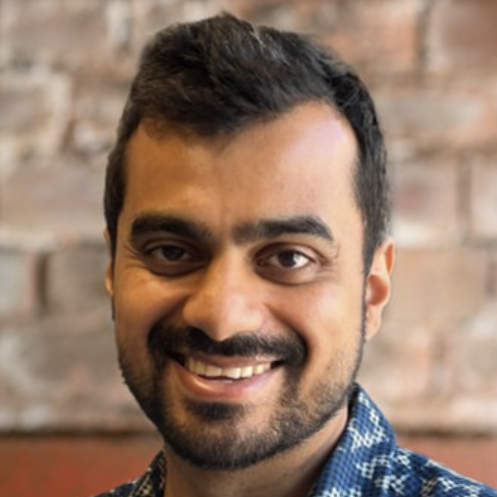
Karan Bakre
Senior masterplanner and urban designer, HLM, UKHLM Place: Supporting health, social care and wellbeing through estate transformation in Sheffield
Abstract Copy
In the evolving public-sector landscape, health and social care providers face unprecedented challenges: rising demand, stretched resources, and the need to deliver services closer to communities while improving wellbeing outcomes. Estate management plays a crucial role in addressing these pressures, yet fragmented data and siloed decision-making often hinder progress. Through our experience, we have noted that the absence of a clear and holistic view of all the assets that are owned and being considered for health and social care leads more often than not to the temptation of acting on the more short-term opportunities. The challenge with this is that regeneration within health and social care is not a short-term process and unless there is a consistent golden thread between all projects, they cannot hope to have the catalytic effect from which communities can draw benefits.
HLM Place is a groundbreaking digital solution designed to overcome these challenges by unifying multiple strands of data with HLM’s analytical and design skills as architects into a single, highly visual platform, empowering decision-makers across healthcare, social care, and local government to deliver evidence-led strategies with clarity and confidence.
The Sheffield Place Pilot exemplifies this approach. By bringing together layered data from 26 organisations – including NHS estates, Sheffield City Council, universities, and central government – the pilot mapped more than 4000 public assets. Along with land asset information (size, tenure and use class), the pilot incorporated two additional datasets:
• Place datasets, informed by local planning policy – conservation + heritage; green belt; flood maps; parks; highway networks; bus and active travel routes; etc.
• People datasets – indices of multiple deprivation; community needs data; demographics; skillset deficits; etc.
Transcending mere representation of existing data, HLM processed this layered information to provided Sheffield’s stakeholders with a thorough analytical and design-based service to identify opportunities to improve access to healthcare facilities, enhance integration of health and social care provision, and regenerate communities in ways that directly support wellbeing.
Through its intuitive dashboard, HLM Place allowed stakeholders to overlay asset data with critical factors such as population health trends, accessibility to primary and acute care, sustainability metrics, and social deprivation indices. The pilot identified 292 priority opportunities, ranging from co-location of healthcare and social services to community wellbeing hubs, housing projects, and green infrastructure that promote healthier lifestyles, all aligned with Sheffield’s long-term masterplans.
This session will reveal how HLM Place enables more joined-up planning between health and social care providers, simplifies complex decisions, and delivers practical strategies that directly improve service delivery and community wellbeing. Attendees will leave with insights into how HLM Place supports smarter investments, integrated care, and replicable, sustainable frameworks for addressing health and social challenges through estate transformation.16.40Panel discussionEnd of Population health and integrated care stream -
Workplace, transport and mobility
Studio 2 & 3
10.45 - 12.30Session 12- Sustainable and Inclusive mobilty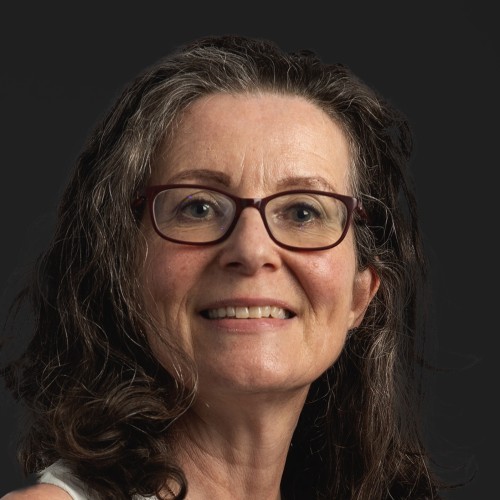
Clare Wildfire
Global cities lead, Mott MacDonald, UKClare is global practice leader for cities at Mott MacDonald. She is passionate about using cross-disciplinary synergy and integrated systems thinking to enable more people to be accommodated in urban areas for less cost, consuming less energy, materials and water, emitting less CO2, and cutting waste, while achieving an enhanced quality of life. She brings a practical understanding of sustainable development drivers and processes at both macro and micro level, gained through nearly 30 years as a low-energy engineer in the built environment. Combining this with engagement at policy level, she is able to bring insight into the technical, political, financial and behavioural aspects of sustainable development, particularly in areas of energy efficiency and thermal masterplanning in the built environment. Her role is often to lead stakeholders through a process of objective setting and risk assessment, where her ability to apply clarity and sensitivity in the fast-moving cities area allows decisions to be taken in an informed manner despite a lack of precedent or future certainty. In particular, working for both private-sector developers and city municipalities has given her a valuable understanding of how to align objectives and optimise outcomes.10.45From planning to activation: A whole-system approach to delivering inclusive mobility hubs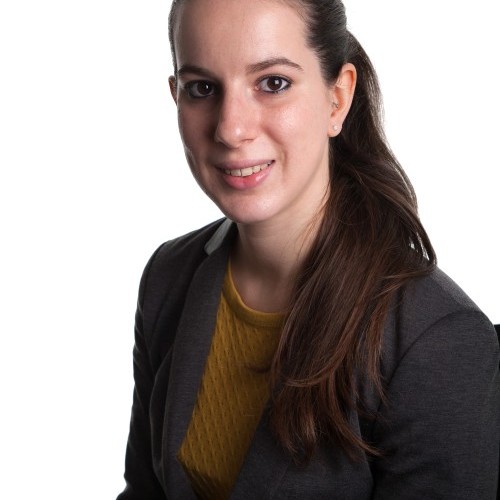
Lidia Derossi
Principal engineer, AECOM, UKLidia is a Chartered Civil Engineer with a passion for designing places that put people first. With over a decade of experience in sustainable transport and urban design, she has led the development of Mobility Hubs across the UK and Ireland helping communities rethink how they move, connect, and thrive. At AECOM, Lidia brings together engineers, urban designers, ecologists, and local voices to deliver projects grounded in Healthy Streets principles and a commitment to Active Travel and Sustainability. Whether transforming neighbourhoods into walkable, liveable spaces or guiding councils through complex regeneration schemes, her work is rooted in collaboration, creativity, and a firm belief in the power of thoughtful design to shape healthier, more resilient futures.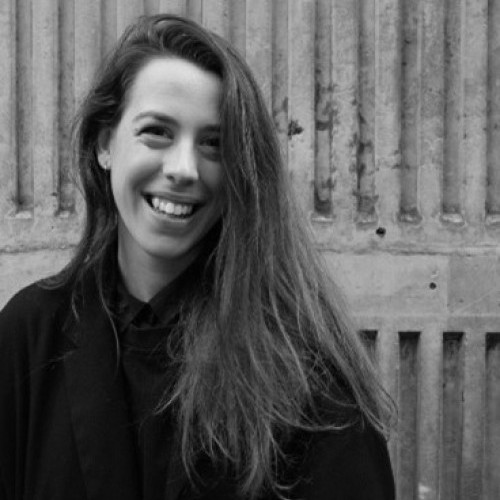
Lucy Sykes
Senior active travel consultant, AECOM, UKLucy is a senior active travel consultant working for AECOM's Streets Team in Manchester. She has a background in masterplanning and has a breadth of technical experience working nationally on projects with an active travel and placemaking focus, including active travel masterplans; mobility hub designs; street design coding / guidance; Mini-Holland feasibility studies; network audits; and concept designs. She is identified as one of AECOM's inclusive streets subject-matter leads, whereby she co-leads an internal action group advocating for the recognition of people, movement and place within street design.From planning to activation: A whole-system approach to delivering inclusive mobility hubs
Abstract Copy
Mobility hubs are an increasingly recognised concept in the UK to integrate infrastructure, transport services, and other community and placemaking facilities. They offer a convenient interchange between active and sustainable modes and are growing components of healthy city design, providing modal choice in our increasingly dense and intensified urban environments. Mobility hubs represent a shift to a different kind of transport system, one which recognises the role of linked trips and shared mobility over ownership and car-dominated travel. In doing so, these hubs present an opportunity to embed more innovative, equitable and sustainable travel behaviours into our built environment.
Sharing our experience from working at scale across the UK and Ireland, AECOM will present our whole-systems approach to planning, designing and delivering mobility hubs and how we can ensure these sites support healthy city design through inclusivity, accessibility and active travel.
We will present the typical project stages of a mobility hubs project and share key lessons learned at each stage, weaving in our case study experience, and sharing how we believe projects can be delivered with sustainable and inclusive design in mind.
Strategic planning: Embedding mobility hubs at a strategic level through planning and masterplanning;
Preparing: Understanding the socio-economic context, demand, need and catchment;
Designing: Ensuring inclusive and accessible design for all users and identifying nuances between rural and urban sites;
Engaging: Engaging and using the components toolkit;
Delivering and monitoring – capturing data and learnings to support future projects; and
Activating – including behaviour change and AECOM's Human Excellence capabilities.
Outcomes: We will draw on our vast experience of these projects and lessons learnt from all stages of the project lifecycle to provide a compelling case for the adoption of mobility hubs to support healthy city design, backed by early insights from our monitoring and evaluation programme.
Implications: The learnings can be applied to the delivery of mobility hub schemes in a range of contexts, seeking to inspire whole-systems, multidisciplinary thinking that supports integrated transport patterns of the future.Learning Objectives
- Whole-Systems planning enables integrated and sustainable mobility
- Inclusive and context-sensitive design is essential
- Multidisciplinary thinking and ongoing monitoring are required to support future travel patterns
11.05PikTOC: Prioritising transit-led regeneration for healthier, more equitable urban futures in Greater ManchesterDanny Crump
Director of urbanism, Layer.studio, UKDanny Crump is a chartered landscape architect, urban designer, and masterplanner with more than 25 years’ experience in placemaking, urban regeneration, and transit-led development. As head of landscape + urbanism at Layer.studio, Danny leads pioneering approaches to creating healthier, more equitable cities – most recently co-authoring PikTOC, a geospatial tool designed to prioritise regeneration around Greater Manchester’s transit hubs through the lens of spatial justice, health equity, and climate resilience. He is also the co-creator of Circ_it, a gamified urban regeneration tool that reverse-engineers success by helping communities, councils and designers create place-based strategies grounded in lived experience and future ambition. A High Street Task Force expert and qualified project manager, Danny brings an interdisciplinary mindset to complex urban challenges, choreographing collaborative teams, co-creating with communities, and embedding innovation into public-sector strategies. He mentors emerging talent through Future GM Leaders Plus and Women in Architecture, and provides professional practitioner guidance on landscape urbanism at the Manchester School of Architecture. Danny’s passion lies in unlocking local distinctiveness through data-informed diagnostics, global trend forecasting, and co-design. He champions ‘complete communities’ and inclusive growth, shaping places that support public life, wellbeing, and sustainable mobility. A proud Northerner and critical thinker, Danny is a vocal advocate for preventive planning, systems thinking, and people-first urbanism – building futures where city design and public health evolve together.
Shira de Bourbon Parme
Urban wellbeing and innovation lead, Ramboll, UKShira de Bourbon Parme, DPhil, MSc, is an urban development planner and social anthropologist dedicated to advancing place-based spatial and social sustainability. In her role within Ramboll's Regenerative Cities Team, she partners with public and private sector stakeholders to develop and deliver integrated urban strategies that foster liveable and resilient environments, nurturing human and planetary health. Her work is grounded in vulnerability-sensitive approaches to drive health, social and spatial equity. Shira holds a doctorate from the Future of Cities programme at the University of Oxford. She serves on the Advisory Board for the University of Birmingham’s Centre for Urban Wellbeing. She has delivered annual lectures for University College London’s MSc Health in Urban Development and the University of Cambridge’s Future of Roads Programme. Notably, Shira led the development of Neighbourhood Futures, a framework for climate resilience and health equity, in collaboration with Impact on Urban Health, and conducts ongoing research on urban planning and social infrastructure for ageing populations.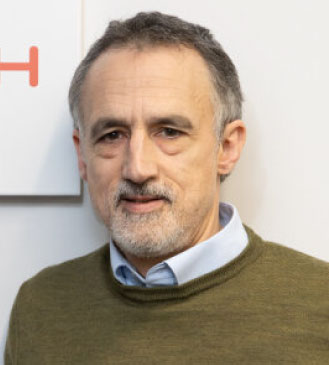
Ricardo Gomez
Director, Urban Solutions, Hatch, UKPikTOC: Prioritising transit-led regeneration for healthier, more equitable urban futures in Greater Manchester
Abstract Copy
Background: Greater Manchester is facing a critical intersection of health inequality, housing need, and environmental degradation. To support compact, resilient neighbourhoods centred around public transport, Layer.studio, Ramboll, and Hatch developed PikTOC – a semi-automated decision-support tool to guide transit-oriented regeneration by embedding spatial justice, climate resilience, and health equity into planning at scale.
Purpose: This paper presents the outcomes of a proof-of-concept pilot for PikTOC, commissioned by GMCA. The objective was to identify where best to prioritise investment, densification, and community-building around transit nodes to support healthier, more inclusive growth, aligned with the UN Sustainable Development Goals and Places for Everyone (PfE) spatial strategy.
Methods: Using GIS-enabled multi-criteria analysis, PikTOC synthesised more than 30 datasets across social value, land availability, transport access, market readiness, environmental constraints, and health indicators. The tool scored and ranked all public transport stations across the region, applying a phased ‘sift’ methodology to evaluate development potential within 800m catchments.
Results: The tool shortlisted five hub areas – Mauldeth Road/Burnage, Fairfield, Reddish South, Prestwich Cluster, and Withington/Barlow Moor Road – highlighting clear opportunities to deliver sustainable, higher-density living environments. These ranged from infill housing on council-owned land and brownfield renewal to rethinking car-dependent landscapes and enhancing active travel infrastructure. Each site’s health and equity potential was evaluated using a ‘Complete Communities’ lens, including access to amenities, green space, and walkability.
Conclusions and implications: PikTOC has proven an effective platform to support integrated, preventative planning – placing population health at the centre of housing and infrastructure decisions. The project shows how data-led tools can empower local authorities, landowners, and residents to co-develop investment-ready, health-promoting places. Future stages include applying the tool across GM’s Integrated Settlements strategy and aligning with NHS priorities for preventive care and active lifestyles. As cities transition from reactive planning to systems-thinking, PikTOC offers a scalable model to bridge policy, investment and practice.
Learning Objectives
- Demonstrate how geospatial diagnostics can advance integrated, health-first urban regeneration
- Share a replicable methodology for prioritising investment around public transport hubs
- Explore how tools like PikTOC support localised responses to national health and housing crises
11.25Transport-oriented healthcare development (TOHD) – an alternative model to healthcare provision in urban areas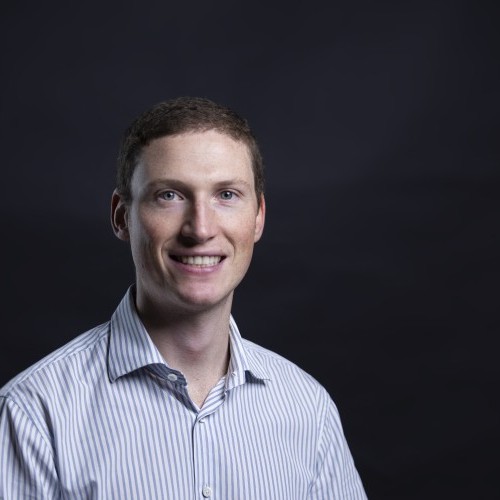
William Butcher
Sustainability consultant, BDP, UKWith a background in human geography and urban planning, William brings both technical expertise and a systems-thinking approach to sustainable urban design. Since 2019, he has worked as a sustainability consultant in the built environment, specialising in whole-life carbon assessments and net-zero strategies. His work is grounded in a deep interest in the circular economy, nature-based solutions, and the 15-minute city concept – principles he applies to help shape urban environments that are fairer, healthier, and more climate resilient.Transport-oriented healthcare development (TOHD) – an alternative model to healthcare provision in urban areas
Abstract Copy
Healthcare is a major economic sector and employer worldwide. Decarbonising healthcare systems while enhancing their resilience can be achieved through strategies such as promoting active travel, using public transport, eating local and seasonal food, deploying low-carbon energy systems, building with natural ventilation, and adopting telemedicine. These measures not only improve health outcomes but also contribute to climate goals and nationally determined contributions to the Paris Agreement.
This paper examines how transport-oriented healthcare developments (TOHDs) can be used as an alternative model to healthcare provision, showing the carbon reduction potential of locating secondary care and community services in accessible urban areas rather than out-of-town locations.
The whole-life carbon and travel-related emissions are compared for the following three hospital typologies: small hospitals; large specialist hospitals; and complex high-rise hospitals (i.e. TOHD). The methodology for these calculations is based on the NHS Net Zero Building Standard and RICS Whole-life carbon assessment for the built environment methodology, using data from relevant BDP projects and UK Government statistics.
The findings indicate that transport emissions can surpass building emissions within one to ten years, depending on the typology. The results also show that transport emissions for out-of-town hospitals are nearly four times the building’s emissions, and double on a per-person basis compared with TOHDs, highlighting the need for robust public transport infrastructure and strategic site selection. Several case studies exemplifying the benefits of TOHD are also presented.
The study concludes that TOHDs offer a holistic approach to healthcare provision, addressing multiple issues and contributing to urban revitalisation and long-term carbon benefits.Learning Objectives
- Understand the role of TOHDs play in decarbonisation
- Identify the various environmental and socio-economic benefits of TOHDs as an alternative alternative model to healthcare provision in urban areas.
- Compare whole life carbon and transport-related emissions across various hospital typologies
11.45London’s ultra low-emission zone and active travel to school: A qualitative study exploring the experiences of children, families and teachers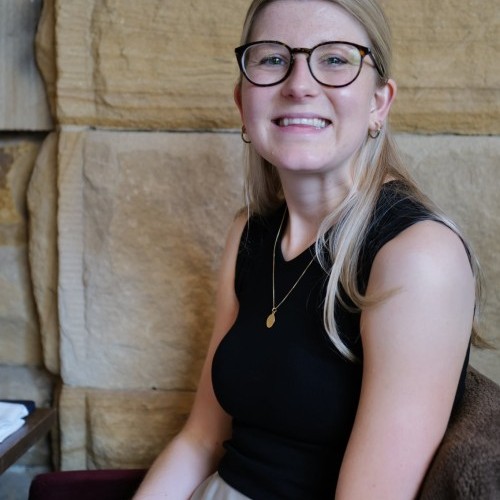
Olivia Alliott
Research associate, University of Cambridge, UKOlivia is a public health researcher at the University of Cambridge, specialising in environmental interventions to promote health and mitigate the impacts of climate change. Her research focuses on evaluating large-scale policy interventions, such as London's Ultra Low Emission Zone, aimed at reducing car use and enhancing urban air quality. She is particularly interested in applying systems approaches to evaluate population health interventions, with a focus on understanding the intersection between health co-benefits and urban climate policies. This includes exploring how to integrate health considerations into urban climate planning and policymaking. With a strong commitment to health equity and social justice, her research is informed by insights from her PhD, for which she examined how socioeconomic factors influence young people's physical activity and long-term health outcomes.London’s ultra low-emission zone and active travel to school: A qualitative study exploring the experiences of children, families and teachers
Abstract Copy
Background: Motor vehicles are a major source of urban air pollution, prompting the introduction of clean air zones (CAZs) across the UK, such as London’s ultra low-emission zone (ULEZ). While CAZs aim to reduce pollution, they also have the potential to promote active travel, such as walking and cycling – offering significant health benefits, particularly for children who are more vulnerable to air pollution.
Purpose: This study aimed to explore how the ULEZ might influence travel behaviours and improve health outcomes in the context of the school journey, using a qualitative approach.
Methods: This primary qualitative study was embedded within an existing natural experiment evaluating a population-level health intervention across London. Purposive sampling was used to recruit children (aged 10–11 years) from ethnically and socioeconomically diverse backgrounds within an existing cohort study: Children’s health in London and Luton. In-depth interviews were conducted with 21 families and seven teachers between November 2022 and March 2023, both in-person and online. Transcripts were analysed using Braun and Clarke’s reflexive thematic analysis, guided by realist evaluation principles to identify context–mechanism–outcome (CMO) configurations. NVivo software supported data management and coding.
Results: Common CMO patterns were identified across children, parents and teachers. For example, current active travellers (context) reported noticing reduced pollution (mechanism), which led to improved health, including relief from asthma symptoms (outcome). These CMOs were broadly captured by two themes: i) how you travelled before the ULEZ matters: the impact of travel mode on experiences of the ULEZ; and ii) your context matters: the role of socioeconomic position in experiences of the ULEZ. Participants highlighted the potential for the ULEZ to positively impact their choice of travel mode to school, experiences of the journey, and their health. However, the impact of the ULEZ differed inequitably by journey length, travel mode before implementation, and access to reliable and affordable public transport.
Conclusion: The capacity for the ULEZ to both narrow and exacerbate inequities across different travel contexts suggests that when developing such schemes, more emphasis needs to be placed on providing accessible and affordable alternatives to driving.
Learning Objectives
- 1. Explore how the ULEZ might change travel behaviour and improve health in the context of the school journey and wider policy systemon school travel behaviours, particularly regarding active travel choices among children and families
- 2. Understand families’ and teachers’ perceptions and experiences of the ULEZ, including common mechanisms shaping its impact across diverse travel contexts
- 3. Discuss the implications for urban health policy, particularly how environmental interventions like the ULEZ can promote school-based active travel
12.05Panel discussion12.30 - 14.00Video+Poster Gallery, workshop, lunch and networking14.00 - 15.30Session 13- Workplace design
Prof Jeremy Myerson
Co-founder, Healthy City Design; Chairman, WORKTECH Academy; professor emeritus, Royal College of Art, UKJeremy Myerson has been academic, author and activist in design for more than 40 years. He co-founded the Helen Hamlyn Centre for Design in 1999, and was its director until 2015. Last year, he received emeritus professor status at the RCA, and he continues to direct his own venture, the WORKTECH Academy, which provides a forum for academics and practitioners to share new ideas on the future of work and workplace. He is the author of more than 20 books on a wide range of subjects in art, design and architecture, and he has curated many national design exhibitions. He has been at the helm of the Healthy City Design Programme Committee since the Congress’ inception in 2017.14.00From ground to sky – One Undershaft in Destination City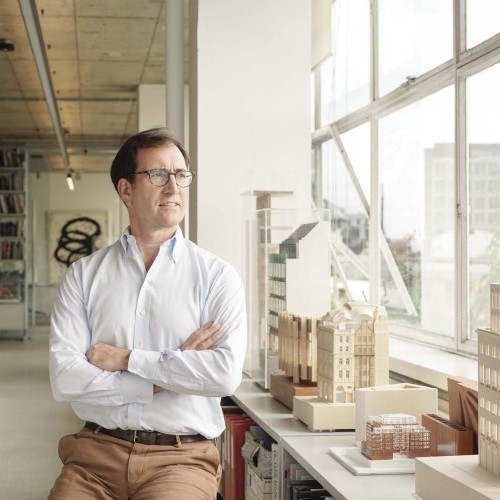
Robert Kennett
Director, Eric Parry Architects, UKRobert studied architecture at the University of Cambridge and the Harvard Graduate School of Design. He joined Eric Parry Architects in 1989 and was made director in 1997. Currently Robert is working on several consented City of London office developments and the innovative reuse of a 1950s office building in Belgrave Road, Pimlico. Since 2011 he has directed the design for major residential buildings, including the Phase 3 Heart of Doha project in Qatar and five apartment buildings in Phases 4 & 6a at Chelsea Barracks. He has led on projects such as prestigious office buildings at 8 St James’s Square and 23 Savile Row; refurbishment works for Selfridges & Co; and the innovative 4 Pancras Square building at Kings Cross Central. In the City, he was involved in the planning stages of London Stock Exchange at Paternoster Square and 120 Fenchurch Street, as well as the current joint venture for the complex Crossrail oversite development at 1 Liverpool Street. Robert was involved on many of the practice’s earliest award-winning schemes, including Foundress Court, a residential and teaching building for Pembroke College at Cambridge University, and the office building at 30 Finsbury Square, which won numerous awards on its completion in 2003. He was also responsible for the successful delivery of the £36m Renewal of St Martin-in-the-Fields in Trafalgar Square. The project consisted of the refurbishment and conservation of James Gibbs’ Grade I listed church and crypt, including reconstruction of the below-ground spaces, the extension of a Grade II listed John Nash terrace, and the reordering of the publicly accessible spaces. Robert led the redesign of the 1 Undershaft project from EPA’s consented 2016 design. Working closely with the client, development managers and engineering team, the updated scheme focuses on sustainable construction, increased urban greening and an emphasis on occupier wellbeing and amenities, all with an increase in massing needed for commercial viability. The City of London Planning Committee approved the revised application in December 2024. The project is currently on site. Robert has taught in architectural design studios at the University of North London and the University of Cambridge.From ground to sky – One Undershaft in Destination City
Abstract Copy
The Eastern City Cluster in the City of London is expanding upwards with businesses and workers returning to the vibrant and well-connected financial centre. The current generation of new-build and retrofitted buildings focus on occupier wellbeing and expectations of a younger workforce, and a wider variety of enterprises. The City actively promote the engagement of workers, residents and visitors through Destination City and by enabling activities beyond standard working hours. The pavements are becoming crowded and access to more shared public space is needed.
The One Undershaft project demonstrates how the design of tall buildings can deliver through the planning process more than a closed office tower. Through consultations with stakeholders, faith groups and the local community, the design was modified and refined to ensure public access was maximised.
The consented 2015 scheme set the height and precedent for the successful approval after extensive expert townscape and heritage assessments. As the apex of the cluster, the top two floors will welcome the capital’s school children to ‘classrooms in the sky’ in collaboration with London Museum. The highest public viewing gallery in Western Europe will be free for all to visit. This civic crown is made evident with expressed vivid red windows – the collective colour of London’s streetscape of telephone and pillar boxes.
The amenity zones at levels 30 and 48 separate the blocks of office floors and allow shared roof gardens with views, along with the protected planted terraces direct from tenant floors. An elegant structural solution minimises impact at ground. The facade design is calibrated for passive solar control and maximised daylight, with all materials selected for their longevity.
At ground the public realm design connects and enhances pedestrian routes through shaded planting and a sunlit tree grove. Animated street life will be curated with food markets, along with a large digital screen showing cultural and sporting events. Raised more than 42m above a new public garden gives visitors new perspectives on the historic and modern City architecture. The extensive greening of the City reconnects the users and visitors with nature. The planting will be resilient and tested as Alexander von Humbolt observations of biodiversity at varying exposures and altitudes.
Together with the City of London, and through a rigorous planning process and building control, the client will deliver an open and generous tower, which will build on the growth and revitalisation of the City’s cluster.
Learning Objectives
- The enabling role of local authorities can drive tall buildings providing healthier workplaces that support business communities, along with public access to culture and heritage.
- Designing dense and vibrant cities and their buildings is a collaborative process with many voices, from governance, design and engineering, to environmental modelling and horticulture
- In increasingly dense city centres the shared ground is under pressure, new accessible horizons can provide elevated public realm for all to enjoy.
14.20Sustainable and modern working at Eden
Phil Marsden
Managing director – North West, Muse Developments, UKSustainable and modern working at Eden
Abstract Copy
Eden is a £36m, 115,000 sq ft 12-storey workspace situated in New Bailey, Salford. Delivered by ECF – comprising Muse, Homes England and L&G – it forms a key part of ECF’s £1bn regeneration of Salford Central into a vibrant, mixed-use community, including a commercial district, amenities and over 1000 new homes.
This place-changing building was devised to push the envelope in terms of sustainable regeneration and highlight what can be achieved when like-minded partners work together.
Designed to be net-zero carbon in operation, Eden embraces the WELL Building Standard principles and comprises a range of features designed to enhance occupancy health, wellbeing and productivity.
For decades, the common perception of a ‘workplace’ was shaped by images of concrete, grey carpets, and artificial lighting; Muse and its partners sought to change that. The team behind Eden not only envisioned delivering one of the UK’s most sustainable buildings but also a place where biodiversity could thrive, enabling people to flourish within it.
This includes a ground-floor cycle store, showers, and drying room to encourage active travel, a yoga/wellness space, a roof terrace, and areas for co-working and collaboration.
Eden’s design also includes a living facade – home to 350,000 plants – which removes air pollutants, reduces urban temperatures, and improves biodiversity, while providing biophilic health and wellbeing benefits for occupants.
Among a whole host of accreditations achieved – including BREEAM outstanding – Eden secured a 5.5-star NABERS ‘Design Reviewed’ Target Rating, making it the first workspace in the UK to achieve this certification.
So far, circa 50 per cent of Eden is occupied by accountancy firm BDO and law firm TLT, with both companies choosing the building owing to its commitments to sustainability and supporting workforce wellbeing.
Eden has quickly become an iconic Salford landmark and now stands as a ‘greenprint’ for the industry to follow, as well as demonstrating Salford’s commitment to innovation and creativity.14.40The role of interior fit-outs in the push for net-zero carbon
Blake Jackson AIA, LEED Fellow, WELL Faculty, CPHC
Director, sustainability, NORR, USABlake Jackson is an architect working at the nexus of sustainability, wellness, resiliency, and equity, who serves as the global Director, Sustainability for NORR. NORR is an 800-person integrated architecture, interiors, planning and engineering company, headquartered in Toronto, with 14 locations in the US, UK, UAE, and Canada. Blake has 23 years’ experience in the AEC industry, holding a Bachelor of Architecture from Kennesaw State University in Marietta, Georgia and a Master of Architecture in Sustainable Environmental Design from the Architectural Association Graduate School in London. Blake is a prolific author, speaker, and educator on topics affecting the built environment. He currently serves on the Advisory Board for the University of Massachusetts Dartmouth’s Interior Design Program, is on the AIA National 2030 Working Group, and he is a former Vice President, Advocacy for the Boston Society of Architects. Blake was recognized in 2015 by BD+C Magazine as a top “40 Under 40” AEC professional, he was named a LEED Fellow by the USGBC in 2021, and he is a 2024 recipient of the AIA Young Architect Award.The role of interior fit-outs in the push for net-zero carbon
Abstract Copy
Much emphasis is placed on the planning of new construction and the adaptive reuse of existing buildings to support decarbonisation efforts across client portfolios, estates and cities; however, less importance and specificity is given to how individual spaces within these buildings can and should support decarbonisation efforts over time. This presentation will explore the role that the fit-out of interiors spaces plays within the push for decarbonisation of the built environment, identifying gaps and opportunities that can be capitalised on by all key stakeholders – designers, landlords, brokers, facilities managers, contractors, and even product manufacturers – over the lifecycle of such spaces to support carbon reduction efforts and net-zero carbon initiatives.
The presentation will begin by highlighting requirements, or a lack thereof, for fit-out projects, using examples from around the globe and including an overview of rating systems requirements, their evolution towards decarbonisation, and a measure of their global uptake. Then, the research will dive into the project delivery process, addressing areas, and key roles and responsibilities, where carbon can be accounted for and extracted from the process in an integrative, not additive, manner over the entire lifecycle of a project. Finally, the presentation will explore an 8000 sq ft (745m2) case study fit-out project in Toronto, Ontario (Canada), which is a corporate headquarters for an international architecture and engineering company attempting to realise a net-zero carbon fit-out through integration of the above key stakeholders, as well as through the use of tools, practices, products and methodologies for net-zero carbon emissions on the project, which will be in design and under construction throughout 2025 and into early 2026.
The presentation will highlight specific aspects of the project as an example that can be universally adapted for fit-out projects, globally, to immolate. The practices include the use of energy modelling to reduce operational greenhouse gas (GHG) emissions of utilities, life-cycle assessment (LCA) modelling to reduce embodied GHG emissions within the products specified, daylight and views modelling to promote the use of evidence-based approaches, best management practices to reduce landfill waste and promote partnerships for circularity, and building selection with ongoing landlord/tenant engagement around long-term decarbonisation and GHG emissions management of the overall site by 2050.Learning Objectives
- Participants will learn about the operational and embodied carbon impacts of fit-out projects.
- Participants will learn how third-party standards are evolving to address carbon reduction within interior fit-out projects
- Participants will learn how to leverage design, construction and operational processes to support circularity and long-term carbon mitigation on fit-out projects.
15.00Panel discussion15.30 - 16.00Video+Poster Gallery, coffee and networking16.00 - 17.15Session 14- Active travel and accessible neighbourhoods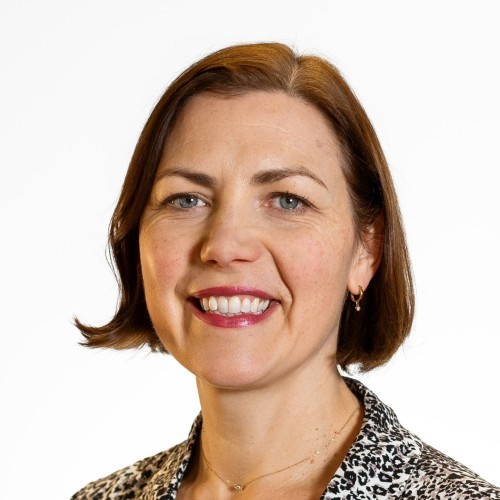
Nicola Kane
Director, Steer, UKNicola is responsible for Steer’s client relationships in the North of England. She has expertise in strategic planning, including the development of transport strategies and plans, major scheme business cases, and the integration of land use and transport planning. She is used to working in complex stakeholder and political environments and was a member of DfT’s Capital Review Panel, advising the Transport Secretary of State on capital investment priorities. She has recently been appointed as chair of the Transport Planning Society. Her clients include: TfGM, WYCA, SYMCA, LCRCA, and Sheffield and Manchester City Councils. Nicola joined Steer in 2022 from Transport for Greater Manchester, where she was head of strategic planning, insight and innovation. She led the development of Greater Manchester's fourth local transport plan: Greater Manchester Transport Strategy for 2040 and a supporting Five-year Transport Delivery Plan, which formed the basis of the city region's first £1bn+ City Region Sustainable Transport Settlement. She also led the development of new policy agendas, including the Streets for All Strategy, a new City Centre Transport Strategy, and Greater Manchester's approach to new and shared mobility. She is a member of the Institute of Transport Studies (University of Leeds) Advisory Board, TRUUD (Tackling Root Causes Upstream of Unhealthy Urban Development) Steering Group, the CIHT Professional Skills Committee, CIHT Future Transport Visions Steering Group, and previously held roles on the Manchester Climate Change Partnership Board. She is also a chartered town planner (MRTPI) and transport planning professional (CTPP) and was awarded TPS Transport Planner of the Year in 2017.16.00Designing inclusive and accessible neighbourhoods: Healthier streets project in Leeds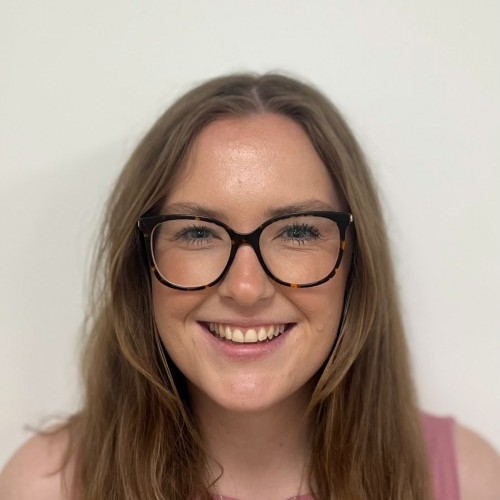
Maddie Harkness
Senior engineer, AECOM, UKMaddie is a Senior Engineer in AECOM’s Streets Team based in Leeds. She is passionate about promoting sustainable transport choices and has contributed to a wide range of active travel projects across the UK during her career to date. Maddie takes pride in delivering innovative solutions that enhance walking, wheeling, and cycling infrastructure, tailored to meet client needs and encourage modal shift. Maddie is especially committed to improving her local area, working closely with Leeds City Council to deliver inclusive and accessible infrastructure improvements in and around Leeds City Centre.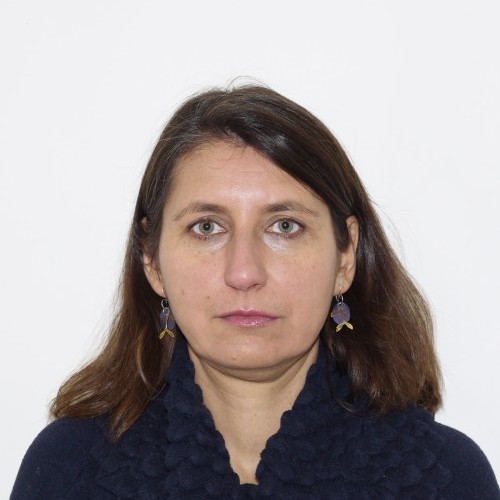
Kasia Speakman
Senior transport planner, Leeds City Council, UKKasia is a senior transport planner with over 20 years of experience of planning, designing for, and promoting sustainable and active travel while making street environments more inclusive. Kasia is proud to work for Leeds City Council, with its ambition to be a city where you don’t need to own a car, and at the same time work alongside disability groups to bring the lived experiences of disabled stakeholders to inform and influence the transformative public space and transport projects that are happening in the city.Designing inclusive and accessible neighbourhoods: Healthier streets project in Leeds
Abstract Copy
Purpose and priorities: The Healthier Streets Project applies active travel and urban design principles to infrastructure improvements in the Cross Gates and Armley suburbs of Leeds, encouraging healthier travel to education, work, and leisure.
Leeds City Council, in partnership with AECOM, has developed the scheme to OBC (Outline Business Case) stage. Highlights include:
• 17 new/enhanced pedestrian/cycle crossings on key desire lines, including to schools and public transport;
• three “pocket parks” and improvements to two leisure routes, providing urban realm benefits; and
• a consistent approach to side-road entry treatment using a “design decision tree” to justify the level of intervention (dropped kerbs, raised crossings, continuous crossings) dependent on pedestrian/vehicle flows.
Extensive community engagement (online and in person) informed the scheme, with targeted outreach supporting inclusive participation.
Outcomes: The public consultation highlighted strong support and key insights into local active travel barriers/preferences, with balanced demographic feedback (48 per cent male, 49 per cent female, 3 per cent non-binary) helping address typical gender disparities common in transport engagement. Ongoing Active Travel England and Healthy Streets assessments confirmed alignment with quality and inclusivity standards.
Insights and implications: By embedding people-focused design and inclusive engagement from the outset, the project demonstrates how targeted suburban infrastructure improvements can support regional health, climate, and mobility goals.
Learning Objectives
- Explore how active travel and design improvements can enhance suburban mobility and health.
- Understand the value of inclusive community engagement in transport planning.
- Assess how design tools and frameworks support high quality, accessible infrastructure.
16.20Building cycling cultures with communities, supporting health, equity and social cohesion from the ground up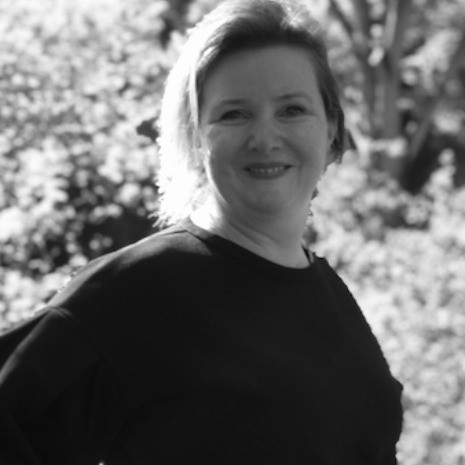
Maud Vries
CEO, BYCS, The NetherlandsMaud is co-founder and CEO of BYCS, an Amsterdam based not-for-profit organisation, guided by the belief that bicycles transform cities, and cities transform the world. In this role, she leads company strategy, partnerships, global business development and network expansion. As a highly entrepreneurial individual, her programmes have led to multi-sectoral global partnerships, garnered vast international media attention, and the organisation's Bicycle Mayor Network has grown to more than 150 cities in more than 35 countries. A creative strategist by training, she holds over two decades of experience working with large companies and municipal governments on social impact projects, in the fields of community building, public relations, media and communications.Building cycling cultures with communities, supporting health, equity and social cohesion from the ground up
Abstract Copy
At BYCS, we believe that “bicycles transform cities and cities transform the world”. To us, cycling is a foundation for social transformation. Working with more than 150 BYCS Bicycle Mayors and 200 (local) partners, we help cities develop community-rooted cycling cultures that advance public health, social equity, and neighbourhood cohesion.
This session explores how hyper-local leadership, and community can drive systemic change. Rather than relying solely on physical infrastructure, we prioritise building the social conditions that make cycling culturally relevant and accessible. Drawing from projects in cities including Amsterdam, Bogotá, Nairobi, and Bengaluru, we will highlight interventions co-developed with (pre)schools, families and youth in underserved communities – from peer-to-peer behaviour change initiatives and safe route creation to circular access-to-bicycle schemes and community revolving funds.
Our approach is grounded in Damon Centola’s theory of complex contagions, and transferred to active mobility: meaningful behavioural shifts, like cycling adoption, spread more effectively through strong, overlapping networks rather than through top-down policies. We strengthen this network (what we call the “human infrastructure of cycling”) to accelerate and sustain change. This means investing in people first: recognising and elevating community leaders, addressing local needs, and embedding trust and participation in all processes.
The session will also unpack how we build an "international ecosystem" of change makers, not as a single entity but as a decentralised network of locally embedded initiatives that learn from and support one another. In doing so, we connect cycling culture to broader goals around climate, mobility justice, and physical and mental health.
Through stories and experience, this session will show how community leadership can drive the cultural shift required for cycling to become an everyday and joyful part of city life. Starting young, starting local, and starting with those who know their streets best. Learning from lived experience, not from the image of it.
Learning Objectives
- • Understand how cycling supports public health and equity in low-income urban areas through community-led models. • Participants will explore real examples of how cycling interventions have strengthened social ties and reduced health-related issues.
- • Learn how to co-design cycling interventions that prioritize children, families, and local leadership, especially in school and neighborhood settings. • This includes methods for engaging targeted participants, building trust, and adapting intervention
- • Understand why sustainable change in mobility habits and urban health outcomes cannot rely on infrastructure alone. • Participants will explore the critical importance of long-term investment in “human infrastructure”.
16.40The out-of-the-car-experience: The enjoyment of cargo-bike use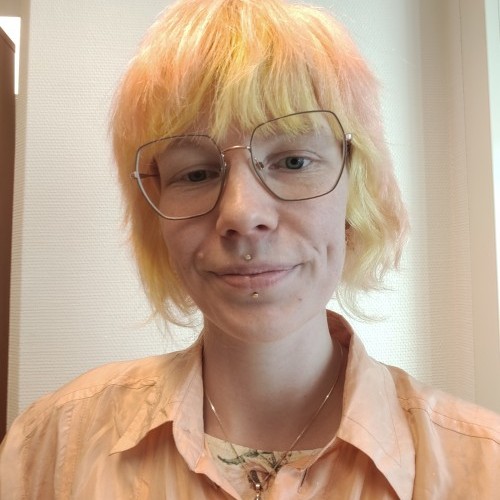
Sigrid Elisabeth Glomdal
PhD candidate, OsloMet, NorwaySigrid comes from the tradition of environmental psychology. Her PhD is about cargo bikes’ place in the urban landscape, especially focusing on the user perspective and the sustainability aspect. Her focus is on using the built environment and the complex systems organising them in combination with psychology to attain more sustainable cities and sustainable behaviour.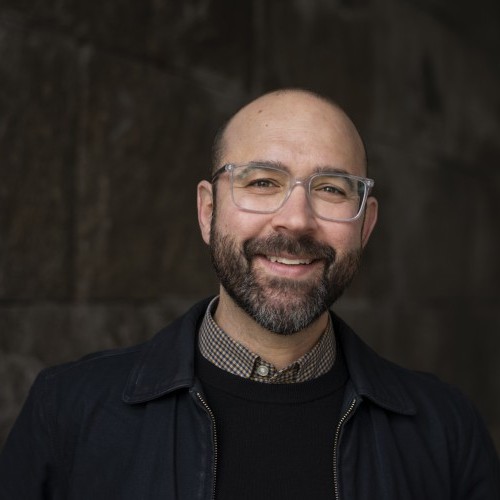
Daniel Piatkowski
Associate professor, OsloMet, NorwayPiatkowski is an associate professor of integrated land use and transport planning at OsloMet – Oslo Metropolitan University, in Oslo, Norway. His work is at the intersection of mobility transitions, human behaviour, and technology. He teaches courses in urban mobility and transport policy in the Master's of Transport and Urban Planning programme at OsloMet. Piatkowski's current research centres on the bicycle as a catalyst for urban change, exploring its potential and pitfalls across spatial and socio-demographic contexts. Prior to joining OsloMet, Piatkowski held appointments at the University of Nebraska – Lincoln and Savannah State University. He earned his PhD in design and planning as a National Science Foundation fellow in sustainable urbanism at the University of Colorado – Denver and holds a bachelor's in English and a master's in urban and environmental planning (both from Arizona State University).The out-of-the-car-experience: The enjoyment of cargo-bike use
Abstract Copy
Inclusive, accessible, healthy and sustainable cities are predicated on viable alternatives to private car use. In theory, the bicycle is an ideal alternative to the car but has struggled to do so in practice. Recently, electric cargo bicycles – bicycles with additional space for storage and passengers, powered by e-assist technology – are expanding the bicycle’s use case as a car replacement, particularly in historically auto-dependent places. There is now an influx of e-cargo bikes being used for private transport, especially among families with smaller kids, as well as for commercial transportation of freight. These wide variety of use cases highlights the large potential, also among people not being bicycle enthusiasts, especially within the context of the 15-minute city.
This research paper investigates satisfaction among cargo bike users, what makes it enjoyable to use, and how that can be scaled up in the context of a broader transportation network. This links cargo bikes to the current transition in urban mobility of a more sustainable, health-promoting, and accessible city. A US survey was conducted on users of cargo bikes, including different types of cargo bike usage (own, lease or rent). A reflexive thematic analysis was conducted using a contextualist epistemology, and Nvivo on the open-ended questions (n=488). Ninety-one per cent of respondents showed a high satisfaction rate of using a cargo bike. The most cited factor of enjoyment is an active lifestyle allowing for being outside more, especially with kids.
It is important for many of the respondents to model good behaviour for their kids, and the kids love riding a cargo bike, calling it an out-of-the-car experience. There is also a large element of traffic avoidance connected to opting out of using a car for everyday transportation. The most cited worry is what to do when the kids grow older and larger. For some, this is currently solved by upgrading to an e-cargo bike or a stronger version of an e-cargo bike. Other factors as points of improvement are regarding maintenance, purchase price and storage facilities at home for some of the families. Good transportation matters for healthy, thriving cities. Cargo bikes are an essential part of the puzzle by having a large potential for reducing everyday travel by car and increasing active forms of travel.Learning Objectives
- Active transportation
- 15-minutes cities
- Sustainable transportation
17.00Panel discussionEnd of Workplace, transport and mobility stream -
10.45 - 12.30Session 15- Mapping and modelling planetary health

Mark Drane PhD
Director, Urban Habitats, United KingdomMark is a researcher and practitioner with 20 years’ experience. He works across the fields of public health, urbanism, and architecture. His work addresses wider determinants of health, focused on promoting holistic wellbeing, and reducing health inequalities. Mark has recently completed his doctoral research, Healthy Streetlife, undertaken during the Covid-19 pandemic observing the impact of the street environment on health. This research has been based at the WHO Collaborating Centre for Healthy Urban Environments, UWE Bristol. As the founder and director of Urban Habitats Mark’s practice work encompasses population health across a spectrum of topics and methods. This includes working at a whole country scale with the WHO Collaborating Centre on Investment for Health and Wellbeing at Public Health Wales. He works at all urban scales including community co-design and addressing community agency as a determinant of health. With a background in practice and industry Mark has been involved in the delivery of over £2 billion of capital investment in social infrastructure. Mark has experience with a broad range of stakeholders across the urban health ecosystem from many different systems and sectors. Happiest whilst on a bicycle Mark is an optimistic gardener and lives in Cardiff, Wales with his family.10.45Mapping climate risk to build healthier, more resilient cities: A case study from Greater Manchester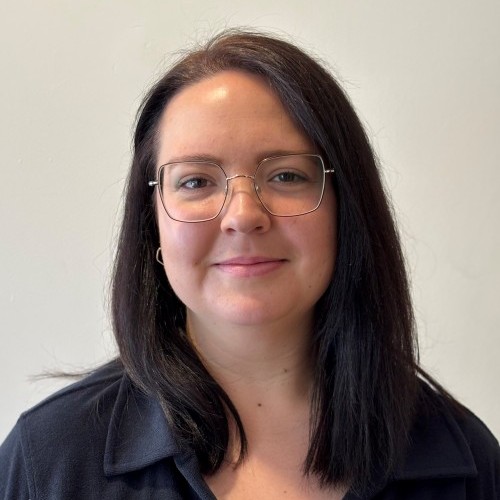
Ffion Carney
Senior Data Scientist, AtkinsRéalis, United KingdomDr Ffion Carney is a Senior Data Scientist in AtkinsRéalis’ Building Design Research & Innovation team. She specialises in urban analytics, geospatial analysis, and social science research. She holds a PhD in Geographic Information Science, from UCL, where she explored the use of big data to understand urban mobility patterns and transport disadvantage in vulnerable populations. Her primary research focus is on the use of open data and geospatial analysis to address challenges and inequalities in urban environments.
Zak Baillie
Principal climate adaptation consultant, AtkinsRéalis, UKZak is a principal climate adaptation consultant within AtkinsRéalis’ Sustainable Futures practice. Zak has extensive climate risk experience from his work in consulting, academia and the public sector. He has worked with a range of clients to help them prepare for a climate-resilient future. He is passionate about using his expertise to translate climate change information into a form that is useful and actionable. In addition to his advisory work, he has published his climate science research in scientific journals and has presented his work at international conferences.Mapping climate risk to build healthier, more resilient cities: A case study from Greater Manchester
Abstract Copy
Cities are increasingly vulnerable to the impacts of climate change. As urban areas grow denser and more complex, they face heightened exposure to climate-related hazards, such as flooding, heatwaves, and extreme weather events. The impacts of these hazards are compounded by ageing infrastructure and social inequalities. Understanding how these factors intersect is essential for building urban resilience and protecting public health.
Greater Manchester is already experiencing significant climate-related impacts. Events such as the 2025 New Year’s Day floods and the July 2022 heatwave highlight the region’s growing vulnerability. These events are a product of a climate that has already changed. The past decade was 1.0°C warmer than the 1961–1990 average, and changing rainfall patterns are projected to produce drier summers and wetter winters. As temperatures continue to rise and rainfall events become more frequent, it is critical to prioritise resilience measures that can safeguard communities, infrastructure and essential services.
Commissioned by Greater Manchester Combined Authority and delivered by AtkinsRéalis, the Greater Manchester Climate Risk Mapping project is a high-level spatial assessment designed to inform local resilience planning and investment. It integrates diverse datasets to examine the exposure of the region to three key hazards: river flooding, surface water flooding, and urban heat. These climate hazards are overlaid with data on critical infrastructure, such as hospitals, schools, care homes and transport networks, as well as several social vulnerability indicators to identify at-risk assets and populations.
Insights reveal that climate risks are unevenly distributed across Greater Manchester, with older adults, people with pre-existing health conditions, and deprived communities facing a disproportionate burden owing to combined environmental and social vulnerabilities. The analysis also highlights the exposure of healthcare assets to these hazards, raising concerns about their ability to operate effectively during extreme events. These insights are critical for informing public health strategies, enabling local authorities and health services to anticipate where climate-related health impacts are likely to be most severe.
The results are visualised through an interactive ArcGIS platform. This enables stakeholders, including city councils, planners, and organisations such as the NHS GM and Transport for Greater Manchester, to interact with the data, supporting co-ordinated, place-based resilience planning. This project demonstrates how spatial data can empower cities to prioritise investments, protect public health, and design climate-resilient, inclusive urban environments. It offers a replicable model for data-driven adaptation planning in cities facing the accelerating impacts of climate change.Learning Objectives
- Understand the spatial distribution of climate-related hazards and social vulnerabilities in urban areas, and the value of having data in a single platform to support coordinated decision-making.
- Explore how integrated climate risk mapping can inform public health strategies and resilience planning.
- Evaluate the role of spatial data in supporting place-based adaptation planning for climate-resilient urban development.
11.05Modelling public health benefits of greenspace planning in an environmentally overburdened neighbourhood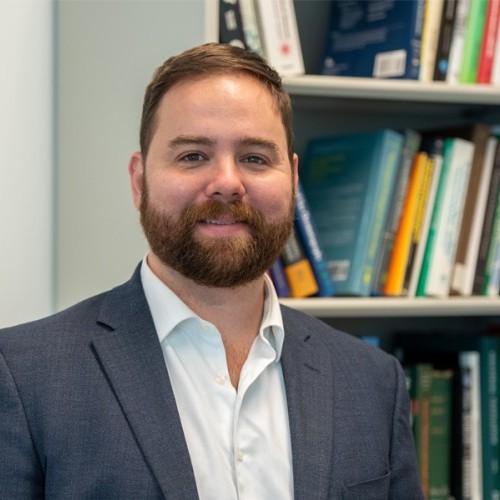
Garett Sansom
Assistant Professor, Texas A&M University, United StatesDr. Garett Sansom is an Assistant Professor in the Department of Environmental and Occupational Health at Texas A&M University’s School of Public Health. His research centers on environmental epidemiology and the pursuit of data-driven solutions to environmental health challenges, particularly in communities facing disproportionate exposure to pollution and climate-related risks. Dr. Sansom’s work bridges environmental monitoring, public health assessment, and community engagement to identify and address the health impacts of contaminants such as heavy metals, PAHs, and PFAS in soil, water, and air. He currently leads and collaborates on projects that investigate the links between environmental exposure and chronic disease, with a special emphasis on vulnerable populations along the Houston Ship Channel, in South Texas colonias, and across hazard-prone rural regions. As a core investigator in the Texas A&M Superfund Research Program’s Community Engagement Core and Director of the Together for a Better Tomorrow initiative, Dr. Sansom integrates citizen science, urban planning, and environmental risk communication to develop actionable interventions. His presentation at Healthy City Design will highlight findings from a multi-site environmental and health surveillance project poised to model public health improvements based on environmental and urban development plans.Lindsay Sansom
Research Assistant Professor, Texas A&M University, United StatesDr. Lindsay Sansom is a Research Assistant Professor in the Department of Environmental and Occupational Health at Texas A&M University’s School of Public Health. Her work explores the intersection of environmental justice, greenspace planning, and community health, with a focus on historically underserved populations. Dr. Sansom’s interdisciplinary research draws on principles from the Socio-Ecological Systems Framework to examine how access to nature can mitigate environmental health burdens and foster resilience. She currently leads and collaborates on multiple projects addressing water insecurity, greenspace equity, and health disparities in both urban and rural communities across Texas. As a Faculty Fellow at the Center for Health and Nature, she directs a research leadership program that mentors early-career scholars in nature-based health interventions. Her presentation at Healthy City Design will share findings from a community-engaged modelling study evaluating the public health benefits of greenspace investment in an environmentally overburdened neighborhood in Houston.Modelling public health benefits of greenspace planning in an environmentally overburdened neighbourhood
Abstract Copy
Background: Manchester, a small, predominantly Hispanic neighbourhood in Houston, Texas, is surrounded by petrochemical facilities, freight rail lines, and heavy industry. Residents have long reported environmental health concerns owing to chronic exposure to pollutants. Previous studies have identified Manchester as one of the most environmentally overburdened communities in the United States, with elevated levels of airborne and soil-based contaminants contributing to disproportionate health risks.
Purpose: This project aims to quantify how urban greenspace and low-impact development strategies can reduce chronic and cancer health risks associated with heavy metal exposure. By integrating environmental sampling, risk modelling, and hydrologic planning, the study offers a novel method to evaluate the direct health benefits of green infrastructure.
Methods: A multi-year environmental assessment was conducted in Manchester, collecting and analysing soil samples for heavy metals such as cadmium, arsenic, chromium, and lead. Cancer and non-cancer risks were calculated using regional screening levels (RSLs) and joint probabilistic risk (JPR) modelling, which incorporated toxic equivalency factors (TEFs) for each metal, normed to cadmium as a reference. Following the risk assessment, a community-informed urban greenspace and low-impact development plan was designed. The Long-Term Hydrologic Impact Assessment (L-THIA) tool was used to model anticipated reductions in runoff-related pollutant loads under the proposed plan. This allowed researchers to re-calculate environmental risks post-intervention using updated pollutant estimates.
Results: Baseline assessments revealed elevated cancer and non-cancer risk levels in multiple locations across the neighbourhood. The modelled greenspace interventions – including rain gardens, bioretention zones, and expanded parkland – demonstrated significant reductions in heavy metal concentrations in surface runoff. Risk modelling showed measurable decreases in both lifetime cancer risk and non-cancer hazard indices under the proposed development scenario, with some risk levels falling below United States Environmental Protection Agency health-based thresholds.
Conclusions/Implications: This study demonstrates how integrating environmental risk assessment with urban greenspace planning provides a powerful, data-driven approach for mitigating environmental health disparities. The application of L-THIA modelling and JPR risk analysis allows urban planners and public health professionals to quantify the co-benefits of green infrastructure in real terms – translating design decisions into reduced health risks for vulnerable communities. This approach is replicable and relevant for urban areas globally, particularly those experiencing cumulative environmental burdens. It also highlights the importance of community engagement in shaping effective, equitable, and sustainable public health interventions.
Learning Objectives
- Evaluate the application of modeling tools such as the Long-Term Hydrologic Impact Assessment (L-THIA) and Joint Probabilistic Risk (JPR) analysis in predicting the health benefits of green infrastructure.
- Understand how integrating environmental risk assessment with urban greenspace design can quantify reductions in chronic and cancer health risks from heavy metal exposure.
- Understand how community engagement enhances the accuracy, relevance, and impact of environmental assessments in historically overburdened neighborhoods.
11.25Mapping health-related environmental exposures for planning and monitoring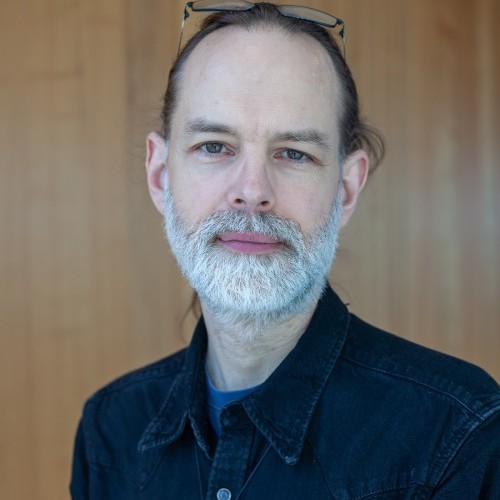
Östen Axelsson
Statistician, Stockholm Health Care Services, Region Stockholm, SwedenDr Axelsson obtained his PhD in environmental psychology from Stockholm University in 2011. In 2013 and 2014, he was a Newton international fellow at the School of Architecture, University of Sheffield, sponsored by The Royal Society. Since 2022, he has been employed as a statistician at the Centre for Occupational and Environmental Medicine within the Stockholm Health Care Services, Region Stockholm. He is also affiliated as a researcher with the Institute of Environmental Medicine at Karolinska Institutet. Dr Axelsson has a particular interest in spatial analysis and optimising urban form with respect to public health.Mapping health-related environmental exposures for planning and monitoring
Abstract Copy
In alignment with the theory of environmental justice, Region Stockholm – the regional government body responsible for healthcare, public transport, and regional development in Stockholm County – is committed to promoting good and equitable public health. To support this aim, it is essential to monitor the distribution and impact of environmental exposures in the population. This paper presents a newly developed GIS-based tool called Environmental Health on the Map, designed for this purpose.
The theory of environmental justice asserts that everyone has the right to a clean and healthy environment, irrespective of socio-economic status. It emphasises the fair distribution of environmental benefits and burdens, ensuring that marginalised communities or vulnerable groups are not disproportionately affected by environmental risks.
In this new tool, exposure to air pollution, transport noise and greenery is mapped by combining environmental and demographic data. Exposures are estimated across a grid of 100 × 100 metre cells. For every inhabited cell in Stockholm County, environmental exposures are attributed to the individuals living there.
Using population-weighted arithmetic mean values, exposures are aggregated into geographical units known as demographic statistical areas and regional statistical areas, as defined by Statistics Sweden. The exposures are further aggregated to the municipal level and, ultimately, to the county level. In addition, the tool includes information on the locations of schools in the county. For equity assessment, it includes data on low-income areas and age distribution.
Because the tool is based on data from currently populated areas, it is best suited to monitoring and comprehensive planning. To enable its use for prediction and detailed planning, future developments will focus on refining the exposure models to allow assessment at address level. Additionally, we plan to include further layers of environmental and socio-economic data, such as urban heat islands, walkability, crowded housing and education level. At present, we explore how to support municipalities in using the tool for planning purposes.Learning Objectives
- How to map health-related environmental exposures
- How to use health-related environmental exposure maps for monitoring
- How to use health-related environmental exposure maps for comprehensive planning
11.45Designing resilient, health-promoting cities through a ‘One Health’ lens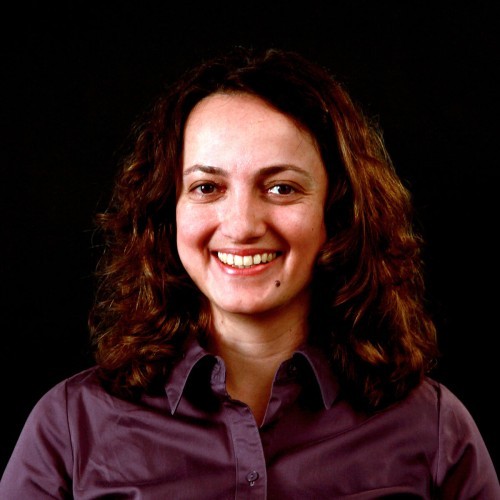
Celen Pasalar
Associate professor, North Carolina State University, United StatesCelen Pasalar, PhD is associate professor in the Department of Landscape Architecture and Environmental Planning, and extension co-ordinator in the College of Design at North Carolina State University. She also holds the titles of University Faculty Scholar and Community Engaged Fellow. Dr Pasalar is actively involved in the Executive Leadership of the Global One Health Academy, where she co-leads the Climate Change and Health Disparities Research Initiative. Her research focuses on creating, translating and broadening evidence for designing smart, connected, resilient and healthy communities. Her work in the realms of urbanism, human behaviour and environment, and community design has profoundly affected the design discipline, addressing the needs in communities at multiple scales. Dr Pasalar collaborates with multidisciplinary researchers, community partners, and practitioners to develop evidence-based design solutions, transforming communities. Her award-winning projects and research have been supported by the National Science Foundation, Federal Emergency Management Agency / US Department of Homeland Security, NC Department of Transportation, the Spencer Foundation, and various non-profits. Her work has been recognised with many awards, including the 2020 Excellence in Service Learning Award from Council of Educators in Landscape Architecture; the 2019 Outstanding Extension Award from North Carolina State University; and multiple national awards from the American Society of Landscape Architects. She has published extensively, including book chapters, peer-reviewed journal articles, proceedings, and research reports. She is a member of the Environmental Design Research Association Board of Directors, and the associate editor and Executive Board member of the Ekistics and the 'New Habitat Journal'. Dr Pasalar holds a PhD in design from North Carolina State University, an MSc in city and regional planning with a focus on urban design, and a BArch in Architecture from Middle East Technical University. Her impactful work over the years exemplifies her commitment to creating sustainable and resilient communities.Designing resilient, health-promoting cities through a ‘One Health’ lens
Abstract Copy
The rapid urbanisation of 21st-century cities has created complex interactions among human, animal, and environmental health, emphasising the urgent need for integrative frameworks in urban planning and design. Cities are facing major challenges regarding dense populations, pollution, close human-animal interactions, shared environmental spaces, heatwaves, invasive species, and loss of biodiversity among others. The One Health approach, which recognises the interconnectedness of these domains and challenges, offers a valuable lens for promoting resilient, inclusive and health-oriented urban environments. This study examines how One Health principles can inform the design and development of healthy cities, fostering environments that proactively support the wellbeing of both humans and ecosystems.
This study uses a literature-based meta-analysis approach, systematically reviewing and synthesising peer-reviewed articles, policy reports, and urban health frameworks that explicitly or implicitly incorporate One Health concepts. The analysis is complemented by a selection of case studies, chosen based on their integration of multisectoral health strategies, nature-based solutions, and technological applications within city design and planning practices. These case studies offer practical examples of how One Health principles have been applied in various socio-ecological contexts.
The findings reveal that while urban design interventions increasingly acknowledge environmental sustainability and public health, explicit incorporation of One Health principles remains limited and fragmented. It also demonstrates measurable benefits in areas such as zoonotic disease prevention, biodiversity conservation in urban landscapes, climate-responsive infrastructure, and inclusive public space design that supports mental and physical health.
The study concludes by proposing a conceptual One Health Urban Design Framework, which synthesises insights from the literature and case studies, offering guiding principles for design educators, practitioners, planners, and policymakers. This framework emphasises cross-sector collaboration, biodiversity integration, equitable access to health-promoting resources, and anticipatory planning for health risks exacerbated by climate change and urban density. By bridging the gaps between human, animal, and environmental health in city design, this research contributes to the growing discourse on planetary health and sustainable urban futures.Learning Objectives
- Understanding the core principles of the One Health Framework and its relevance to urban planning and healthy city design.
- Examining case studies that applies One Health concept in urban environments.
- Applying a conceptual One Health Urban Design framework to inform future urban planning and policy decisions.
12.05Panel discussion12.30 - 14.00Video+Poster Gallery, workshop, lunch and networking14.00 - 15.30Session 16- Regenerative and ecological design in the community
Shira de Bourbon Parme
Urban wellbeing and innovation lead, Ramboll, UKShira de Bourbon Parme, DPhil, MSc, is an urban development planner and social anthropologist dedicated to advancing place-based spatial and social sustainability. In her role within Ramboll's Regenerative Cities Team, she partners with public and private sector stakeholders to develop and deliver integrated urban strategies that foster liveable and resilient environments, nurturing human and planetary health. Her work is grounded in vulnerability-sensitive approaches to drive health, social and spatial equity. Shira holds a doctorate from the Future of Cities programme at the University of Oxford. She serves on the Advisory Board for the University of Birmingham’s Centre for Urban Wellbeing. She has delivered annual lectures for University College London’s MSc Health in Urban Development and the University of Cambridge’s Future of Roads Programme. Notably, Shira led the development of Neighbourhood Futures, a framework for climate resilience and health equity, in collaboration with Impact on Urban Health, and conducts ongoing research on urban planning and social infrastructure for ageing populations.14.00Planetary health – regenerative design and circular economy principles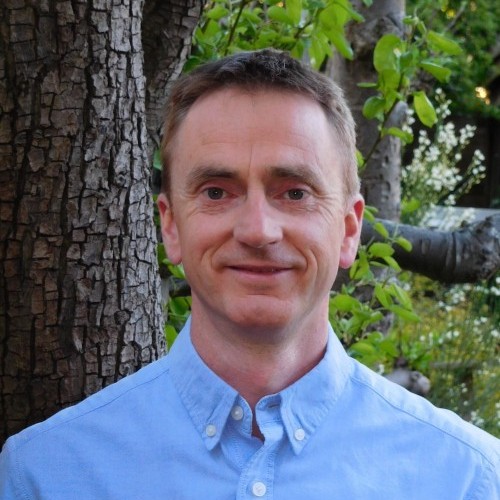
David Cheshire
Sustainability director, AECOM, UKDavid Cheshire is a director at AECOM, specialising in sustainability and regenerative design in the built environment. David is the author of 'Building Revolutions, The Handbook to Building a Circular Economy' and a newly published book titled: 'Regenerative by Design', which explains how buildings can have a positive impact on the planet, becoming an active part of the ecosystem.Planetary health – regenerative design and circular economy principles
Abstract Copy
Background: The health of 8.2 billion people is utterly dependent on having a thriving, functioning ecosystem, but the climate and biodiversity crises are threatening planetary health. Our cities and buildings are an incredible engineering and architectural feat and a highly effective way to accommodate millions of people. However, they are a huge burden on the planet, demanding vast tracts of land and resources to support their needs, which is exacerbating the climate and biodiversity crises.
Purpose: The idea of regenerative design is about creating buildings that give back more than they take, providing habitats, ecosystem services (e.g., purifying air, regulating the climate), and locally grown food, and putting humans back in touch with the natural world. It requires a shift in thinking that moves away from the misconception that ecosystems are an infinite resource that can be exploited to one where humans and the natural world co-evolve. It is easy to forget that, ultimately, we are completely dependent on having a thriving ecosystem for our most basic needs: breathable air, clean water, nutritious food, and a stable climate.
Method: This paper will explain how buildings, towns and cities could start to have a positive impact on our planet, providing ecosystem services and living within the means afforded by the site. The paper will set out regenerative design principles including: applying systems thinking, bio-inspired design, designing within environmental budgets, and designing for a circular economy.
The paper is based on research by the author and undertaken to write a book: 'Regenerative by Design'. The research included interviews with 20 designers, researchers and experts, absorbing knowledge from 30 books and numerous research papers.
Results: The research resulted in a book that sets out the definition of regenerative design and the case for applying it to the built environment. It proposes seven regenerative design principles and explains each one. Case studies are used to illustrate how the design principles are applied and include case studies from around the world, including net-positive buildings; a floating eco-village; building-integrated greenhouses; microbial fuel cells; microgrids; and reclaimed/biogenic materials.
Conclusions and implications: Regenerative design is a radical agenda that requires a new approach to buildings and our cities, where the built environment becomes an active part of the ecosystem. The research shows how this can be done practically and backs it up with case studies that illustrate how it has been implemented using different mechanisms.
Learning Objectives
- Gain an understanding of the definition of regenerative design
- Understand the reasons and benefits of regenerative design
- Understand the regenerative design principles that can be applied to projects
14.20Circular educational infrastructure: How can we create healthy school buildings on a degraded planet?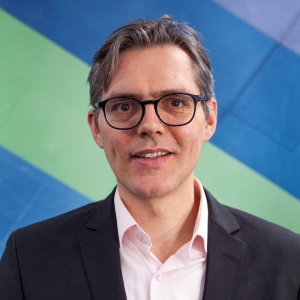
Coen van den Wijngaart
Manager, real estate development; member, management committee, Anculus, The NetherlandsCoen van den Wijngaart is manager of real estate development at Anculus and a member of its management committee. He specialises in overseeing the development, redevelopment, and renovation of public-sector real estate projects, primarily serving educational institutions through delegated client management. Anculus provides strategic portfolio management with a focus on sustainable and resilient infrastructure. Coen holds a degree in architectural engineering from Delft University of Technology and an executive MBA from Vlerick Business School, Brussels. With over 25 years of experience as an architect, entrepreneur, and strategic real estate developer, his expertise lies at the intersection of innovative architectural design, health and wellbeing in the built environment, and sustainable development. His research and professional interests include the translation of architectural and strategic concepts into healthy, inclusive, and future-proof environments for living, learning, working, and care. His career is marked by a commitment to advancing knowledge and practice in healthy and sustainable public real estate development.Circular educational infrastructure: How can we create healthy school buildings on a degraded planet?
Abstract Copy
The pursuit of healthy and high-performing educational environments is inextricably linked to the global challenge of climate change: fostering wellbeing in schools is unsustainable on a planet in ecological distress. While operational energy use represents only a fraction of a school building’s total carbon footprint, construction and renovation processes consume substantial resources and contribute significantly to carbon emissions. Central to this issue is the concept of “embodied carbon”, which encompasses the total emissions associated with the construction, materials, and entire lifecycle of a school building, irrespective of its operational use.
A circular approach to educational infrastructure advocates for regenerative building strategies that minimise environmental impact. Such an approach aims to eliminate waste, pollution, and carbon emissions, while promoting the sustainable use of energy and materials throughout a building’s lifecycle. Long-term thinking is imperative: construction and operational use must be conceived as interrelated within a continuous circular process. This necessitates a comprehensive assessment of existing structures, emphasising adaptability and context-specific interventions. Drawing on two case studies – a large-scale renovation and a new reconstruction – this study demonstrates how cradle-to-cradle thinking, combined with holistic methodology and data-driven analysis, can yield low-tech, environmentally and socially beneficial solutions to promote human health.
1) The renovation of “De Vuurvogel” transforms an outdated school into a contemporary, energy-neutral learning environment. The project adopts a circular strategy focused on future use, lifespan extension, and educational inclusivity. Features include modular construction, intelligent energy systems, and a clustered procurement model, all implemented within a highly efficient seven-week construction period.
2) The reconstruction of the “Montessori School Maassluis” in a dense urban setting follows circular economy principles: sustainable urbanism, community-driven design, reversible structures, and the use of bio-based and recycled materials. The building embodies energy-positive design, advanced prefabrication, and demountable construction methods.
Both projects emphasise climate-adaptive, zero-emission development by integrating:
• Trias Energetica principles, operable windows, daylight optimisation, and CO2-absorbing materials;
• modular systems to reduce construction time and failure costs during construction;
• passive energy strategies for ventilation, heating, cooling, and lighting;
• smart energy distribution, monitoring, and storage systems; and
• nature-inclusive design elements that enhance biodiversity, water management, and educational outdoor spaces.
Ultimately, the school of the future must be resilient and adaptable, capable of accommodating evolving pedagogies and community needs. True sustainability arises from a user-centred co-creation process, fostering buildings that are not only environmentally sound but also socially embedded within their ecosystems.
Learning Objectives
- Sustainable and Healthy Educational Environments
- Circular Economy
- Community-driven Design
14.40Hafod Farm – a pilot Homestead project reimagining therapeutic environments for psychosis through nature, arts and community-based care
Heather Macey
Director and trustee, Makower Architects, United KingdomHeather Macey is a Director and Trustee at Makower Architects. With a background in urban regeneration, supported housing and masterplanning, she is committed to creating healthier and more inclusive environments through design innovation. Heather is a Trustee and Co-Lead of Homestead, a pioneering supported-housing model that brings together therapeutic design, health innovation and place-based care to support individuals with psychosis. She is also a founding member of Architects Aware!, a London-based think tank dedicated to addressing the homeless crisis.
Andrew Howe
Consultant general adult psychiatrist and psychodynamic psychotherapist, South London and Maudsley NHS Foundation Trust, UKAndrew Howe is a Consultant General Adult Psychiatrist and Psychodynamic Psychotherapist at the South London and Maudsley NHS Foundation Trust, UK. He is PhD student at the University of Essex with an interest in hallucinations and analytical psychology and has written multiple journal articles in this field.Hafod Farm – a pilot Homestead project reimagining therapeutic environments for psychosis through nature, arts and community-based care
Abstract Copy
Homestead is a new, design-led approach to therapeutic-supported housing for people living with psychosis. At its heart, Homestead aims to redefine how care is delivered – moving beyond institutional or purely clinical settings towards community-based, relational models rooted in creativity, nature and purpose. It brings together architecture, arts, green care, and lived experience to create a new kind of healing habitat.
Our pilot project, Hafod Farm in North Wales, is the first live expression of this model. Designed as a community-based social enterprise, it combines residential care with creative and ecological infrastructure. Residents are supported through three interwoven pillars: creative expression; engagement with the natural world; and active participation in a shared community. The objective is to reduce hospitalisation, enhance crisis resilience, and offer a greater sense of autonomy and belonging.
This presentation outlines the theoretical grounding of Homestead, drawing from current evidence in creative arts therapies, green care (horticulture and animal-assisted therapies), and the long-standing need to evolve community mental health provision. Through the lens of Hafod Farm, we explore how these frameworks are being practically applied, and the design mechanisms used to create safe, purpose-driven and nurturing environments for individuals with complex mental health needs.
The Hafod model challenges current supported housing norms by embedding residents, staff, and local makers in a mutual care ecosystem, where creative practice and meaningful work are embedded in daily life. This talk will share the architectural and therapeutic design strategies in development, community engagement processes, and multimedia documentation (photos, video and narratives) that bring Hafod to life.
We will also share early reflections on project delivery challenges, from site planning and governance to clinical collaboration and operational viability. Crucially, we frame Hafod not as a one-off prototype but as the first node in a national network, akin to the Maggie’s model, aiming to evolve into a replicable, adaptable system of relational care environments.
Our presentation closes with a forward-looking view on research and impact measurement, including aspirations for a randomised controlled trial (RCT), partnership with NHS trusts, and an economic case for holistic care that reduces dependency on emergency services. Through Hafod, Homestead seeks to influence the future of therapeutic environments – not as an adjunct to mental healthcare but as a foundational and transformative alternative.Learning Objectives
- Understand how multi-sector partnerships between clinical services, architects, artists, and community organisations can drive innovation in therapeutic housing models.
- Explore funding strategies and operational models for piloting and scaling community-based mental health interventions, drawing lessons from the Hafod Farm prototype.
- Critically assess the challenges and opportunities of embedding research, evaluation, and health economics into the early stages of design-led mental health projects.
15.00Panel discussion15.30 - 16.00Video+Poster Gallery, coffee and networking16.00 - 17.15Session 17- Nature-based solutions to promote health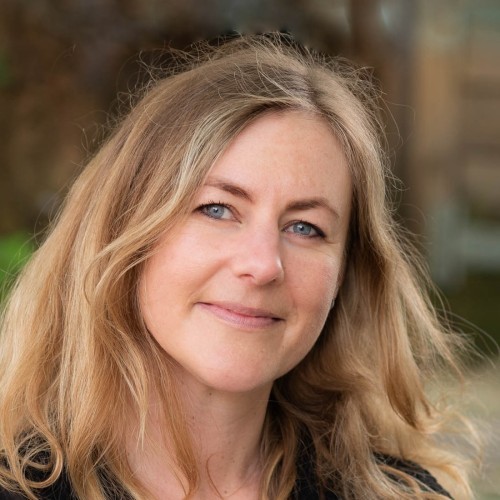
Hannah Arnett
Senior editor, Cities & Health, UKHannah is a trained environmental psychologist having studied an MSc in Outdoor Environments for Health and Wellbeing, developing a research focus on Urban Places for Social Wellbeing with participatory research methods following a background in health innovation and communications. In research practice, Hannah’s key focus is on urban wellness design with Studio Altaa and works across climate and culture evaluation practice as a Senior Researcher with Tialt. Hannah is a Senior Editor with Cities & Health and serves on the Editorial Board and has previously served on the board of Environmental Design Research Association (EDRA).16.00Advancing community responses to loneliness and mental health through nature and social connection in cities. The RECETAS project explained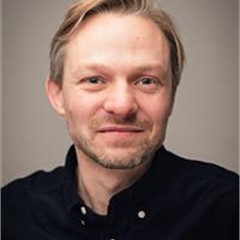
Mat Jones
Professor of public health and community development, University of the West of England, UKMat Jones is professor of public health and community development at the Centre for Public Health and Wellbeing at the UWE Bristol. He has an academic background in social anthropology, social and political science applied to public health, and a practice background in community development. Mat is currently working on eight research projects in the areas of nature, food systems and health; community capacity building; and inequalities in urban health. These include the EU-funded RECETAS nature-based social prescribing programme. With a track record of research with 48 projects, and producing 77 reports, 55 conference papers and 47 peer-review publications, Mat is a leading UK specialist in participatory methods for the evaluation of complex health and social change programmes. Methodologically, he focuses on the pragmatic application of co-production, realist evaluation, outcome harvesting, social return on investment, and theory-of-change methods alongside the use of quantitative pre-post and quasi-experimental methods. He sits on a number of funding selection committees, including the National Institute for Health and Care Research’s DLAF and ESRC/UKRI Evaluation Development Fund.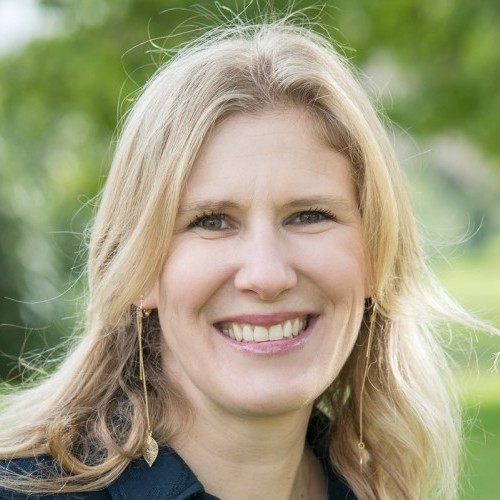
Carolyn Daher MPH
Co-ordinator, Urban Planning, Environment and Health Initiative, Barcelona Institute for Global Health, SpainCarolyn Daher is a public health specialist with over 20 years of international experience connecting research, education and implementation to build healthier communities. Carolyn has a B.A. in Environmental Studies (Brown University), Master in Public Health (Johns Hopkins Bloomberg School) and a Master in Psychosocial Intervention (University of Barcelona). Her work centers on how to generate greater impact in policy and society using scientific evidence, and ensure evidence-based practices in the creation and implementation of projects to promote health, especially in urban contexts. She currently coordinates ISGlobal’s Urban Planning, Health and Environment Initiative.Advancing community responses to loneliness and mental health through nature and social connection in cities. The RECETAS project explained
Abstract Copy
The problem: Nature-based solutions for the promotion of health and wellbeing are receiving increasing interest in urban contexts worldwide. Can the prescription of social activities in nature reduce feelings of loneliness and improve wellbeing?
RECETAS (Re-imagining Environments for Connection and Engagement: Testing Actions for Social Prescribing in Natural Spaces) aims to answer this question through robust evidence. The RECETAS consortium includes 13 institutions from nine countries, and used multidisciplinary approaches to implement nature-based social prescribing (NBSP). We conducted three observational studies and three randomised controlled trials in six cities: Barcelona, Marseille, Prague, Helsinki, Cuenca and Melbourne.
Methods: NBSP is a holistic, person-centred and community-based approach that bridges the gap between clinical and non-clinical services. RECETAS developed and tested Friends in Nature (FiN), a six-to-nine-week facilitated intervention in groups of participants from 18 years and older. Group activities were drawn from a menu of community natural resources that was co-created prior to the intervention. Trained facilitators conducted an initial interview to assess eligibility and enrol participants. Questionnaires to assess loneliness, mental health and nature connection were administered at baseline, three and six months each group. Qualitative information was recorded through facilitator learning diaries.
Results: More than 1200 people were enrolled in RECETAS studies across the six sites. Data analysis is currently ongoing. Initial results indicate that FiN has a positive impact on loneliness score and nature connection. These effects attenuated over time. Challenges to implementation included limited mobility of some participants; weather conditions; recruitment of vulnerable populations; and adherence to the full programme due to illness and other factors. Overall, FiN provided positive impacts in diverse populations, even in those who did not have full adherence to the programme.
Lessons learned from the FiN model development and testing include the need for robust and flexible evaluation strategies, the need for adaptations to ensure the inclusion of vulnerable and marginalised groups, and to include co-operation and collaboration at all levels of the project to build trust and incorporate local knowledge and assets.
Conclusions: FiN offers an effective solution that can be adapted to diverse urban contexts. RECETAS demonstrates that NBSP can reduce pressure on already stressed medical systems by using non-medical, nature-based community referral strategies. RECETAS has contributed to local, regional and global conversation about loneliness, connection and the role of nature. The results link research with practice and policy, enabling citizens, providers and decision-makers to optimally implement and scale-up NBSP interventions.
Learning Objectives
- Share a model to leverage nature and social connection for health
- contribute to the discourse on loneliness and mental health
- provide evidence about the links between environment, nature and health
16.20The impact of green and blue spaces on neonatal health in Wales (2008–2019): A retrospective longitudinal study
Rukun K.S. Khalaf
PhD student, GroundsWell Consortium , United KingdomRukun Khalaf is a PhD student based at the University of Liverpool. Her work focuses on Green and Blue Spaces (GBS) and their relationship with maternal health, newborn health, and health inequalities. Her work is funded through a National Institute for Health Research (NIHR) School for Public Health (SPHR) PhD studentship. Rukun has a background in infectious disease epidemiology and has an MSc from the London School of Hygiene and Tropical Medicine. Moreover, she has worked as an epidemiologist with the World Health Organization (WHO) Malaysia during the COVID-19 pandemic. Rukun aims to conduct research that utilises data to answer complex public and environmental health questions.The impact of green and blue spaces on neonatal health in Wales (2008–2019): A retrospective longitudinal study
Abstract Copy
The effects of green and blue spaces (GBS) on birth complications, such as low birthweight (LBW) and pre-term birth (PTB), are unclear. Further, GBS studies on neonatal health often focus on exposure during pregnancy, negating the potential benefits of maternal preconception GBS exposure. Thus, we aimed to investigate the impacts of GBS exposure, before and during pregnancy, on neonatal health in Wales (2008 – 2019).
We used administrative data in the SAIL Databank. Our cohort was limited to babies born in Wales (2008-2019). Our outcomes were LBW (<2.5 kg) , PTB (<37 weeks), birthweight (g), and gestational age (weeks). The Enhanced Vegetative Index (EVI) within a 300m circular buffer of a mother’s residence denoted ambient greenness. The nearest and average distance to a water body within a 1600m network buffer around a home represented blue space exposure. Exposure readings were calculated annually at two points: one-year before, and during pregnancy. We utilised generalised linear models and controlled for individual-level confounders (e.g., mother’s education) using census data.
Our cohort comprised 176,459 births. A +10-per-cent change in greenness during pregnancy was linked to reduced odds of LBW (OR = 0.98, 95 per cent CI 0.96 – 0.9996, p = 0.05). There was no statistically significant greenness effect on PTB. Additionally, 10 per cent greater greenness was associated with an increase of 3.04g (95 per cent CI 3.30 – 5.76g, p=0.03) in birthweight with pre-pregnancy exposure, and of 2.69g (95 per cent CI 0.05 – 5.33g, p=0.05) increase with exposure during pregnancy. Further, 10 per cent greater greenness before pregnancy was associated with a one-week (95 per cent CI 0.9994 – 1.0 weeks, p=0.01) increase in gestational age. An increase of 100m to the nearest blue space was associated with a one-week (95 per cent CI 0.9998 – 1.0 weeks, p=0.05) increase in gestational age with pre-pregnancy exposure, and one-week (95 per cent CI 0.9997 – 1.0 weeks, p=0.01) increase with exposure during pregnancy.
We found a small green space protective effect on LBW. Greenness was positively associated with increased birthweight and gestational age. We note an association between blue space proximity and gestational age.
The study findings contribute to the growing evidence on the effect of GBS on birth complications. Our study addresses scarce research on the role that timing of GBS plays on incidence of birth complications and further elucidates the potential GBS mechanism of action.
Learning Objectives
- Evaluate the effect of ambient greenness on LBW, PTB, birthweight, and gestational age in Wales (2008-2019).
- Evaluate the effect of proximity to blue space on LBW, PTB, birthweight, and gestational age in Wales (2008-2019).
16.40Panel discussionEnd of Planetary health stream
Closing keynote plenary
Quays Theatre
17.25 - 18.00Session 5- Roadkill: Unveiling the true cost of our toxic relationship with cars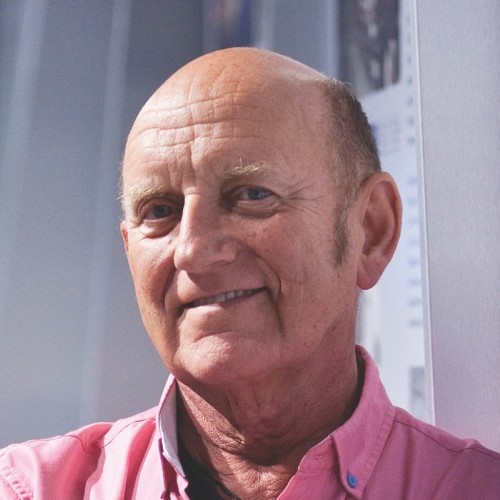
Chris Liddle
Group chair, HLM Group, UKChris is HLM Group chair and Strategic director of HLM's custodial, justice and defence sectors. He is hands-on in many of HLM's flagship projects and a champion of social architecture.17.25Roadkill: Unveiling the true cost of our toxic relationship with cars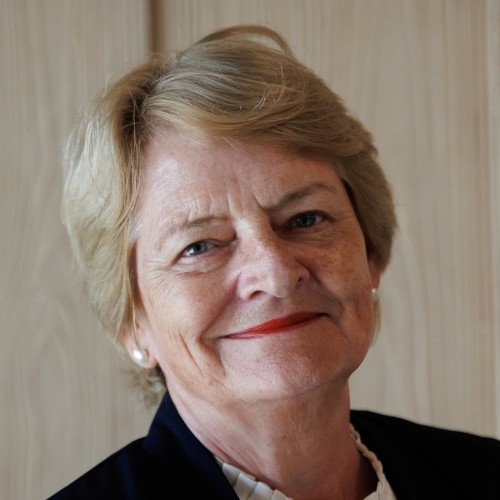
Henrietta L. Moore
Founder and director, Institute for Global Prosperity; Chair in culture philosophy and design, University College London, UKProfessor Henrietta L. Moore is the founder and director of the Institute for Global Prosperity and the chair in culture philosophy and design at University College London (UCL). A leading global thinker on prosperity, Professor Moore challenges traditional economic models of growth arguing that to flourish communities, businesses and governments need to engage with diversity and work within environmental limits. Her recent policy work focus on new economic models; universal basic services; artificial intelligence; environmental degradation and decarbonisation; displaced people; and the gender pay gap. In 2016, Professor Moore was made Dame Commander for the British Empire for her contribution to social sciences, services to business, policy and the arts. She is also a fellow of the Clean Growth Network, a fellow of the British Academy, a fellow of the Royal Society of Arts, an academician of the Learned Societies for the Social Sciences, and a member of the Institute of Directors.Roadkill: Unveiling the true cost of our toxic relationship with cars
Abstract Copy
The private car is often regarded as a symbol of modern freedom and economic opportunity. In 'Roadkill: Unveiling the true cost of our toxic relationship with cars', Arthur Kay and Professor Henrietta L. Moore critically re-examine this narrative. They argue that widespread car dependency has created a profound and under-acknowledged crisis, contributing to environmental degradation, economic inefficiency, and deepening social inequality. Far from being a vehicle of prosperity, the car has become a central driver of systemic failure across our cities and societies.
This keynote explores how our entrenchment in car-centric urban design and economic models has led to significant harm, from air pollution and urban sprawl to infrastructure inequality and community fragmentation. Despite increasing awareness of climate breakdown and ecological limits, investment and policy continue to privilege road-based transport, reinforcing outdated assumptions about progress and mobility.
By drawing on interdisciplinary research in urban planning, environmental economics, and political economy, the authors provide a rigorous critique of the structural role the car plays in shaping modern life. Their methodology combines empirical data analysis, historical and policy-based case studies, and narrative inquiry, offering a systemic perspective on how car culture emerged – and how it might be dismantled. This is further grounded in the authors’ applied work: Kay’s entrepreneurial ventures in clean technology and sustainable housing, and Moore’s academic leadership in developing new models of prosperity based on environmental and social thresholds.
Rather than offering incremental reform, 'Roadkill' calls for a paradigm shift. It advocates for restructured urban mobility systems based on universal basic services, active and public transport, and infrastructure designed for inclusion and regeneration. Crucially, the book explores how sustainable business practices, new investment models, and citizen-led innovation can help accelerate this transition.
The keynote will conclude by identifying practical next steps for academics, policymakers and entrepreneurs working towards post-car futures. These include investing in car-free infrastructure, supporting policy environments that prioritise equity and wellbeing over GDP growth, and advancing business models that embed sustainability as a structural principle. In confronting the cultural and economic grip of the car, 'Roadkill' provides a blueprint for reimagining prosperity in the 21st century.
17.50Closing remarks
Prof Jeremy Myerson
Co-founder, Healthy City Design; Chairman, WORKTECH Academy; professor emeritus, Royal College of Art, UKJeremy Myerson has been academic, author and activist in design for more than 40 years. He co-founded the Helen Hamlyn Centre for Design in 1999, and was its director until 2015. Last year, he received emeritus professor status at the RCA, and he continues to direct his own venture, the WORKTECH Academy, which provides a forum for academics and practitioners to share new ideas on the future of work and workplace. He is the author of more than 20 books on a wide range of subjects in art, design and architecture, and he has curated many national design exhibitions. He has been at the helm of the Healthy City Design Programme Committee since the Congress’ inception in 2017.18.00CloseWalking Tour 2: Stories of the Quays: Places shape people, and people shape placesCulture + Connection Reception -
08.00 - Registration opens
Opening keynote
Quays Theatre
08.45 - 10.15Session 18- Opening keynote: Housing, health and happiness: Greater Manchester’s Bold Approach to the housing crisis
Sarah Castle
Co-founding director, IF_DO, UKSarah Castle is an award-winning Mancunian architect and co-founding director of architecture practice IF_DO, specialising in social infrastructure, community, and cultural projects. Recognised by the Architects' Journal as one of their 40 Under 40 (2020), named a 'Future 50 Global Leader' by the Project Management Institute (2024), and shortlisted for BD Young Architect of the Year (2021), Sarah brings a strong focus on inclusive design practices to her work. Her notable projects include the Civic Trust Award-winning Brent Cross Town Primary Substation, and the award-winning transformation of historic buildings in Hastings into vibrant community facilities, including The Observer Building retrofit. Sarah is a founding member of Part W—a campaign group advocating for gender equity in design that won the inaugural Prize for Research in Gender and Architecture (2023). She is also a sought-after international speaker who has delivered keynotes including at Utopian Hours, Turin 2024 and Architects’ Journal Retrofit Live 2025. Sarah serves on the Places Matter Design Review Panel and Salford Design Review Forum, and also is as a guest tutor at Manchester School of Architecture.08.45Welcome and introduction
Prof Jeremy Myerson
Co-founder, Healthy City Design; Chairman, WORKTECH Academy; professor emeritus, Royal College of Art, UKJeremy Myerson has been academic, author and activist in design for more than 40 years. He co-founded the Helen Hamlyn Centre for Design in 1999, and was its director until 2015. Last year, he received emeritus professor status at the RCA, and he continues to direct his own venture, the WORKTECH Academy, which provides a forum for academics and practitioners to share new ideas on the future of work and workplace. He is the author of more than 20 books on a wide range of subjects in art, design and architecture, and he has curated many national design exhibitions. He has been at the helm of the Healthy City Design Programme Committee since the Congress’ inception in 2017.09.00Welcome address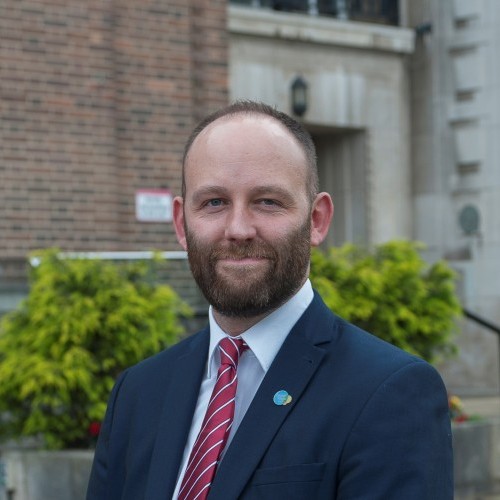
Paul Dennett
City Mayor of Salford, UKPaul was elected as councillor for Langworthy in 2012, and held the role of strategic assistant mayor, where he championed equalities, technology innovation, urban regeneration, and workforce development until 2016. His focus on fostering inclusive prosperity and sustainable growth laid the groundwork for his future leadership. Since being elected as City Mayor in 2016, Paul has been campaigned for equality, financial inclusion, and the real living wage. He has worked to embed social value across the public and private sectors, with a particular commitment to tackling poverty and addressing the housing crisis. His leadership has helped create an environment where innovative solutions to Salford’s housing challenges can thrive. Passionate about empowering young people and nurturing Salford’s rich cultural and sporting life, Paul led the launch of Suprema Lex in 2020, Salford’s shared cultural strategy. Driven by the Salford Culture and Place Partnership, this strategy is a cornerstone of the city’s ambitions for creativity, arts, and community engagement. In his wider role as deputy city mayor in the Greater Manchester Combined Authority (GMCA), Paul has been instrumental in delivering the Housing First initiative and tackling homelessness. He continues to oversee the development of Greater Manchester’s Housing Strategy, while leading efforts on the Plan for Homes, Jobs, and the Environment, ensuring that the city region's growth is sustainable, inclusive and equitable.09.15Housing, health and happiness: Greater Manchester’s bold approach to the housing crisis
Paul Dennett
City Mayor of Salford, UKPaul was elected as councillor for Langworthy in 2012, and held the role of strategic assistant mayor, where he championed equalities, technology innovation, urban regeneration, and workforce development until 2016. His focus on fostering inclusive prosperity and sustainable growth laid the groundwork for his future leadership. Since being elected as City Mayor in 2016, Paul has been campaigned for equality, financial inclusion, and the real living wage. He has worked to embed social value across the public and private sectors, with a particular commitment to tackling poverty and addressing the housing crisis. His leadership has helped create an environment where innovative solutions to Salford’s housing challenges can thrive. Passionate about empowering young people and nurturing Salford’s rich cultural and sporting life, Paul led the launch of Suprema Lex in 2020, Salford’s shared cultural strategy. Driven by the Salford Culture and Place Partnership, this strategy is a cornerstone of the city’s ambitions for creativity, arts, and community engagement. In his wider role as deputy city mayor in the Greater Manchester Combined Authority (GMCA), Paul has been instrumental in delivering the Housing First initiative and tackling homelessness. He continues to oversee the development of Greater Manchester’s Housing Strategy, while leading efforts on the Plan for Homes, Jobs, and the Environment, ensuring that the city region's growth is sustainable, inclusive and equitable.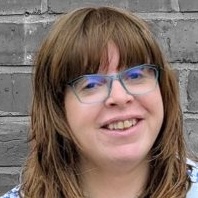
Kate Simpson
Service director, Social Adventures, UKKate is the strategic lead on all services delivered by Social adVentures including the Healthy Living Contract, Mental Health and Horticulture, Social Prescribing and Forest School Educational Training. Additionally Kate heads up the marketing and communications across all aspects of the organisation including planning marketing campaigns for the social businesses and leading on employee engagement. A former business journalist and communications specialist, Kate has worked across the private sector as well as being a trustee on several boards focused on health and wellbeing.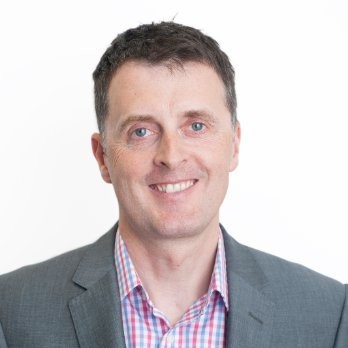
Simon Hourihan
Project director, Muse Places, UKHighly focused and experienced Project Director; combining 10yrs in main contracting and 24yrs on the client side for two leading prestigious mixed use urban regeneration developers, Crosby Homes & Muse Developments. Also including 3+yrs public sector experience delivering a key transformational regeneration project for Stoke-on-Trent City Council. Project Management of mixed use development values from £1.2M to £175M within a turnover of £300M+. Total ‘Project Life Cycle’ management skills including feasibility, conception, procurement, delivery and financial close of major projects in commercial, residential, transportation and mixed use urban regeneration in both the public & private sector. Strong focus on deliverable, de-risked design and high quality contemporary city center residential.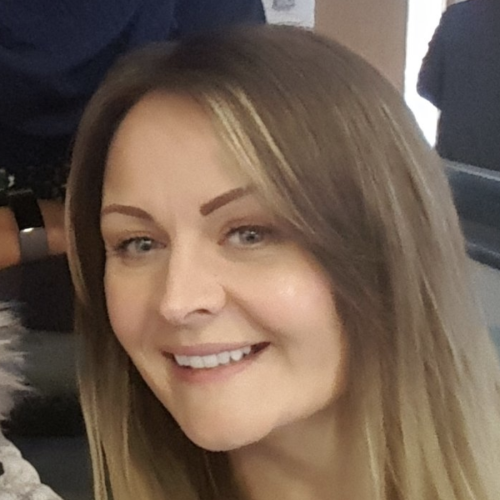
Helen Simpson
Strategic relationship manager (Housing),Greater Manchester Health and Social Care Partnership, UKHousing, health and happiness: Greater Manchester’s bold approach to the housing crisis
Abstract Copy
Greater Manchester believes a stable home is the foundation for a thriving life. This session will explore how GMCA is innovating to lead the way with groundbreaking pilots and bold solutions, proving that good health, education and jobs all start with secure housing.10.15 - 10.45Video+Poster Gallery, coffee and networkingSelect a Stream
- Stream 6Investment, regeneration and equity
- Stream 7Homes and neighbourhoods
- Stream 8City planning and investment
- Stream 9Active and inclusive communities
- Stream 10Community impact
-
10.45 - 12.30Session 19- Health in all Policies: Driving health improvement, equity and economic development
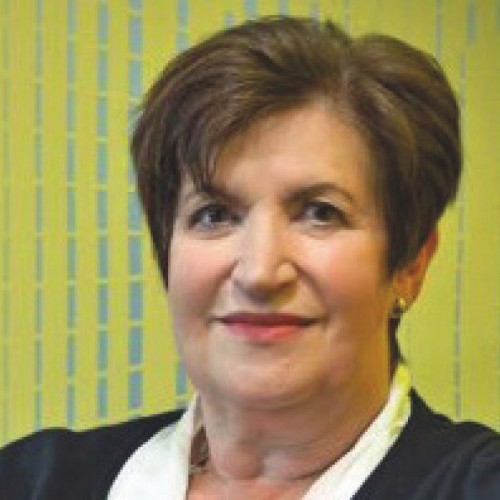
Beatrice Fraenkel
Design regeneration and health consultant; Trustee, Design Council, UKBeatrice is an industrial designer and ergonomist with particular expertise in designing systems and products aligned to end user requirements. Her early career was in design, ergonomic research and teaching at UMIST and Liverpool University. Her public-sector life has always involved regeneration and economic development schemes at a local and regional level – first as chair of the Rope Walks Partnership in Liverpool, then as chair of Renew NW. Beatrice was a non-executive director of Liverpool Health Authority, then chair of South Liverpool Primary Care Trust. Beatrice is a CQC special advisor specialising in governance and leadership. She is a trustee of the Design Council and an Hon.FRIBA. Her past roles have included chair of a housing association, trustee of Tate Liverpool, and chair of the Architects Registration Board.10.45Health in All Policies: Driving health improvement, equity and economic development
Nicola Butterworth
Corporate director of neighbourhoods and housing, Liverpool City Council, UK
Elspeth Anwar MD
Associate director of public health (wider determinants), Liverpool City Council, UKI trained in the North West on the Public Health training scheme and I’m a medical doctor by background. I have also been an academic trainee and have published multiple peer reviewed papers. I am passionate about improving health outcomes and reducing health inequalities through driving collective action to improve the conditions in which people are born, grow, live, work and age within Liverpool. I strongly believe in working with and empowering local communities to improve health outcomes. My current lead areas include wider determinants, addictions (drugs, alcohol, tobacco, gambling) and research and development, including being the lead for the National Institute for Health and Care Research (NIHR) funded Health Determinants Research collaboration Liverpool.
Dagmara Wojciechowicz
Manager, Merseyside Polonia, UKMy name is Dagmara Wojciechowicz and I live in the L8. November last year I took on the role of Merseyside Polonia’s manager. I am community champion manager focusing on working in partnership with local PCNs, hospital trusts and other health institutions advocating for Polish community. Our partnerships are aimed at bringing down barriers in accessing healthcare and addressing health inequalities affecting our communities. I am a public advisor for ARC NWC based at University of Liverpool on ‘Growing Up Children in Liverpool’ project, and also sit as committee on Health Equality Project Liverpool focusing on addressing low MMR imms uptake amongst children in Liverpool. I have a degree in Business and PR but my focus during my studies was on Corporate Social Responsibility.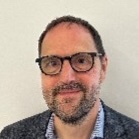
Andrew Leigh
Director of housing, Liverpool City Council, UKAndrew is director of housing at Liverpool City Council – one of the UK’s Core Cities – leading homelessness and housing services within the City, including the City’s private-sector housing and healthy homes teams, which have a significant role in addressing poor housing conditions and helping to address the links between poor housing and health. Andrew has been in the housing sector for over 30 years working for registered providers and major local authorities in the Midlands and North-West of England. He has a broad experience of housing from delivering front-line services through to strategic housing, business planning and housing governance. Andrew is a values-driven leader and is a strong advocate of partnership and collaborative working across the sectors.Health in All Policies: Driving health improvement, equity and economic development
Abstract Copy
This session will focus on work that is taking place in Liverpool to improve health using a ‘health in all policies’ approach with a focus on equity and economic development. Strategic leads from across Liverpool City Council, including planning, housing, city development and public health, together with a community leader, will describe and discuss the integrated approach the city is actually taking to improving health and health equity as a foundation for economic and social development.
Following last year’s Congress in Liverpool, the panel will update on the past 12 months of delivery in the city, based on collaboration across all policies and decisions designed to improve the physical, mental, social and economic wellbeing of the population of Liverpool. At the heart of this is community and individual engagement and collaboration.
The panel will showcase local work underway on a major regeneration programme in the North of the city and set out its potential to transform lives. The ambitious programme includes plans for the building of around 10,000 new homes, major improvements to public transport and active travel infrastructure and the creation of job opportunities. We will set out how Liverpool as a Marmot City is deliberately driving a collective focus on ensuring we develop healthy, economically successful, and sustainable communities, including trusting and empowering local people, to turn around the fortunes of communities that have been held back for far too long.
12.30 - 14.00Video+Poster Gallery, workshop, lunch and networkingLunchtime reception: Community of Practice launch14.00 - 15.30Session 20- MediaCity: Designing tomorrow’s creative and healthy communities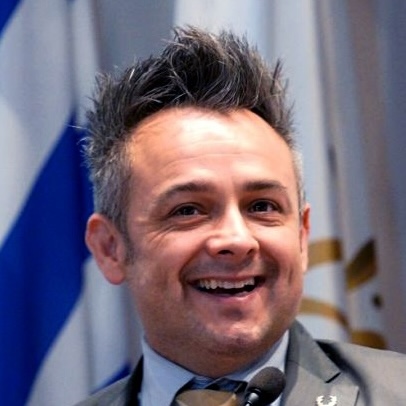
Andy Miah
Chair of science communication and future media, University of Salford, UKProfessor Andy Miah, PhD is chair of science communication and future media at the University of Salford, where he is also the academic champion for the Ethics of Artificial Intelligence. Professor Miah also provides research leadership for the Innovate UK funded MediaCity Immersive Technologies Innovation Hub. His research investigates the ethical, legal, social and cultural questions concerning technological change and his publications draw on ideas from science, technology, art, and media culture. Author of ten books and more than 200 academic articles, Professor Miah has been at the forefront of debates about how humanity is moving beyond conventional evolutionary processes and towards evolution by technology. His research on the Olympic Games has involved advising cities for over 25 years on their regeneration goals and how to integrate healthy living into mega-events. He holds advisory roles for the UK Government’s Department of Culture, Media and Sport, the World Technology Games, the Global Esports Federation, and the British Esports Federation. His recent works have focused on artificial intelligence, esports, digital health, and the metaverse. He regularly interviews for a range of major media companies and has appeared in more than 300 outlets, including Audible, Fortune, Vogue, BBC, and The Conversation.14.00MediaCity: Designing tomorrow’s creative and healthy communities
Stephen Young
Chief executive, Salford City Council, UKStephen Young is the Chief Executive of Salford City Council following 30 years’ experience in local government across the UK including in Lancashire, the Liverpool City Region, Cheshire and Greater Manchester. Most recently Stephen spent almost four years as the Chief Executive of Halton Borough Council during which time Stephen delivered on a range of large-scale programmes focusing on organisational transformation and change as well as regeneration and economic growth across the Liverpool City Region. Prior to joining Halton Stephen worked as the Executive Director of Growth, Environment, Transport and Community Services at Lancashire County Council developing a multi-billion-pound economic development pipeline for the county including innovative projects such as: • The new national Cyber Centre • The Advance Manufacturing Research Centre • Eden of the North and • A new second home for Lancashire County Cricket Club. Stephen also sits on various outside boards and committees covering a range of different topics ranging from business growth to the education sector. Stephen is a regular speaker and contributor to the trade press on a range of local government issues both in the UK and abroad and is married with a young family and in his spare time he enjoys running and watching his beloved Burnley FC.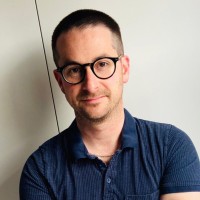
Nigel Moore
Production director, Fuzzy Duck, UK
Kate Hadfield
Studio director, Carbon Creative, UK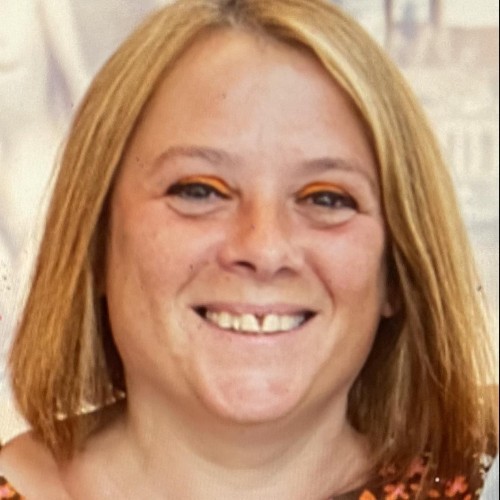
Sam Ingleson
Associate dean, University of Salford, UK
Jonathan Harley
Head of production development, Dock10, UKMediaCity: Designing tomorrow’s creative and healthy communities
Abstract Copy
MediaCity is one of the UK’s most successful urban regeneration projects and the north west’s leading creative cluster. As a dynamic place that blends tech, culture and future media alongside its diverse community, it isn’t just a hub for creativity—it’s shaping the future of health, well-being, and sustainable living.
Set to double in size, hear how MediaCity continues to actively integrate culture, innovation and health and well-being into its urban design and how the creative industries are a driver for strengthening community engagement.15.30 - 16.00Video+Poster Gallery, coffee and networking16.00 - 17.00Session 21- Connected futures: Regenerating Trafford and Salford together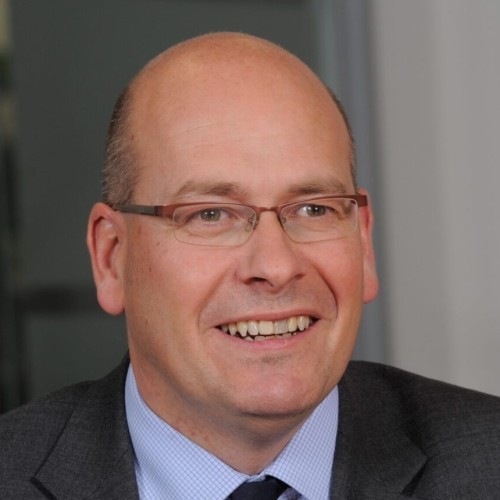
Simon Bedford
Principal, Bedford Advisory, UK16.00Connected futures: Regenerating Trafford and Salford together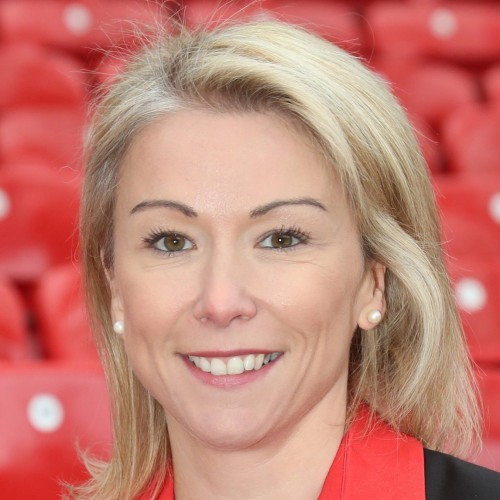
Collette Roche
Chief operating officer, Manchester United FC, UK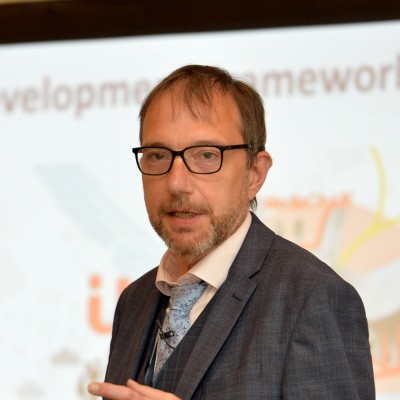
Richard Roe
Corporate director place, Trafford Metropolitan Borough Council, UK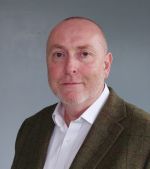
John Searle
Strategic director of place, Salford City Council, UK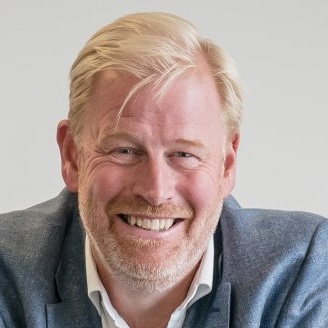
Stephen Wild
Managing director, Peel Land, UKConnected futures: Regenerating Trafford and Salford together
Abstract Copy
This session explores how ambitious development plans centred around Old Trafford Regeneration are unlocking wider opportunities across Trafford and Salford, driving investment, infrastructure, and inclusive growth. With collaboration between local authorities, major institutions, and private partners, discover how these connected futures are being shaped to benefit communities and the economy across Greater Manchester.End of Investment, regeneration and equity stream -
Homes and neighbourhoods
Compass Room
08.45 - 10.15Session 23- Beyond bricks and mortar: Housing injustice and systemic solutions in the private rented sector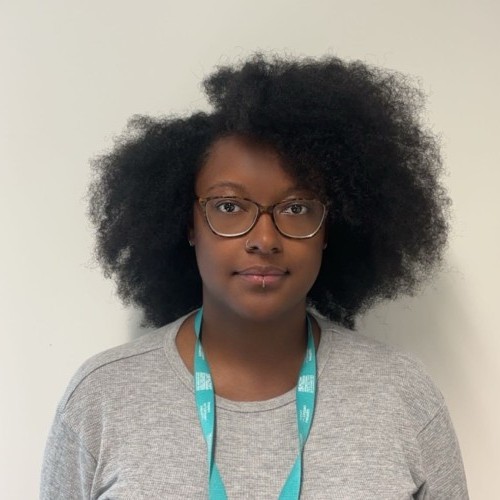
Naz Biggs
Portfolio manager, Impact on Urban Health, UKNaz Biggs is a portfolio manager at Impact on Urban Health, where she leads the Reshaping the Financial Pressures strand within the Financial Foundations for Adult Health programme. Her work focuses on how systemic financial pressures – particularly high housing costs in the private rented sector – affect the health and wellbeing of communities in Lambeth and Southwark. Naz takes a systems-led, equity-focused approach to tackling these issues, working in partnership with funded organisations to drive structural change. She is also a trustee at London Funders and sits on the Grants and Programmes Committee at Essex Community Foundation.08.45Beyond bricks and mortar: Housing injustice and systemic solutions in the private rented sector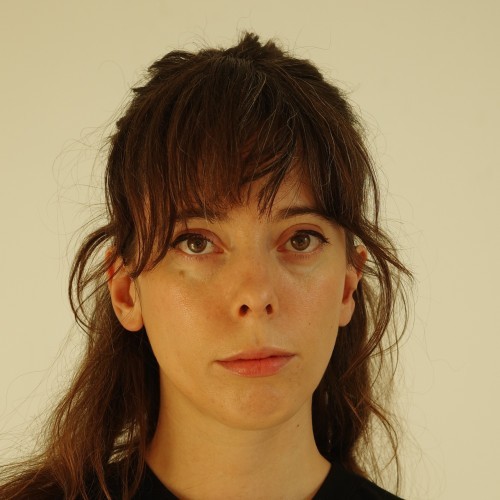
Joey Carr
Project officer, Safer Renting Initiative, Cambridge House, UKJoey Carr is a project officer at the Safer Renting programme at Cambridge House charity, an advice and advocacy service assisting renters in the private rented sector. Joey is the caseworker for an Impact on Urban Health funded project which looks at improving access to housing advice for marginalised and minoritised renters across Lambeth and Southwark who are facing issues such as harassment, illegal eviction, disrepair, eviction and rent increases.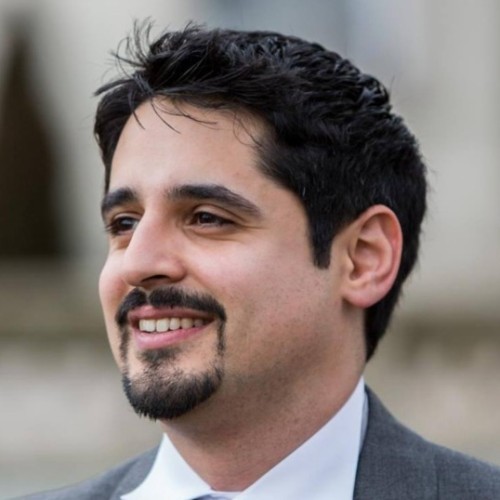
Al McClenahan
Managing director, Justice For Tenants, UKAl McClenahan is the Managing Director of Justice For Tenants (JFT), a non-profit organisation that supports over a third of the local authorities in effectively regulating housing standards in England via Civil Financial Penalties and Rent Repayment Orders against criminal landlords and agents. As part of JFT's Policy Team, he helped author the Model Civil Penalty Policy, the Model Private Sector Housing Enforcement Policy, and the Model Property Licence Conditions - key policies to bring standardisation to enforcement against poor housing standards nationally. Al oversees the services that JFT provides to over a third of the local authorities in England.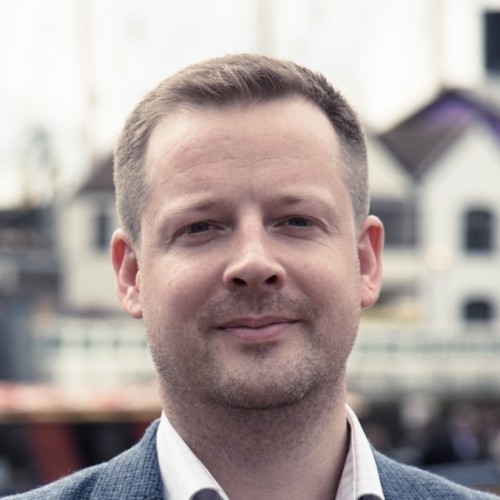
Ben Yarrow
CEO and founder, Marks Out Of Tenancy , UKBen Yarrow is the CEO and founder of Marks Out Of Tenancy (MOOT), an innovative social enterprise dedicated to improving conditions within the private rented sector across the UK. Under Ben’s leadership, MOOT has become a vital platform for tenants to transparently review landlords, letting agents, properties, and neighbourhoods, significantly empowering renters through shared experiences and collective advocacy. Complementing this work, Ben spearheaded the development of OccupID, an advanced data service identifying housing issues such as overcrowding, unlicensed HMOs, and empty homes, now actively utilised by local authorities and housing organisations to enhance community health and housing standards. Passionate about tackling systemic housing injustice, Ben champions tenant rights, urban health, and innovative solutions to deeply-rooted social challenges. His expertise is regularly sought after in discussions on housing policy reform, urban planning, and sustainable community development, reflecting his commitment to building healthier, more equitable urban environments.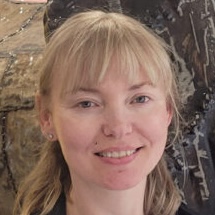
Sandra Axell
Housing project manager, Kineara, UKEducational Psychology background with over 15 years experience of working with vulnerable people and 5 years working in housing and managing housing projects for Kineara. Our current projects are supporting tenants in different tenures to prevent homelessness. We offer holistic support to look at the clients situation to identify needs providing advice and making referrals to relevant community and health services. We support clients to manage their housing needs by addressing issues around finances, health and behaviour. This is to help them sustain their tenancy and prevent evictions. I am an experienced professional with a strong foundation in Psychology and over 15 years of expertise in working with vulnerable individuals. For the past 5 years, I have specialised in housing and project management, delivering impactful support through my role at Kineara. My work focuses on preventing homelessness by empowering tenants across various housing tenures to sustain their tenancies and achieve stability. At Kineara, we take a holistic approach to supporting clients, carefully evaluating their unique circumstances to identify needs and provide tailored solutions. The projects I manage are offering practical advice, coordinating referrals to appropriate community and health services, and addressing the underlying challenges that may jeopardise their housing situation. I am passionate about helping people access housing and have awareness of their rights and responsibilities to be able to make informed decisions about their housing.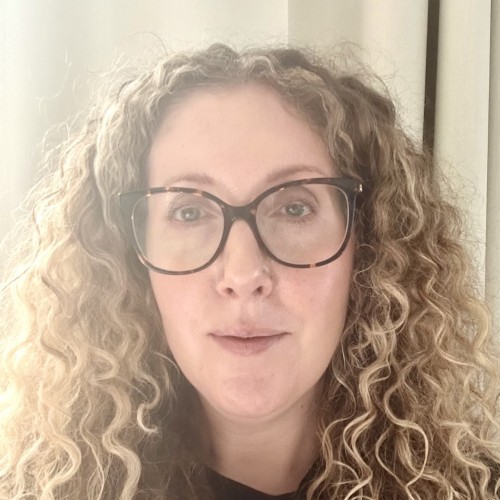
Stacey Edgar
Executive director, Southwark Law Centre, UKStacey is the Executive Director of Southwark Law Centre, one of the largest and most influential law centres in the UK. The Centre provides vital legal support to over 2,000 people each year, specialising in areas such as immigration, housing, employment, welfare rights, planning, and education. Its core mission is to promote access to justice, especially for individuals facing significant barriers to legal support, including those at risk of homelessness, discrimination, and destitution. In addition to her leadership role at Southwark Law Centre, Stacey serves as a Trustee for The Unity Project, a charity dedicated to helping destitute migrants gain access to public funds. Before taking on her current role, Stacey was the Deputy CEO at South West London Law Centres, where she focused on HR, project management, and the operational aspects of the charity. Prior to her transition into the law centres movement, Stacey spent ten years in legal practice as a fee earner and practice manager at a niche law firm specialising in cross-border succession and property matters in the UK and Spain. Stacey is deeply passionate about housing and its central role in fostering healthy, thriving communities. She believes that safe and secure homes are the foundation for individuals to live well and actively contribute to society. Throughout her career, Stacey has spearheaded projects aimed at improving housing conditions in London, including efforts to address disrepair in social housing and enhance the quality of temporary accommodation.Beyond bricks and mortar: Housing injustice and systemic solutions in the private rented sector
Abstract Copy
Background: The private rented sector (PRS) is often overlooked in urban health design, yet it is where some of the most severe and preventable health inequalities are rooted. Poor housing conditions, insecurity, unaffordable rents, and the erosion of tenant power generate lasting physical and mental health harms, disproportionately affecting Black and minoritised communities.
Purpose: This session seeks to expose the hidden health crisis within the PRS and invite participants to co-create transformative, systemic solutions that place tenant health, justice, and dignity at the centre of urban health efforts.
Methods: This high-energy, participatory session will open with short, sharp provocations from a range of organisations working on housing justice:
• Kineara: London-based holistic support for families and individuals facing housing insecurity, linking housing, education, and mental health services.
• Cambridge House Safer Renting: London-based support for private renters facing illegal eviction and poor housing conditions, while also advocating for better enforcement of housing law.
• Southwark Law Centre: South London-focused legal advice centre offering specialist support to people facing housing injustice, immigration issues, and discrimination.
• Marks Out Of Tenancy: National platform that allows tenants to rate and review landlords, letting agents, and rental properties, promoting transparency and tenant voice in the rental sector.
• Justice for Tenants: National tenant-led advocacy group working to combat rogue landlords, support renters’ rights, and improve enforcement through data, training, and campaigning.
We will explore how failures in enforcement, legal protection, housing supply, tenant support, and accountability undermine health and wellbeing. Participants will then work collaboratively through systems mapping exercises to trace root causes and power dynamics, followed by a co-design sprint to prototype bold new interventions.
Results: We anticipate that the session will result in a shared understanding of how legal, policy, and housing system failures undermine health; a set of co-created intervention ideas; and strengthened commitments to PRS reform. Together, we will produce a collective call to action to reshape the PRS into a driver of thriving, healthy, and equitable urban communities
Implications: Reshaping the private rented sector demands a systemic shift, not piecemeal interventions. By surfacing overlooked housing-health links and prototyping community-informed solutions, this session will support the transition towards healthier, fairer cities where secure, dignified housing is recognised as a foundation of public health.Learning Objectives
- Understand how systemic issues in the Private Rented Sector contribute to health inequalities, particularly among minoritised groups.
- Identify leverage points for intervention through systems mapping and participatory design.
- Co-create a call to action for bold, health-centred reforms in the Private Rented Sector.
10.15 - 10.45Video+Poster Gallery, workshop, lunch and networking10.45 - 12.30Session 24- Housing standards and regulation
Sunand Prasad OBE
Programme director, European Healthcare Design; Principal, Perkins&Will, UKSunand Prasad is a principal at Perkins&Will. While designing across several sectors, he has been consistently engaged in healthcare and sustainability for four decades. At the core of his architectural practice, alongside interdisciplinary collaboration, Sunand holds a passionate belief that expertise and aesthetic judgement are most effective in creating truly successful environments when they are catalysed by the everyday experience of people. Sunand has been active in the wider built environment industry, particularly championing low-carbon, regenerative design, and until recently, as chair of the UK Green Building Council. He was President of the Royal Institute of British Architects (RIBA) from 2007 to 2009, campaigning for action on climate change. He was founding member of the UK Government’s Commission for Architecture and the Built Environment; a London Mayor’s design advocate; a trustee of the Centre for Cities; and Chair of the trustees of Article 25, the humanitarian architecture charity. He currently chairs the Editorial Board of the Journal of Architecture and the External Advisory Board of TRUUD, a major research project on the fundamental links between health and urban development. He has written widely on architecture, sustainability and healthcare design, such as the book 'Changing Hospital Architecture'.10.45Quality versus quantity? Investigating the health impacts of deregulation in housing delivery in England
Rosalie Callway PhD
Projects and policy manager, Town and Country Planning Association (TCPA), UKRosalie is policy and project manager at the TCPA, focusing on the Campaign for Healthy Homes and healthy places, including research with UCL on the health impacts of permitted development housing. She is a visiting research associate with the University of Bristol on 'Tackling the Root causes Upstream of Unhealthy Urban Development' (TRUUD). Rosalie has a background in sustainability and health standards, masterplanning and green infrastructure. She is a full member of CIEEM, affiliate RTPI member, a 'Building with Nature' assessor and 'BREEAM Communities' assessor.Julia Thrift, Director, Healthier Placemaking, Town and Country Planning Association, United Kingdom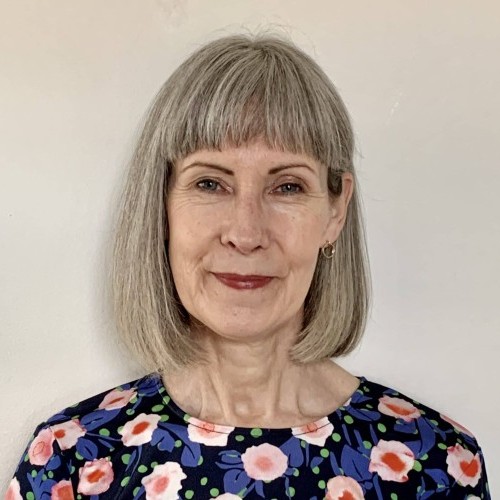
Julia Thrift
Director, Healthier Placemaking, Town and Country Planning Association, United KingdomJulia Thrift joined the TCPA in May 2013 and manages projects concerning planning and public health, green infrastructure, and planning and social justice. Throughout her career she has been interested in the links between the design of the built environment and the quality of people’s lives. She worked for CABE, the Commission for Architecture and the Built Environment, where she was the founding director of CABE Space, the government’s adviser on policy and practice regarding England’s urban parks and public spaces. She began her career as a journalist, writing about design, architecture and art. She has a degree in philosophy from University College London.Quality versus quantity? Investigating the health impacts of deregulation in housing delivery in England
Abstract Copy
A decade ago, responding to the housing shortage, the Conservative government, following a trial in 2013, introduced new rules to make it possible to convert former office blocks and industrial buildings into housing without having to apply for full planning permission. Such conversions could be done through ‘permitted development’ (PD) rights. Described as ‘cutting red tape’ to increase housing delivery, this was welcomed by some. Others raised concerns however that PD would result in poorly located and low-quality homes, unsuitable for healthy habitation. They argued the new rules bypassed necessary checks designed to manage the quality of housing and protect people.
This paper presents new findings from a three-year study (2023-2026), led by UCL’s Bartlett School of Planning, with the TCPA as research partners and funded by the NIHR. The research examines how flats located in buildings converted through PD (i.e., without full planning permission) can affect resident health and wellbeing. The study comprises five work packages. Work Package 1 (WP1) establishes a list of PD housing in England, profiling demographic and health data about PD residents, comparing it with residents of similar socio-economic level elsewhere. WP2 explores the lived experiences of PD residents through resident interviews and surveys. WP3 monitored the internal conditions of volunteers’ PD homes, including thermal levels and indoor air quality. A cost-benefit analysis of the housing-related health risks under PD was applied by WP4. And WP5 has examined the efficacy of current policy and regulatory levers to shape the quality of new PD homes to support resident health and wellbeing, through a grey literature review, and local and national stakeholder interviews.
This paper/presentation draws particularly on qualitative findings from WP2 and WP5.
While there are examples of reasonable quality housing produced through PD, especially in areas of higher real estate value, the PD regime is undermining the work of local authorities to secure healthier places. Some residents reported sub-standard housing conditions, raising fire safety and wider environmental health concerns. Local authorities and regulators also reported challenges in tracking and enforcing policy and regulations to ensure PDR housing promote, rather than undermine, resident health and wellbeing.
The research findings build on evidence about the quality of homes produced through this regime, and offer recommendations to inform the current political narrative that pits planning and regulatory requirements against the pressing need for more homes.Learning Objectives
- Determine if deregulating urban planning supports or hinders the creation of healthier places
- Examine and understand PD regulations in England and where they overlap with building and planning regulations
- Understand how PD influences housing quality and the subsequent health impacts of this
10.55Trapped in transition: Lived health experiences of temporary or emergency housing under England’s permitted development rights
Mina Sufineyestani
Postdoctoral research fellow, University College London, UKDr. Mina Sufineyestani is a social and urban planner with a PhD in Urban Studies from Heriot-Watt University. She has a strong interdisciplinary research background that spans planning, architecture, sociology, public health, housing design and policy, and environmental psychology. Mina specialises in exploring people-environment interactions in both built and natural settings, using mixed-methods approaches. Her work focuses on the health and wellbeing impacts of home, housing and neighbourhood quality, adaptive reuse, Permitted Development Rights, and planning regulation. She is currently a Research Fellow at University College London, contributing to a national NIHR-funded study on the health impacts of office-to-residential conversions. With professional experience across local government, industry, and academia in the UK, Italy, and Iran, she combines international insight with a commitment to policy-relevant, inclusive research. Mina’s work promotes participatory approaches to planning and design for healthier, more equitable urban environments.Trapped in transition: Lived health experiences of temporary or emergency housing under England’s permitted development rights
Abstract Copy
In response to the England’s housing shortage, permitted development rights (PDR) have enabled the rapid conversion of commercial buildings – primarily offices – into residential units, often bypassing local planning scrutiny or adherence to minimum space and quality standards. While positioned as a cost-effective solution, this study reveals how such schemes, especially when used for temporary/emergency housing, can reinforce spatial injustices and exacerbate health inequalities.
The research draws on six focus group discussions conducted between July 2024 and February 2025, involving 36 residents living in PDR housing across Bristol, Croydon, Harrow, and Harlow. Participants – primarily families and individuals in temporary accommodation – were recruited through grassroots organisations. The sessions were audio-recorded, transcribed, and analysed using NVivo 14. Data were collected through guided group discussions that explored lived experiences, health impacts, and interactions with the housing system.
Through content and thematic analysis, the findings reveal that deregulated building conversions pose considerable risks to health and wellbeing. Across all sites, residents reported overcrowding, poor ventilation/insulation, and other physically unsafe living conditions. These environmental stressors were compounded by institutional neglect – manifested in persistent disrepair, lack of maintenance, limited access to complaint mechanisms, and inadequate regulatory oversight. For conversions on industrial parks, spatial marginalisation further isolated residents from support networks, essential services, and social infrastructure.
Together, these conditions created what participants repeatedly described as “unbearable” environments, heightening psychological distress, physical illness, and a pervasive sense of disempowerment. Participants also spoke of feeling “trapped” and stripped of basic autonomy and privacy. Children were especially affected – unable to play, study, or develop safely – raising concerns about long-term developmental harm.
Rather than functioning as a bridge to permanent housing, PDR-based temporary accommodation often acts as a liminal, stigmatising space, characterised by precarity, control and exclusion. Residents described being treated as “numbers” in environments that undermined care, dignity, stability and wellbeing.
This study highlights the urgent need to rethink the use of PDR for temporary housing provision. By centring on residents’ lived experiences, it reveals how deregulated housing intersects with public health and social justice. The findings call for the implementation of mandatory space and quality standards in all housing, regardless of tenure or planning status. The paper contributes to broader discussions on health equity, urban regulation, and the ethics of housing delivery in crisis conditions. Embedding accountability, dignity, and health and safety-based principles in planning policy is essential for ensuring that transitional housing supports rather than harms residents’ wellbeing.Learning Objectives
- 1. Identify key health and wellbeing challenges in temporary/emergency housing based in converted buildings using evidence from focus groups in four English local authorities.
- 2. Understand how planning deregulation creates health risks, particularly considering children and families.
- 3. Explore implications for planning, design, and policy to ensure that transitional housing supports, rather than undermines, public health and dignity.
11.05Design codes for health and wellbeing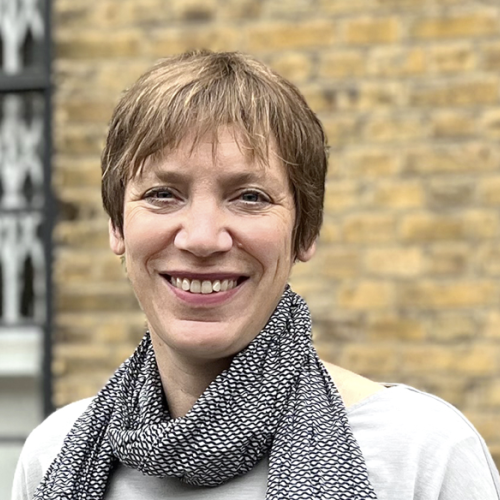
Katja Stille
Director, Tibbalds, UKKatja Stille is a director of Tibbalds Planning and Urban Design, and former chair of the Urban Design Group. As an experienced urban designer with a background in architecture and engineering, she works with private and public clients and provides high-level urban design advice to government and placemaking bodies, including on new towns, medium-density development, and how we can create healthier communities. Working collaboratively across professional boundaries, she seeks to unlock the issues that prevent us from delivering good design. She oversees masterplans and development frameworks from concept through to delivery. Katja’s objective is to incorporate principles of sustainability, health and wellbeing into her broad spectrum of work, including town centre strategies, masterplanning new communities, regeneration, and design policy.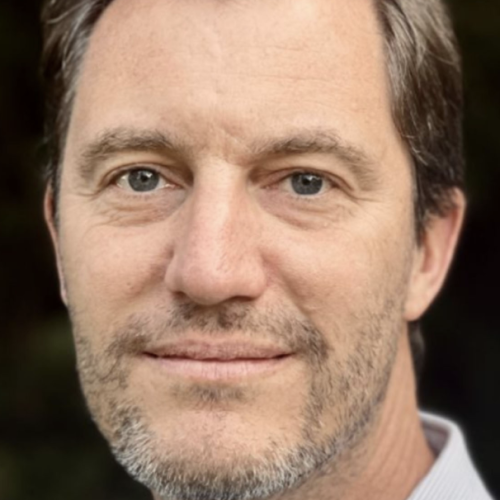
Matthew Morgan
Co-founder, Director, Quality of Life Foundation, United KingdomMatthew Morgan is the Director and co-Founder of the Quality of Life Foundation. He is responsible for setting strategy with the Board of Trustees, overseeing the Foundation’s commercial services and delivering lasting impact with the Quality of Life team, itself focused on highlighting the impact of the built environment on people’s lived experience. With over 20 years’ experience in writing and communications, Matthew has previously worked with architects, engineers and developers; in book and magazine publishing; and with charities and start-ups. He is a participant on a number of advisory boards and chairs a multi-stakeholder group that advises on community engagement as part of the UKRI-funded CCQOL (Community Consultation for Quality of Life) project. A published author and mental health advocate, Matthew is particularly interested in how communities are formed and their effects on people’s physical, social and psychological wellbeing, an interest he developed while growing up in an intentional community in Kent.Design codes for health and wellbeing
Abstract Copy
With an ever-increasing need to build new homes, it is critical that we maximise the health benefits of these new neighbourhoods. Design codes are an important planning tool in England and several European countries. In England, they have relatively recently become an essential tool to bridge the gap between strategic decisions and detailed implementation. As such, they can address existing health disparities and prevent poor health in future communities.
The guidance, Design Codes for Health and Wellbeing, developed and published in partnership with Quality of Life Foundation, TCPA and TRUUD, provides advice for integrating healthy placemaking principles into design codes, aiming to shape homes and neighbourhoods that promote long-term community health.
Design codes are sets of illustrated design requirements that guide the physical development of areas. They help developers, communities and officers understand what is acceptable, leading to faster planning decisions and better-designed places. Health-focused design codes can reduce health inequalities by embedding local health priorities into planning.
Key themes illustrated with examples within the Guide include:
• Movement: Promote active travel (walking, cycling) to improve physical and mental health, reduce CO2 emissions, and enhance air quality.
• Context and Identity: Develop characterful places that integrate with local heritage and landscape, fostering a sense of community and belonging.
• Nature: Ensure inclusive green spaces are accessible, promoting physical activity, mental wellbeing, and climate adaptation.
• Built form: Design compact, well-connected neighbourhoods that support social cohesion and reduce reliance on cars.
• Public space: Create vibrant, inclusive public spaces that encourage social interaction and physical activity.
• Use: Mix land uses to support healthy behaviours, such as access to healthy food and active travel.
• Homes and buildings: Provide energy-efficient, adaptable homes that support physical and mental health.
• Lifespan and resources: Ensure buildings and places are sustainable, adaptable, and well-maintained to foster long-term community engagement.
Each theme is illustrated by a practical example. This guide provides a comprehensive framework for integrating health into the planning and design of the built environment. It has been written for a large audience, including public health officers, communities, officers and councillors.
This talk will expand on the published guide and provide the context of design codes within the English planning system, as well as provide the latest learning on creating robust codes. By focusing on health and wellbeing, design codes can create healthier, more equitable communities.Learning Objectives
- For a wide audience including public health officers, learning how to get involved in Design Codes to shape the future neighbourhoods
- Share latest knowledge, lessons learned from case studies within the England
- Illustrate with practical examples how design codes can lead to tangible outcomes that improve health and well being
11.25Healthy and inclusive places: Key findings from the collaborative process of developing future design guidance for Homes England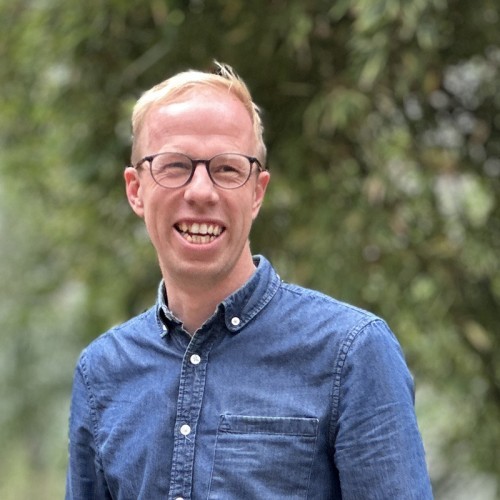
Adam Park
Architect Associate, BDP, United KingdomAdam is an Architect and researcher with BDP, having first joined as a Part II Architectural Assistant in 2008 and qualifying in 2010. Adam has experience of all aspects of project design and delivery; from initial concept development and masterplanning through project delivery in the residential sector. Adam returned to BDP following the completion of his PhD and Post-Doc research at the University of Sheffield, and has particular expertise in the design of environments that support older people’s health and well-being. Adam has provided expert advice to Sheffield City Council to develop their Older People’s Independent Living Strategy, and his research has been featured in a number of publications including the 2018 RIBA book ‘Age-Friendly Housing’. He regularly presents on the theme of age-friendly housing including talks given to New London Architecture and the Royal Society of Arts. He continues to tutor on the University of Sheffield School of Architecture and Landscape undergraduate programme.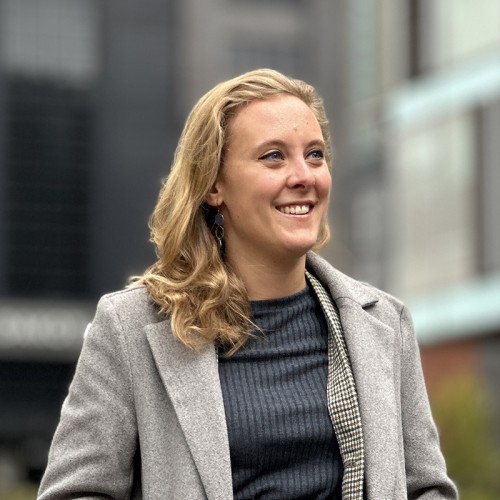
Helen Berg
Senior urban designer, BDP, UKHelen is an architect and urban designer who started at BDP in January 2023, following five years at URBED. She has extensive experience working with Local Authorities, developers and community groups in challenging contexts across the UK. Helen has project delivery experience across all stages of the RIBA Plan of Work, including feasibility studies, town centre masterplans and blueprints, residential and communal architecture and retrofit projects, research and design guidance, and post occupancy evaluation. Helen is a skilled facilitator of community engagement and has co-ordinated engagement programmes on a range of complex projects including Stockton-on-Tees Blueprint, the Liverpool Waterfront Plan, and the Diamond Place ‘Design For Change’ engagement process in Oxford. She regularly delivers workshops on Participation in Architecture and Urban Design, and engages in student design reviews and occasional tutoring.Healthy and inclusive places: Key findings from the collaborative process of developing future design guidance for Homes England
Abstract Copy
Those involved in the planning and design of new neighbourhoods are typically trying to achieve a common goal: creating places that are inclusive and sustainable; support resilient communities; and promote residents’ health and wellbeing. However, significant challenges remain in delivering these objectives, particularly when balancing the needs and aspirations of a diverse range of users alongside a range of other regulatory and viability constraints.
This presentation will share key insights from the process of developing Healthy and Inclusive Places – a new suite of design guidance commissioned by Homes England to support more equitable and health-promoting neighbourhoods.
A wide-ranging, cross-sector group of contributors were brought together in a pair of collaborative workshops to share their expert insight and lived experience. This included healthy design consultants, policymakers, and representatives from equality and diversity groups. The outputs of the first workshop were an extensive set of ideas, including design principles; common barriers and failings; practical solutions; and exemplar neighbourhoods.
A second workshop brought back participants to discuss the outputs of the first workshop, alongside representatives from local authorities, developers and housing providers to discuss the viability and challenges of the draft guidance.
Three central findings from the workshops will be explored:
1. Limitations of existing guidance: Having carried out an extensive review, we found a need for more practical, joined-up guidance to bridge between health, design quality, accessibility, sustainability, and project delivery processes – to support coherent decision-making at key stages.
2. Balancing competing demands: Conflicts can arise between different user requirements, such as balancing the needs of visually impaired people with play-friendly shared surfaces or reconciling inclusive access with car parking standards. This process highlighted the importance of acknowledging these conflicts, tailoring solutions to the needs of specific local demands, and challenging existing assumptions.
3. The value of collaboration: Potentially the most powerful aspect of the process was the value of conversations between people with lived experience and expertise on issues relating to gender, age, cultural background, disability, neurodiversity, and sexuality. Their insights reshaped the process in meaningful ways, highlighting both physical and organisational dimensions of inclusion, systemic barriers to participation, and reinforcing the importance of co-production throughout the design and delivery process.
The presentation will provide attendees with an overview of the workshop process, key themes, and emerging design principles, and reflect on how institutions like Homes England can steward healthier, more inclusive environments through collaborative and evidence-informed guidance.Learning Objectives
- Understand and report back on the process Homes England are undertaking to develop inclusive design guidance.
- Understand the value of engaging with a diverse range of collaborators in the production of technical guidance
- Provide examples of emerging design principles and resolution of conflict in inclusive design
11.45The policy and practice of designing healthy, equitable apartment buildings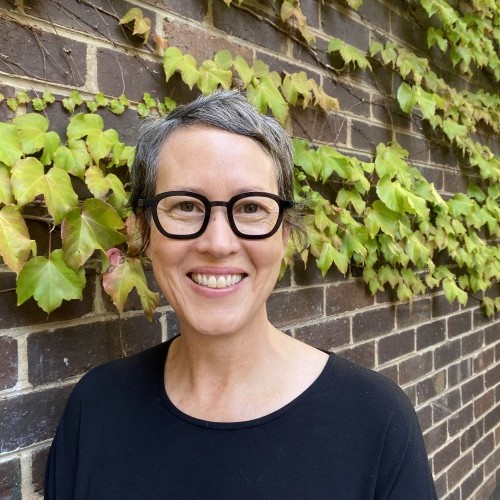
Sarah Foster
Associate professor, RMIT University, AustraliaSarah is an associate professor and Australian Research Council future fellow with the Centre for Urban Research at RMIT University in Melbourne, where she is the associate director of the ‘Planning and Transport for Healthy Cities’ theme. She leads a programme of applied research designed to influence policy and practice to create healthier built environments. This includes ‘The High Life Study’, which examines the interplay between apartment design policy standards, the design of contemporary apartment buildings, and residents’ health and wellbeing. She is a member of the West Australian State Design Review Panel and senior assistant editor of the journal ‘Environment and Behavior’.The policy and practice of designing healthy, equitable apartment buildings
Abstract Copy
Thesis statement: Australian State governments have introduced apartment design policies to improve design quality and create apartments conducive to good health. However, there is little policy-specific health evidence to shape the content of design guidelines. The HIGH LIFE Study was established to evaluate the implementation of design policy requirements and assess their impact on residents’ wellbeing.
Methods: Apartment complexes (built 2006-2016) were sampled from Sydney, Perth and Melbourne. In Sydney, buildings were developed under a comprehensive operational policy (i.e., State Environment Planning Policy 65, legislated in 2002), whereas buildings in Perth and Melbourne were developed under weaker guidance (i.e., they pre-dated the legislation of Melbourne’s Better Apartment Design Standards (BADS) in 2017, and Perth’s R-Codes Vol2 in 2019). Building plans were used to measure the implementation of 96 policy-specific design requirements that plausibly relate to health for the apartments (n=10,533) and buildings (n=172). Residents (n=1326) completed a survey on their apartment design and health. Building-level scores benchmarked the implementation of requirements, which were compared by city and area-level disadvantage. Multi-level models examined associations between requirements and perceptions of design and wellbeing; and cluster analysis identified the combination of requirements associated with wellbeing.
Findings: Sydney buildings implemented more requirements than Perth and Melbourne buildings (i.e., 60 per cent versus 55 per cent and 43 per cent, respectively). There was some socioeconomic patterning in Perth, with buildings in advantaged areas implementing more requirements. Higher levels of policy implementation were associated with better perceptions of apartment design among residents, which in turn predicted wellbeing. Cluster analysis identified two building types: ‘High’ and ‘Low’ policy performance buildings. High-performing buildings were characterised by the greater implementation of 51 requirements, and residents in these buildings had higher wellbeing compared with those in low performing buildings (p=0.001). Notably, 86 per cent of the Sydney buildings were classified as high-performing, compared with 53 per cent of Perth buildings and just 9 per cent of Melbourne buildings.
Conclusion: The findings underscore the importance of design regulation in delivering quality contemporary apartment buildings that promote residents’ wellbeing. The new design policies in Perth and Melbourne should improve apartment design in these cities. However, Melbourne’s BADS contains fewer requirements, raising questions about whether it can deliver the combination of features associated with good mental wellbeing. Results equip policymakers with evidence to advocate for the inclusion of new requirements or protect against the removal of design requirements in future policy reviews.12.05Panel discussion12.30 - 14.00Video+Poster Gallery, workshop, lunch and networking14.00 - 15.30Session 25- Inclusive neighbourhood parks and resorts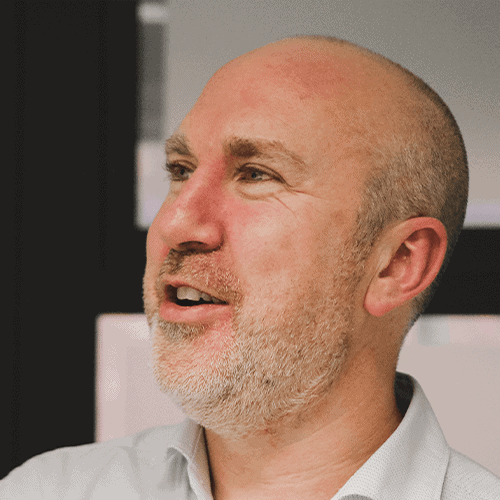
Max Farrell
Founder, LDN Collective, UKMax is Founder & CEO of the LDN Collective, a network of built environment experts and creatives fighting to improve people’s lives and the planet’s prospects. Members are experts in social impact, zero carbon and modern methods of construction as well as architecture, engineering, graphic design and film-making. They are a dynamic and collaborative ‘one stop shop’ for projects anywhere in the world. Current projects include masterplans for garden communities in Oxfordshire, Peterborough and Solihull; new health and wellbeing resorts in London and the South East; detailed planning applications for Clarion, the UK’s largest housing association and #ParkPower – a crowdsourced vision for the future of London’s green spaces. Max’s expertise lies in urban planning & strategic communications. He was a Partner at Farrells for 10 years, the internationally renowned architects with offices in London, Hong Kong and Shanghai, before leaving to set up the LDN Collective. In 2021, Max was appointed Chair of Cultural Co-Location for Creative Estuary. With £4.3m funding from DCMS, as part of the Thames Estuary Production Corridor, the ambition is to transform 60 miles of the Thames Estuary into the most exciting cultural hub in the world. Max was Project Lead and Author of the Farrell Review of Architecture and the Built Environment, commissioned by the UK Government, which made 60 recommendations spanning education, outreach & skills; design quality; cultural heritage; economic benefits & architecture policy, many of which have been implemented. He is an adviser to London National Park City, Urban Design London, the Place Alliance, the Urban Room Network, the National Arts and Place Consortium, Community Consultation for Quality of Life and Wild Streets.14.00Stockton urban park, waterfront and healthy streets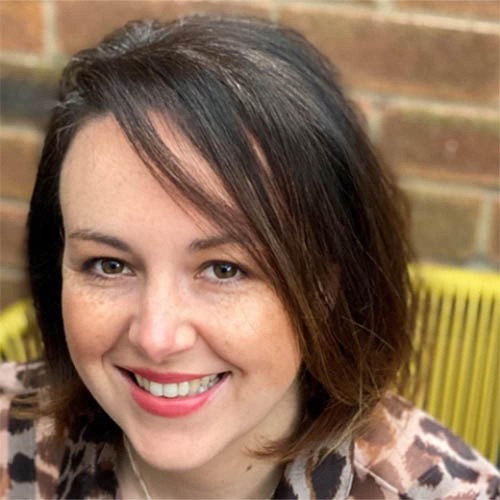
Nichola Speight
Associate landscape architect, Ryder Architecture, United KingdomNichola is an associate landscape architect with 18 years' experience. Nichola has a portfolio of UK and international projects, from the detailed design of public spaces to the spatial planning of cities. Her project experience comprises a wide variety of sectors, including masterplanning; public realm design; education; sports and leisure; science and research; transport; and healthcare. She has a passion for creating spaces with a strong sense of place that inspire people, have true purpose, and are user centric.
Andrew Fong
Urban Designer, Ryder Architecture, United KingdomAndrew joined Ryder as an urban design assistant in 2021 after graduating from Newcastle University with a master’s degree in urban design where he achieved the William Ault prize as the highest achieving student. Andrew is passionate about masterplanning, placemaking for health and wellbeing and designing places for all. Prior to Ryder, Andrew completed a variety of interior design projects, ranging from residential, hospitality, and conversion of listed buildings.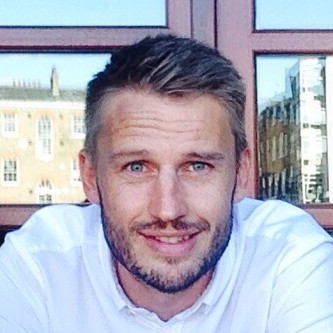
Iain Robinson
Assistant Director, Stockton-on-Tees Borough Council, United KingdomAs Assistant Director within the Regeneration and Inclusive Growth Directorate, Iain leads a multi-disciplinary team with the remit to drive forward the Council’s Borough wide regeneration ambitions with an initial focus on transforming their six town centres through a £200m investment programme over the next few years. Iain leads on town centre redevelopment across the Borough’s town centres, covering large scale regeneration and redevelopment sites, infrastructure schemes, site acquisitions and business engagement & development. Working at Stockton straight from University in 2002, Iain’s early career focused on several brownfield regeneration schemes along the River Tees corridor including the redevelopment of Tees White Water Course, Stockton Middlesbrough Initiative and North Shore redevelopment before going on to manage the Strategic Development Team within the Council, successfully drafting the Borough’s Local Plan and taking it through examination in public in 2018 as well as being the Council’s lead officer on the development and delivery of the 128 bed Hampton by Hilton Hotel scheme.Stockton urban park, waterfront and healthy streets
Abstract Copy
While a park isn’t a new concept, the role of the park and how it serves its communities and businesses have changed. Stockton’s new urban park is designed to bring life back to the high street, promoting the local economy and creating an environment that encourages social development.
In 2020, Stockton was struggling, with a significant percentage of empty and failing shops creating a depressing environment that was unattractive for private investment. Stockton-on-Tees Borough Council (SBC) made the brave decision to purchase the failing 1960s Castlegate shopping centre and radically change the high street. The transformation of Stockton town centre is reinventing how we look at high streets. Retail is being replaced with an urban park providing a destination for events, helping to increase footfall to local businesses, cafes and restaurants. The design of the public park is multifunctional in response to the needs of the town, its businesses, the community, nature, and our changing climate.
The new park will be a place for entertainment, for play, for fitness and leisure, for cafes and restaurants to spill into where people can connect with nature, and for new community groups to be created to help address local loneliness. Stockton has an established reputation for events, and the park will provide a setting for these all year round, attracting people back into the town centre. We have also designed an NHS community diagnostics centre in the park’s setting that brings health to the high street and supports the town centre economy.
The green infrastructure is designed to act as a sponge attenuating rainfall in a series of gardens. The planting has been carefully selected to thrive in this environment, cope with drought, and provide food and habitat for insects and wildlife. The project has achieved 78-per-cent biodiversity net gain.
Taking a similar inclusive, healthy places approach to communities surrounding the town centre, we supported the Healthy Streets Pilot, led by SBC. We trialled the use of the healthy streets design check alongside community engagement, led by university researchers within two neighbourhoods. Opportunities to mainstream the initiative across the borough are being explored as a long-term approach to achieving healthy places.
The objectives of the session are to collectively explore fresh ways to create healthier towns and communities that promote inclusive economic growth and social development, using SBC and Ryder’s experience in Stockton as a case study.
Learning Objectives
- Innovative town centre transformation strategies for healthier places
- The role of the urban park in stimulating inclusive economic growth and social development
- The benefits of integrated green infrastructure for community engagement
14.20Mayfield Park, Manchester – urban park of the future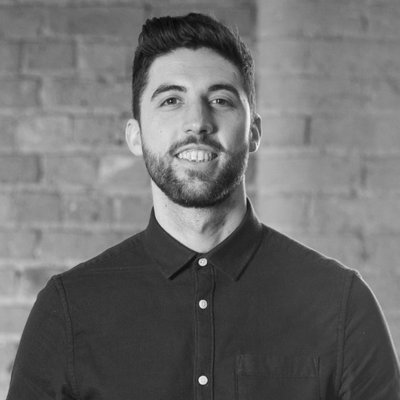
Sam Jarrett
Head of marketing and communications, Landsec, UKSam Jarrett leads marketing and communications for the regeneration team of Landsec, one of the UK’s foremost real estate companies. For the last decade, he has been focused on helping shape some of the country’s most ambitious projects, including the transformation of Manchester’s Mayfield district. With a background in broadcast and print, Sam brings a creative storytelling lens to the creation and communication of new places.Mayfield Park, Manchester – urban park of the future
Abstract Copy
Mayfield Park, Manchester’s first new public park in more than 100 years, represents a transformative approach to city-making – where inclusive design, ecological restoration and cultural placemaking converge to promote health and wellbeing in an evolving urban context.
Delivered through an innovative public-private partnership between Manchester City Council, LCR, Transport for Greater Manchester and Landsec, the 6.5-hectare park is the first phase of a £1.5bn regeneration of a 24-acre brownfield site next to Piccadilly Station. Once closed off for more than 60 years, Mayfield has been reimagined as a vibrant, connected district anchored by a world-class green space. Over the next decade, the park will double in size, growing alongside the wider development as new homes, workspaces, and cultural destinations are delivered within and around the landscape – creating a district where buildings sit within a park, not the other way around.
The park integrates a newly daylighted section of the River Medlock, biodiverse planting, nature-based play, and accessible routes. It supports urban cooling, stormwater management (designed to withstand one-in-100-year flood events), and carbon reduction through material reuse and site-responsive construction. Its social infrastructure includes open lawns, play spaces, habitat zones, and heritage features reused from the site’s industrial past.
Mayfield Park has already delivered measurable health and economic benefits, with an estimated £300,000 annually in wellbeing-related uplift. Developed with community input, it serves local residents, commuters and visitors, and is evolving with each new phase. The park’s early delivery, ahead of commercial return, was made possible by the experience and vision of the Mayfield Partnership. Key milestones include the success of the Depot, a cultural venue that has welcomed more than 4 million guests over six years, and the award-winning first phase of the park.
In 2026, the park will welcome the RHS Chelsea Flower Show’s Gold-medal winning Avanade Intelligent Garden – a pioneering space using AI to monitor and support tree health. Its relocation and testing in a live urban setting reinforces Mayfield’s role as a proving ground for future-ready green infrastructure.
This case study explores the challenges and innovations of delivering health-enabling green infrastructure at the outset of regeneration. It highlights Mayfield’s contribution to climate resilience, wellbeing, placemaking and socio-economic growth, and it offers a practice-based model for how forgotten urban districts can be reimagined as inclusive, green, and resilient places to live, work and thrive.
Learning Objectives
- Understand how green infrastructure can be integrated at the outset of major urban regeneration schemes to support long-term public health, wellbeing, and climate resilience.
- Apply insights from Mayfield to other urban contexts, considering how underused or post-industrial areas can be transformed into vibrant, health-enhancing public realm assets.
- Evaluate the socio-economic and environmental benefits of urban park development,
14.40Therme Manchester: Creating transformative social infrastructure and urban wellbeing for all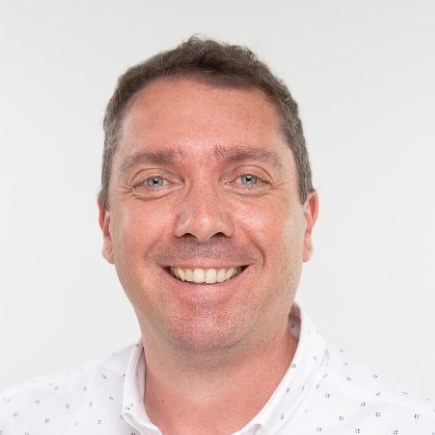
Rob Creber
Head of social value and partnerships, Therme UK“I’ve always believed that, just like individuals, businesses have a real opportunity and responsibility to make a positive difference in people’s lives and for our environment. So much of that comes down to the choices we make, and being true to our values” Rob has worked in the events and experiential industry for over 30 years and joined Therme Group in 2021 to lead the operational planning for our new UK resorts. He now leads social value and partnerships for Therme in the UK, focused on the delivery of the opportunities that will positively impact individual, community, and environmental wellbeing. A career focused on the planning, delivery and operation of major events, within roles at owner organisers, venues and suppliers, Rob was part of the team that planned, opened and operated ExCeL London, which transformed the area around the Royal Docks. The next step was a role in the London 2012 Olympics and Paralympics Organising Committee, joining very early in the planning phase for the Games. Working in the venue development team, he was responsible for managing teams to plan, deliver and operate a cluster of Olympic and Paralympic competition venues. Since the Games, he has worked across major events in the b2b and b2c sector, in addition to working for central government on the events re-start programme during the Covid response.Therme Manchester: Creating transformative social infrastructure and urban wellbeing for all
Abstract Copy
Therme Manchester is a £450m development and the UK’s first urban wellbeing resort. Set within a vast tropical environment, the resort represents a new form of social wellbeing infrastructure, as essential to any city as facilities such as theatres, museums, libraries, sports complexes, and parks.
Welcoming more than 2 million guests annually, independent assessments estimate the resort will deliver £4.52bn gross value economic contribution (50% within GM) and £3.553bn social value contribution, with improved physical health the largest contributor.
Visitors can enjoy a year-round 33°C climate with warm lagoons and botanical gardens supported by advanced sustainable design. Blending ancient thermal traditions with modern experiences, it offers a diverse selection of wellbeing experiences, including saunas, steam rooms, water slides, wave pools, and healthy food, alongside affordable luxury spa, health, and fitness therapies. Surrounded by lush vegetation and diverse plant species, guests can relax, play, and recharge in harmony with nature, both indoors and outdoors.
Operating at scale to deliver affordability and accessibility, the resort uses state-of-the-art technology to deliver highly valued personalised wellbeing experiences. Guests can enjoy inclusive dining curated by top chefs, nutritionists, and sustainability experts, within our restaurants, cafes and pool bars, offering memorable experiences.
Our social value purpose, made in and for Manchester, is to create transformational urban wellbeing for all by developing skills, generating jobs, and providing opportunities that positively impact individual, community, and environmental wellbeing.
Developed by global wellbeing leader Therme Group, the Therme Manchester resort will be the UK’s first destination of its kind – bringing nature, water and wellbeing at scale to an urban setting. Driven by an inclusive vision of ‘Wellbeing for All’, the resort will become a beacon of wellbeing and an integral part of the city region’s social infrastructure.15.00Panel discussion15.30 - 16.00Video+Poster Gallery, coffee and networking16.00 - 17.15Session 26- Alternative housing models: Community Land Trusts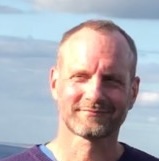
Ben Cave
Director, Ben Cave Associates, UKBen Cave has specialised in public policy, health and social impact assessment for 25 years. He provides advice at a senior level in local, regional, national and international arenas. He is interested in how public health advice and evidence can be presented so that it informs policy at strategic and at local levels. This requires cross-sectoral work with health authorities, urban planners, the legal profession, civil society, and developers. Ben has led health impact assessments (HIAs) in conjunction with environmental assessments and focuses on providing high-quality HIAs that are robust and defensible. He has advocated for public health in a wide range of sectors: for example, housing, regeneration and mixed-use developments and infrastructure for energy, mining and transport. He has prepared, and contributed to, expert documents on the inclusion of health in the assessment of plans and projects for national governments and for UN bodies (WHO Regional Office for Europe, United Nations Economic Commission for Europe); and financial institutions (World Bank; European Investment Bank). Ben runs a specialist consultancy. He served as elected president of the global International Association for Impact Assessment from 2020-2021 and he is an active member of the European Public Health Association. He is an honorary professor in the Department of Geography and Planning at the University of Liverpool, where he is also a member of the WHO Collaborating Centre for Health in Impact Assessment.16.00Community land trusts: An alternative community-led affordable housing model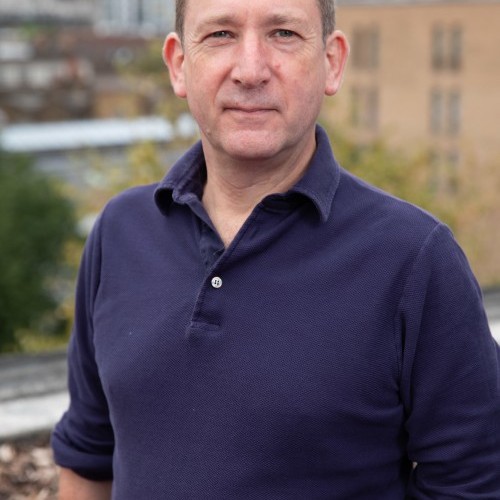
Oliver Bulleid
Executive director, London Community Land Trust, UKOliver is the executive director at London CLT and has oversight of all our live projects and campaigns for new housing sites. His background as an architect with specialist knowledge in housing and low-energy design provides invaluable technical expertise and practical knowledge to all our work. He has worked on a wide range of award-winning projects, from large-scale masterplans and housing developments right down to individual homes, with projects in many London boroughs, including Iroko House for Coin Street Community Builders and Somerleyton Road community housing for Brixton Green/LB Lambeth. Having previously designed and constructed a home and studio in Shoreditch, he now lives in north London in a self-built zero-carbon family house that is so well insulated it has no need for a heating system. He believes that community-led housing, coupled with excellent professional input from an understanding design team, has the potential to create homes and places that are beautiful, long-lasting and respond positively to the climate emergency.Community land trusts: An alternative community-led affordable housing model
Abstract Copy
Background: London Community Land Trust (London CLT) is a not-for-profit, community-led housing developer, working with local communities across London boroughs to bring forward genuinely and permanently affordable homes.
Our homes are developed with and for the local community with the price of the home linked to average income for the area and resold on the same basis. This means that those on average incomes can afford to own their home and stay in their local community, with all the associated benefits that brings.
The challenge: Many Londoners on average incomes cannot afford to stay in the capital and are often forced to move away from their community, primarily due to the high cost of housing and rising private rents. London CLT offers a different housing model to those on average incomes, through a community land trust, enabling residents to become long-term stewards of their development, with collective long-term control and with secure and affordable homes.
The process: London CLT, often in partnership with Citizens UK, works with local community groups to campaign for development sites to be made available by the local authority, on condition they are developed for genuinely affordable homes for local residents. Community action builds local political support, which in turn leads to council support and the identification of suitable sites, often slightly rundown areas at the edge of existing housing estates where new housing can become a welcome and beneficial addition. With grant support from the Greater London Authority (GLA), London CLT acts as the developer, engaging architects and consultants to co-design the project with the community, and then raises development finance to construct and complete each development.
Results: Our homes are lived in by key workers and those on average incomes, and they provide long-term housing and financial stability. They allow for community wealth building, both individually and collectively, and support those from economically disadvantaged backgrounds.
Future potential: London CLT’s recently completed development of 11 homes in the London Borough of Lewisham, south London, is a relatively small project. If, however, each of the 32 London Boroughs brought forward three similar projects, it would contribute more than 1000 new homes. London CLT is already active in five London boroughs, with three live projects and three pipeline projects, and it hopes to bring forward many more genuinely affordable homes, working with and for local communities.
Learning Objectives
- Public Land for Public Good: Community Land Trusts are very different from just buying a home or renting a home. They allow long term community stewardship of assets, creating both genuinely and permanently affordable homes in long term community ownership
- Community Wealth Building: Our homes are lived in by keyworkers and those average incomes and provide long term housing and financial stability. They allow for community wealth building, and support those from economically disadvantaged backgrounds.
- Supporting Councils to Meet Housing Need: Community Land Trusts provide additional new homes that are genuinely affordable to local residents, and often turn a council liability (eg. run down garages) into a community asset - win / win all round.
16.20Community-led housing for all: Addressing barriers for Black and other minority communities in community-led housing and community land trusts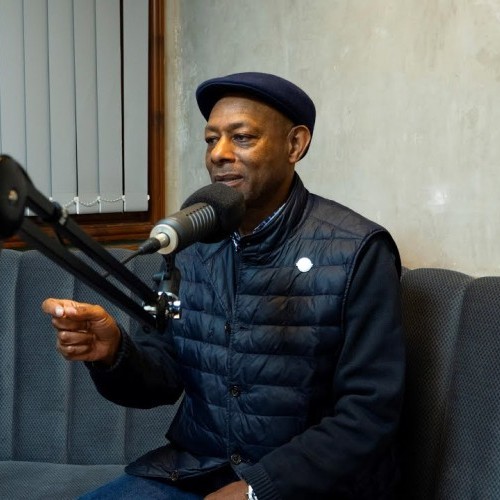
Claude Hendrickson
Community-Led Housing Advisor , Leeds Community Homes, United KingdomClaude Hendrickson MBE has been active in the self-build and community-led housing sector for over 30 years. In 1989, he co-founded Frontline Community Self-Build, a pioneering project led by unemployed African-Caribbean men in Leeds. He went on to become a founding member of the Community Self Build Agency (CSBA) in 2000, supporting self-build initiatives across the UK, many involving ex-service personnel. In 2010, Claude became CSBA’s northern director (on a voluntary basis), and in 2015, he was commissioned by Leeds City Council to develop a ten-year strategy for self-build. He continues to champion inclusive housing through roles as an EDI associate at People Powered Homes Leeds, an accredited community-led housing advisor (CIH), and a community land trust ambassador. Claude regularly speaks at national housing events and facilitates workshops focused on diversity and inclusion. With deep knowledge of the systemic under-representation of minority groups in housing, he is a long-standing advocate for greater investment in urban self-build and community-led projects across the North of England. In recognition of his contributions, Claude was awarded an MBE in 2023 for services to community self-build and community-led housing.Community-led housing for all: Addressing barriers for Black and other minority communities in community-led housing and community land trusts
Abstract Copy
Background: Community-led housing, through models like community land trusts, co-housing, and co-operatives, offers a powerful route to healthier cities by strengthening resident leadership, social ties, and access to affordable, secure homes. Yet despite a rich legacy of Black and minority ethnic-led housing efforts in England, these communities remain under-represented in today’s sector. This is not just a question of representation – the needs and structural gaps were greater to begin with, shaped by a long history of racial injustice and exclusion. Their continued marginalisation limits the sector’s potential to tackle deep-rooted housing and health inequalities.
Purpose: This study explored the barriers that Black and minority ethnic communities face in accessing, planning, and benefitting from community-led housing. Our aim was to generate practical, evidence-based recommendations to help the sector better support all groups, including those with protected characteristics.
Methods: Using a co-produced approach, the research was led by academic researchers and practitioners with lived experience of racial inequality and housing exclusion. Together, they conducted 26 interviews and participatory workshops with community-led housing projects, infrastructure bodies, funders, and civic organisations across England, spanning locations, ethnic backgrounds, and models from co-ops to community land trusts to co-housing.
Results: Community-led housing was seen as a way to meet urgent housing needs, reclaim control over planning and development, and promote belonging.
Yet four major systemic barriers persist:
1) low awareness in Black and minority ethnic communities;
2) lack of representation in leadership and advisory roles;
3) limited tailored partnership and infrastructure support; and
4) unequal access to funding, resulting from over-reliance on existing networks and rigid definitions of “track record.”
Some recommendations are already being acted on, such as new practitioner coalitions like Black Asset Builders, showing the potential for rapid, community-driven progress.
Implications: To unlock the full health and social value of community-led housing, we outline actionable recommendations for infrastructure bodies, funders, and central and local government:
1) ringfence capital and revenue funding for Black and minority ethnic-led projects;
2) proactively engage with civic networks and support peer learning;
3) document historic and current success stories; and
4) adapt delivery and policy models to reflect different communities’ needs and aspirations.
A more equitable community-led housing sector is not only possible, it is essential for building cities that are healthier, fairer, and shaped by those too often excluded.Learning Objectives
- Describe different models of community-led housing and community land trusts and how these contribute to improved community wellbeing, social cohesion, and urban health outcomes.
- Identify systemic barriers that prevent equitable access to these benefits for marginalised communities, including Black communities and other groups with protected characteristics.
- Outline evidence-based strategies for supporting Black and other minoritised and marginalised groups to participate in community-led housing initiatives, including funding mechanisms, partnership models, and engagement approaches.
16.40Panel discussionEnd of Homes and neighbourhoods stream -
City planning and investment
Studio 1
10.45 - 12.30Session 27- Planning digital cities
Caroline Paradise PhD
Head of design research, Atkins, UKCaroline Paradise is a Technical Director, and Head of Research & Innovation within the Building Design practice at Atkins. She is a qualified Architect with a PhD in Architecture and 18yrs experience in applied research within the built environment industry. She currently leads a multi-disciplinary Research & Innovation team focusing on themes including Human Experience, Technology Advancement and the Creative Process. Her role supports a research driven design approach to provide innovative solutions across a range of sectors, including Education, Residential and Transportation. Since the beginning of her career, Caroline has been passionate about the importance of design to support the health and wellbeing of all building users. Caroline led the development of Atkins’ HCD toolkit, an innovative design service supported by a suite of digital tools which puts user experience and wellbeing at the heart of design decision making.10.45Beautiful infrastructure: Designing integrated systems for healthy cities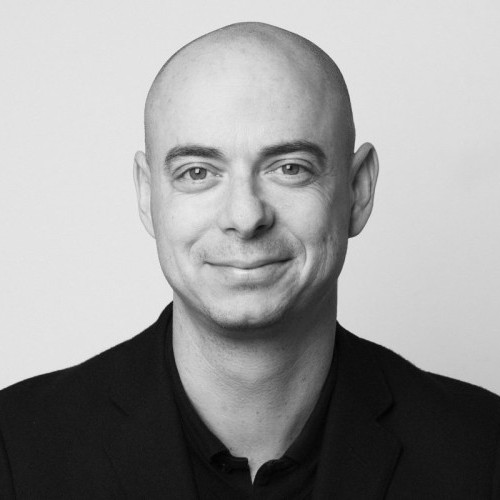
Elad Eisenstein
Director for city masterplanning and urban design, AECOM, UKElad is AECOM’s director for city masterplanning and urban design. Based in London and working internationally, he offers clients a holistic approach to city development, urban strategy and design, across the company's strategic intervention sectors. Trained as an architect and urban designer, Elad has more than two decades of global experience, specialising in leading, designing and delivering major large-scale and complex urban projects. His integrated and strategic approach to city design helped shape many projects and places in cities across the globe, including Stratford City’s international Quarter, Tottenham Regeneration Framework, and Thamesmead in London; NOMA in Manchester; Zuidas in Amsterdam; Central Renewal District in Sydney; City of Tshwane in Pretoria, South Africa; and the Singapore Sports Hub. Elad is an expert panel member for planning at the NLA and formerly a member of the first cohort of the Mayor of London’s Infrastructure Advisory Panel. He has taught in major universities, including the Architectural Association School of Architecture and UCL. He has published widely, and he is a regular keynote speaker at many international conferencesBeautiful infrastructure: Designing integrated systems for healthy cities
Abstract Copy
Healthy city design must go beyond aesthetics and digital innovation to prioritise infrastructure as a foundational principle. This presentation will explore how integrated infrastructure systems – transport, sustainable, social, green, blue, and grey – form the backbone of urban health, resilience, and inclusivity.
Infrastructure is not merely a technical necessity; it is a social determinant of health. Above-ground systems, such as public transit, parks, and community centres, must work in harmony with below-ground networks like water management, energy grids, and digital connectivity. When designed as an ecosystem, these layers support physical activity, mental wellbeing, climate resilience, and equitable access to services.
AECOM uses an evidence-led, interdisciplinary methodology to co-ordinate the design and delivery of complex urban projects with clarity and efficiency. This approach reveals the interdependencies and relationships not only between technical parameters and issues but also between stakeholders, institutions, uses, activities, and impacts.
Our methodology is based on a perspective along two axes. The first links the global and the local, allowing us to understand the impacts of global issues, such as climate change, economic instability or health, and balance those with the needs and aspirations of local communities. The second, between places and systems, helps us design places and spaces with technical expertise in mind, maximising the value of urban systems such as transport, civils or digital infrastructure.
In our presentation, we will showcase examples of our collaborative and integrated design approach, from across scales and typologies. We will demonstrate our global work on city-scale infrastructure-led projects, from Manchester, London and Belfast, through to Shanghai, Brisbane and Mumbai.
By combining masterplanning with advanced digital tools, we enable a systems-based approach to urban design that supports integration across disciplines. Tools such as digital twins, IoT sensors, and 3D city models enable cities to simulate, monitor and optimise these systems in real time.
This presentation advocates for a systems-thinking approach to infrastructure, treating it not as isolated assets but as interconnected networks that shape urban life. By embedding health, equity and sustainability into infrastructure design and governance, cities can create environments where all residents thrive. Our approach and projects show how integrated design and planning of city-scale infrastructure systems can deliver sustainable, healthy city outcomes – unlocking co-benefits that siloed approaches often fail to achieve.Learning Objectives
- Systems-thinking in infrastructure design
- Integrating above and below-ground systems to maximise value
- Balancing global challenges with local needs and optimising complex systems through advanced digital tools
11.05AI-driven urban futures: Leveraging data for healthier city design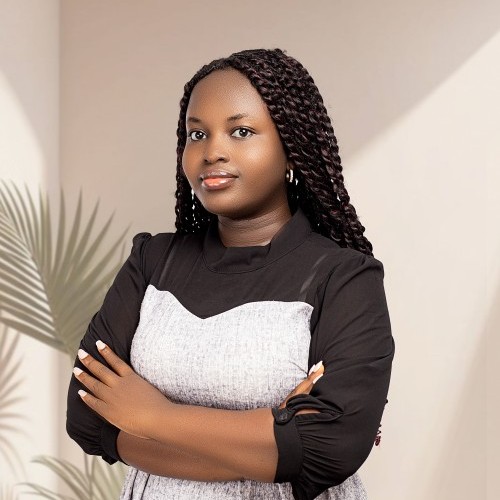
Abigail Oppong
Subject matter expert, data visualisation, AI, and emerging technologies, UrbanHealth360, United StatesAbigail Oppong is a young, distinguished professional who is celebrated for advancing AI ethics, particularly in addressing biases in NLP and health systems. She was honoured as one of the 100 women in AI ethics by Women in AI Ethics in 2023. Her passion for science, technology and nature drives her to explore how new developments can advance humanity. Abigail’s work includes evaluating biases in NLP and health systems and enhancing fairness in AI technologies, especially for underserved communities. She has contributed significantly to projects through collaborations, focusing on creating responsible AI systems that meet local and regional ethical standards. Abigail’s professional journey includes a stint as a research consultant working with academia, industry, and NGOs. She has spoken at international conferences and been published in prestigious forums like CHI and EMNLP. She also spoke as a panellist at the Royal Society, where she advocates for the need to build more inclusive health technologies. She has been part of an engagement with an expert group on quantum science at the Pontifical Academy of Sciences, where she champions the need for more inclusion in the discovery of science and community-based solutions. Her data science, machine learning, and AI ethics skills make her pivotal in shaping AI governance and ethical standards, particularly in Africa. Abigail’s interdisciplinary approach and previous experience in the non-profit sector enrich her contributions to AI ethics, emphasising the importance of localisation, trust, culture, and representation in technological development. During her leisure time, she likes giving back to the community. She has co-founded several initiatives to promote Unity, good health, and community development. Her passion for community development influenced her research journey to investigate how local organisations can be empowered in the age of emerging technologies.
Yonette F. Thomas PhD
Founder and president, UrbanHealth360, USADr. Yonette Felicity Thomas is the founder and president of UrbanHealth360, an organization of multidisciplinary thinkers centered on a people-oriented, community-focused approach to urban health. Dr. Thomas is a globally acknowledged thought leader, urban health champion, and an advocate for valuing the health of women and girls as an economic imperative. A social epidemiologist/medical sociologist by training, she has served as the chief of Epidemiology at the National Institute on Drug Abuse in the National Institutes of Health, held academic positions at University of Miami Miller School of Medicine and Howard University, and as a vice president for research. She founded Borjoner International and Strategic Transitions to influence the progress, health, and wellbeing of individuals and communities across the world. As a founding board member of Women’s Economic Imperative (WEI), she leads the organization’s focus on the health of women and girls as an economic value. Her work as global advisor for Evidence for Sustainable Human Development Systems in Africa (EVIHDAF) and the Centre for Urban Health and Development within the Asian Institute of Poverty Alleviation (CUHD-AIPA) extends her focus on the global south and the realization of the Sustainable Development Goals in this last decade. She is the Associate Editor for Women and Girls for Cities & Health. She is a founding board member of the International Society for Urban Health (ISUH) and recently led the organization into sustainability by serving as the inaugural executive director (as a board member) and has served as a science advisor for urban health to the New York Academy of Medicine. She is a founding board member and former vice president of the Interdisciplinary Association for Population Health Science (IAPHS) and served on the Steering Committee of the National Hispanic Science Network on Drug Abuse for more than a decade. She served on the National Academy of Sciences Committee on Revisions to the Common Rule for the Protection of Human Subjects in Research in the Behavioral and Social Sciences. Her primary research and publications have focused on the social determinants of health, health disparities, the health of women and girls as an economic value, the social epidemiology of drug abuse and HIV/AIDS and the link with geography, including edited volumes: Geography and Drug Addiction, Crime, HIV, and Health: intersections of Criminal Justice and Public Health Concerns.AI-driven urban futures: Leveraging data for healthier city design
Abstract Copy
The convergence of urban design, data science and artificial intelligence (AI) is reshaping how we conceive and build healthier cities. As urban populations grow and face increasingly complex challenges ranging from climate change and infrastructure stress to public health inequities, AI-powered technologies present timely opportunities for responsive, efficient, and health-promoting city planning. However, the success of these technologies depends not only on their technical sophistication but also on how well they are adapted to the needs, contexts and lived realities of diverse urban populations.
This presentation explores how AI and data systems are being operationalised across a range of global urban contexts to support healthier cities. We begin with diverse global case studies that illustrate varying approaches to data-driven urban health design: Virtual Singapore’s dynamic digital twin, which capitalises on integrated geospatial data for multi-layered urban simulations; Sydney’s urban modelling platform, which supports sustainability through predictive analytics; and Buenos Aires’ deployment of CardioAI to improve cardiovascular health diagnostics across its public hospitals. These examples showcase how cities with distinct socio-political structures and data ecosystems are harnessing AI to strengthen public health infrastructure and urban resilience.
We then shift focus to the challenges and opportunities of applying similar technologies in low- and middle-income urban settings. Drawing on emerging examples from resource-constrained contexts, we underscore the importance of inclusive data ecosystems, capacity-building, and context-aware design. Cities in these regions often face limitations in digital infrastructure and data availability, but they also demonstrate remarkable innovation through community-led data collection efforts, open-source tools, and adaptable AI models.
Through this comparative analysis, we propose a practical framework for integrating data and AI into healthy city design that is equitable, scalable and sustainable. This framework emphasises:
• predictive modelling for urban planning and public health forecasting;
• participatory and inclusive data collection methods that engage local communities;
• scalable, low-cost solutions that are adaptable to local infrastructure and socio-cultural dynamics; and
• interdisciplinary collaboration across urban planners, technologists, health professionals, and policymakers.
Ultimately, this talk encourages a rethinking of “smart cities” as not merely technologically advanced but also as health-centred, inclusive and responsive to both global trends and local realities. By learning from a diversity of experiences, urban actors can harness AI not just to solve problems but also to reimagine urban life in more equitable and sustainable ways.
Learning Objectives
- How data and AI technologies are being applied to enhance public health in urban environments.
- Introduction of AI integration into healthy city planning.
- Interdisciplinary collaboration to ensure AI data governance in urban health policymaking.
11.25Digital placemaking for healthier cities: Reimagining place through technology, spatial practice and co-design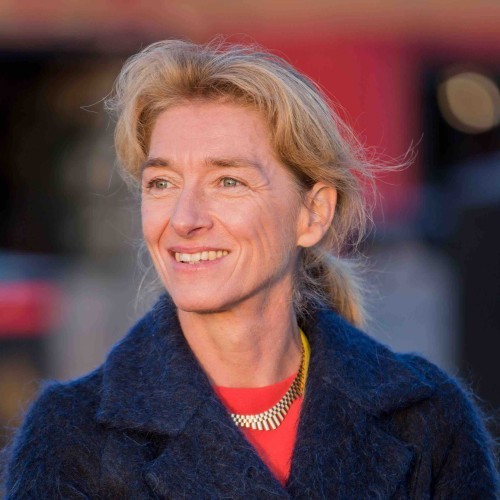
Jo Morrison
Director of Digital Innovation and Research, Calvium, United KingdomEnhancing people’s experience of places in novel ways has been at the heart of Jo’s work for 20+ years. By embracing inclusive participatory practices, such as co-design and community engagement, she hopes to create healthier neighbourhoods for all. Project partners in the UK have included the NHS, National Trust, City of Edinburgh Council, University of Plymouth and the Arts Council England. * Co-Founder and Co-CEO of the Association of Collaborative Design * Fellow of Royal Society for Arts * Fellow of Institute of Place Management * Fellow of Higher Education Academy * Industry Champion for Creative Industries Policy and Evidence Centre * Trustee League of Friends of South Petherton Hospital.Digital placemaking for healthier cities: Reimagining place through technology, spatial practice and co-design
Abstract Copy
Building on earlier research for the NHS – ‘Digital placemaking for health and wellbeing in North East London’ – this talk/poster presents a concise and visually engaging exploration of how digital placemaking can contribute to healthier, more connected urban and community environments. As cities face increasing pressures on public health, social cohesion and environmental sustainability, there is a growing need to reframe how we think about the role of technology in shaping our shared spaces.
The poster is structured around three core learning objectives:
1. Understanding the conceptual foundations: I introduce the concept of digital placemaking – the strategic use of digital tools to enrich the experience of physical place – and explore its relevance in promoting health and wellbeing. Visual elements and brief case studies illustrate how digital interventions such as interactive installations, location-based storytelling, and sensory experiences can foster a sense of connection, encourage physical activity, and support mental health in public spaces.
2. Reshaping spatial practice: Through diagrams and annotated examples, the poster demonstrates how digital technologies are transforming our relationship with place. It invites delegates to consider new modes of spatial interaction and mapping.
3. Applying a practical framework: The final section introduces a user-friendly spatial framework developed to guide urban professionals, designers, policymakers and community leaders. The framework offers principles and prompts for identifying opportunities to use digital placemaking in ways that are inclusive, context-sensitive and aligned with local health and wellbeing goals.
By synthesising theory, practice and design strategy, this poster aims to inspire action and reflection. It is intended as a springboard for further conversation and action about how we can embrace digital placemaking as an essential tool for shaping cities that are more emotionally resonant, socially inclusive and resilient.
It is hoped that discussion around the poster will lead to a further iteration and an accompanying resource for place professionals and communities to use. The video will follow the same structure, expanding on each of the three elements. The aim of this submission is to create readily digestible and useable insight to make our places healthier.Learning Objectives
- Understand the Conceptual Foundations: To define digital placemaking and explore its relevance in urban and community health, highlighting how digital tools can enhance public spaces, foster social connection and support wellbeing.
- To consider how digital technologies are reshaping our understanding of place: offering new ways to imagine spatial practice and the experiential dimensions of public space.
- Apply a Spatial Framework: To introduce a practical framework that guides policymakers, urban professionals and community leaders in exploring digital placemaking activities that contribute to healthier, more connected and resilient communities.
11.45Gamifying the future of public space: Co-designing parks with communities using Open Space Sandbox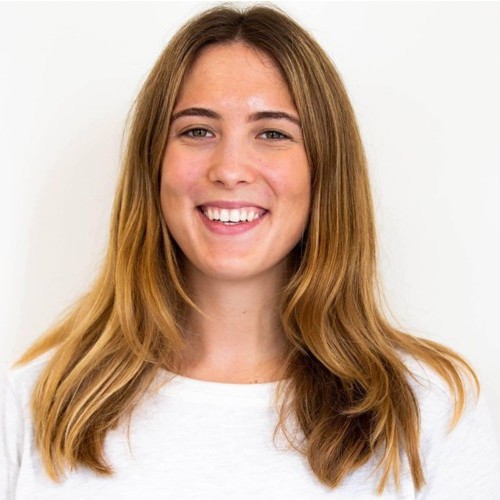
Hayley Oleksiak
Co-founder, CEO, Open Space Sandbox, United StatesHayley Oleksiak is the founder and CEO of Open Space Sandbox, an award-winning civic tech company that helps communities collaboratively design parks and public spaces through a gamified planning platform. Her work combines community engagement, spatial data, and urban policy to drive more equitable and creative citymaking. She was named a Knight Emerging City Champion and is a recipient of Northeastern University’s Women Who Empower Innovator Award.Gamifying the future of public space: Co-designing parks with communities using Open Space Sandbox
Abstract Copy
Public space planning processes are often opaque, inaccessible, and disconnected from the people they are meant to serve. Open Space Sandbox is a new participatory design platform that empowers communities to collaboratively design parks and public spaces through an interactive digital game. This abstract presents the methodology, impact, and early results from pilot projects in Philadelphia and across North America, where residents co-designed park elements with real-time budget constraints, tradeoffs, and data overlays.
The tool, which requires no download and is easily deployed in physical or digital workshops, enables planners and residents to work side-by-side in shaping shared urban environments. Participants select park features, adjust budgets, and consider social and ecological tradeoffs through an engaging interface backed by geospatial data, behavioural insights, and AI-supported scenario modelling. Early findings suggest the tool improves public understanding of design and budget constraints, increases engagement across age and language groups, and helps planners surface trends from collective input.
By combining play and planning, Open Space Sandbox offers a scalable, replicable model for equitable public space development. This presentation will share lessons from pilots, implementation strategies for cities and design firms, and future applications in climate adaptation and infrastructure design.Learning Objectives
- Demonstrate how gamification can increase participation and understanding in public space planning.
- Share a replicable methodology for community co-design using digital tools.
- Explore how cities and design teams can integrate engagement insights into long-term planning.
12.05Panel discussion12.30 - 14.00Video+Poster Gallery, workshop, lunch and networking14.00 - 15.30Session 28- Policy and practice: Health impact assessments
Julia Thrift
Director, Healthier Placemaking, Town and Country Planning Association, United KingdomJulia Thrift joined the TCPA in May 2013 and manages projects concerning planning and public health, green infrastructure, and planning and social justice. Throughout her career she has been interested in the links between the design of the built environment and the quality of people’s lives. She worked for CABE, the Commission for Architecture and the Built Environment, where she was the founding director of CABE Space, the government’s adviser on policy and practice regarding England’s urban parks and public spaces. She began her career as a journalist, writing about design, architecture and art. She has a degree in philosophy from University College London.14.00Using health impact assessment for planning policy in Wales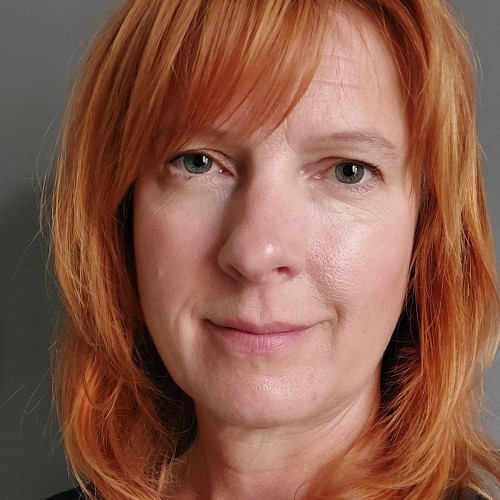
Cheryl Williams
Principal public health practitioner, Public Health Wales, UKCheryl Williams is a principal public health practitioner (policy and impact assessment) in the Wales Health Impact Assessment Support Unit (WHIASU), Public Health Wales. Her work focuses on maximising the connections between spatial planning and health, including the use of health impact assessments. Prior to her current role, Cheryl spent a number of years working in the local public health team in Cardiff and Vale University Health Board, where her role included supporting both Cardiff and Vale local authorities to embed health within planning policy. Early in her career, having initially qualified in town planning, Cheryl worked as a planning officer in Coventry City Council and then Cardiff Council, before having a change of direction, initially going to manage a healthy living project in Cardiff, which then led to a career in public health. In her current role, she is in the fortunate position of being able to combine both a planning and public health background.Catrin Lyddon
Public health practitioner, Public Health Wales, UKCatrin Lyddon is a public health practitioner working in the Wales Health Impact Assessment Support Unit (WHIASU), which is part of Public Health Wales. She has a background in research, with an interest in the wider determinants of health. Catrin is passionate about understanding and identifying health and wellbeing impacts, and she uses her role within WHIASU to provide advice, guidance and support for those looking to identify the health impacts of their work by using health impact assessment (HIA). She has supported many HIA workshops at both a national and local level in subject areas such as planning, waste and recycling, and screening engagement.Using health impact assessment for planning policy in Wales
Abstract Copy
Background: Planning Policy Wales (PPW) provides a national framework for land use planning in Wales and recognises the valuable contribution that health impact assessments (HIAs) make towards plan making and creating healthy places. Local planning authorities undertake HIAs as part of their local development plan (LDP) preparation, and they are increasingly focusing attention towards the inclusion of participatory stakeholder HIAs as part of this process.
Purpose: Undertaking a rapid participatory stakeholder HIA when developing a LDP enables planning authorities to obtain qualitative information and insights about potential health impacts. The HIA can complement and be incorporated into the evidence base for the LDP. Wales champions this approach. This session articulates this and provides time to carry out a condensed version.
Methods: A stakeholder workshop is undertaken, usually at either Preferred Strategy stage where key policies and objectives are discussed, or Deposit Plan, where detailed planning policies are considered, or both. The HIA methodology involves consideration of the potential impact of the LDP on the health and wellbeing of specific population groups, wider determinants of health, and inequalities. Positive impacts as well as potential unintended negative impacts can be identified through the HIA discussions and recommendations considered for how to enhance or mitigate for the impacts. Key to this process is the stakeholder engagement, which enables planners and other stakeholders, such as communities or environmental management, to hear from people who live and work in the local area, and understand their lived experiences, insights and local knowledge. It is proposed to include an interactive element to the session, with participants taking part in a short version of a HIA stakeholder workshop.
Results: Delivering stakeholder HIA workshops is not just about the end product of a report, though the report is crucial for being able to utilise the findings in the development of the LDP. The process itself provides a forum for rich, contextual discussion and enables greater partnership working and collaboration between planners and other partners, particularly local health boards. It leads to greater understanding for planners of the importance of creating healthy spaces where communities can thrive, and greater understanding of the planning process for other key stakeholders.
Conclusion: Participatory stakeholder HIAs play an important role in enabling consideration of health and inequalities in LDPs and can lead to planning policies giving regard to creating healthy places in which people can thrive.
Learning Objectives
- Understand how Health Impact Assessments are being used in planning policy development in Wales
- To understand the vale of HIAs in enabling planning policy to create healthy places.
14.20Prioritising wellbeing in compact urban design: Ireland’s first health impact assessment on a statutory development plan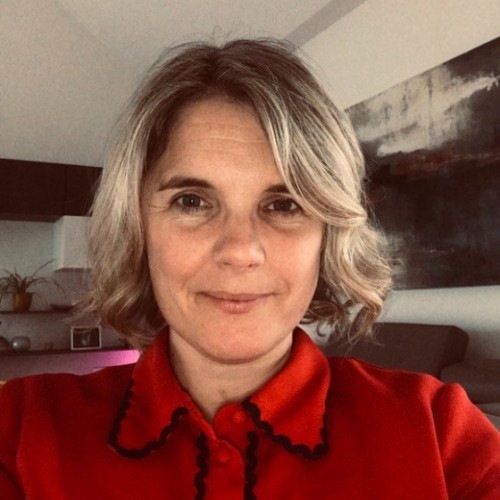
Karen O’Mahony
Senior executive planner, Cork City Council, IrelandKaren O'Mahony is senior executive planner in Cork City Council and was a member of the HIA team that carried out the assessment on the Cork City Development Plan (2022-2028).Prioritising wellbeing in compact urban design: Ireland’s first health impact assessment on a statutory development plan
Abstract Copy
Framework: As a designated WHO Healthy City, Cork has committed to embedding health considerations across all policies. The Cork City Development Plan (CCDP) (2022-2028), with its €10 billion investment framework and 15-minute city concept as part of the Compact Liveable Growth key strategic principle, offers an opportunity to operationalise Health in All Policies within urban planning. In 2024, a health impact assessment (HIA) was undertaken on the Plan’s core strategy to assess the local policy for potential health impacts on older people, young people, and people living on low incomes. Eleven actionable recommendations were created and included in the HIA report, with the goal of informing the next iteration of the statutory development plan (CCDP, 2029-2039). The HIA was conducted as part of a project, HIA-IM, which is creating a HIA implementation model based on the learnings from two HIAs: one on the Cork City Development Plan, and one on the national Climate Action Plan.
Description: Using Institute of Public Health Ireland HIA guidance to navigate the process, and drawing on Scottish and Welsh HIA practice, a two-tier governance structure was established connecting diverse stakeholders from the local authority, community organisations, the EPA, health services, and University College Cork, through eight meetings over 12 months. The HIA examined six determinants of health, essential to equitable urban development: housing; neighbourhood design; access to public spaces; active travel; walkability; and workplace accessibility.
Outcomes: A number of outcomes can be reported at this stage. Firstly, the HIA used a scalable methodology for integrating health considerations into urban planning, with evidence-based recommendations informing the preparation of the next City Development Plan. Secondly, it strengthened institutional relationships between health and planning sectors, creating sustainable pathways for ongoing collaboration. Thirdly, it provided a tangible demonstration of how Health in All Policies can move from theoretical concept to practical implementation. Challenges encountered included limited public engagement, varying levels of HIA expertise, and difficulty translating complex health evidence for local planning contexts in Ireland.
Implications: The recommendations from the HIA were designed to inform the next iteration of the CCDP, which is not yet finalised. The learnings generated from the HIA will inform the creation of the HIA implementation model, as well as informing the practice of HIA in the Irish planning context, in a way that is scalable, flexible and practical for city council officials and city partners to engage with in the future.
14.40Building a sustainable and connected community: A partnership approach in Bolton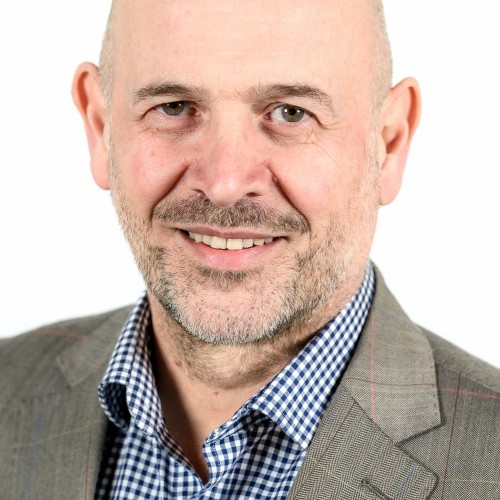
Paul Whittingham
Assistant director of economic development and regeneration, Bolton Council, UKStarted LA Career as a planner and with 40 years of LA experience, with a focus throughout on Place making and making a difference both locally and regionally to influence positive change. Currently responsible for the Regeneration and Economic development functions of the Council, including Town Centre and district centre master planning and delivery of key regeneration schemes together with the delivery and implementation of the economic growth and resilience plan. Bolton has a big ambition, has suffered as many towns have with changes to retail but the people of Bolton remain proud and support place shaping and planned intervention at scale. Paul is responsible for driving the ambition and bringing to life the delivery through strategic sites and a mayoral development corporation.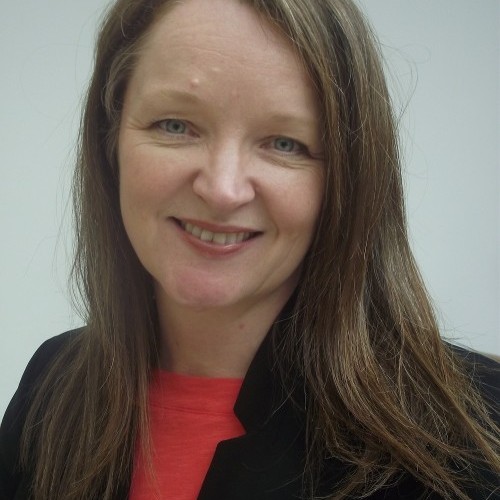
Lynn Donkin
Director of public health, Bolton Council, UKLynn Donkin is Director of Public Health in Bolton, Greater Manchester, where she leads strategic efforts to improve the public’s health and reduce inequalities. With a background in public health policy, systems leadership, and community engagement, Lynn champions place-based approaches that address the wider determinants of health. She has played a pivotal role in shaping Bolton’s response to health challenges through integrated partnerships across local government, health services, and the voluntary sector. Lynn is particularly passionate about creating healthier, more inclusive urban environments that support wellbeing across the life course. She brings a strong commitment to equity, sustainability, and co-production, ensuring that local voices are central to decision-making.Building a sustainable and connected community: A partnership approach in Bolton
Abstract Copy
In areas where deprivation and poor health outcomes intersect, there is a critical opportunity to shape a healthier future for both people and place. This project explores how large-scale development can not only improve long-term health outcomes but also support healthier living in the present. Focusing on one of the most deprived areas in the UK, we examine how development can drive better housing, enhance wellbeing, and create equitable opportunities both within the development boundary and in the wider surrounding community.
Central to this approach is a commitment to co-production: delivering with the community, not to it. Health impact assessments (HIAs) are used as a strategic tool to inform both design and delivery, ensuring that health and wellbeing are embedded in every stage of development. This methodology aims to create a best-in-class model for a healthy, integrated and inclusive community.
Through a multi-sector partnership in Bolton, this initiative capitalises on local lived experience, including the lasting impact of Covid-19 and key learning on community co-production, to co-design a new community of opportunity. This approach offers opportunity to demonstrate how collaborative planning, grounded in real-world challenges, can inform and inspire healthier, more sustainable urban futures.
Learning Objectives
- To explore how large-scale development in an English town can create opportunities to improving health outcomes and supporting healthier living.
- To discuss the practicalities of integrating a co-production approaches into every stage of development.
- To consider the challenges and opportunities for collaborative planning for co-designing sustainable developments.
15.00Panel discussion15.30 - 16.00Video+Poster Gallery, coffee and networking16.00 - 17.15Session 29- Impact investment for healthier lives
Esme Banks Marr
Strategy Director, BVN, United KingdomEsme is Strategy Director at BVN. She specialises in the intersection of human behaviour and the built environment. With a career spanning design, research, communications, and business intelligence, she translates data into actionable insights that shape the future of spaces and places. Esme has worked across diverse sectors, exploring how strategic briefing influences outcomes at every scale - from individual wellbeing to system-wide efficiency. Her expertise lies in bridging gaps between disciplines, ensuring environments are not just functional but deeply responsive to human needs. She is passionate about understanding how people interact with space and how this, in turn, impacts experience. A recognised commentator on the built environment, Esme has contributed to global conversations and publications on design and strategy, the future of work, sustainability and regeneration and digital transformation. Committed to breaking down industry silos, Esme integrates research, data, and strategy with design, to create holistic and future-focused environments. Her work ensures that the built environment evolves in a way that enhances both human experience and organisational outcomes.16.00Growing community wealth – Economies for Healthier Lives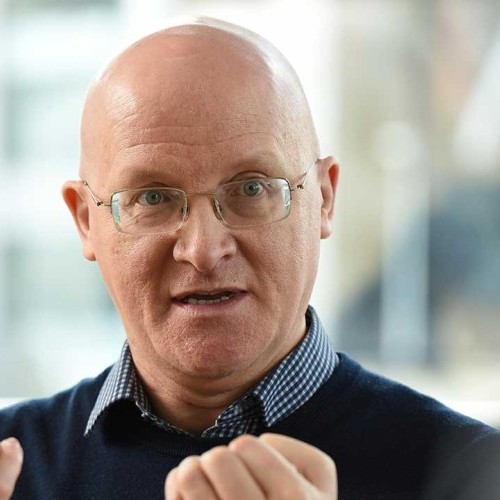
Chris Dabbs
Chief Executive, Unlimited Potential, United KingdomChris is Chief Executive of Unlimited Potential, which specialises in social and economic innovation and in systems change. Originally a social anthropologist, Chris has worked on diverse projects with local people and communities for over 30 years. Chris is a Fellow of the School for Social Entrepreneurs and a Fellow of the Royal Society of Arts.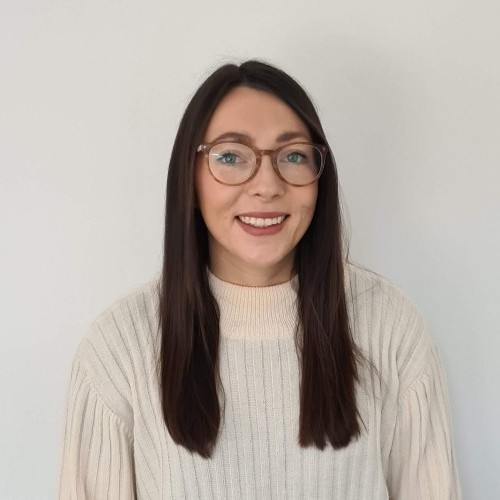
Orla McCann
Project manager, Unlimited Potential, UKOrla is a Project Manager at Unlimited Potential, a community benefit society based in Greater Manchester. Following an academic background in Criminology and Social Work, Orla has experience of working with diverse groups and communities to understand and address inequalities. Orla's work has been focused on developing solutions for system change and working alongside local people and agencies to achieve this.Growing community wealth – Economies for Healthier Lives
Abstract Copy
Economies for Healthier Lives in Salford aimed to use local economic development strategies to improve health and reduce health inequalities. It was a city-wide approach to grow community wealth, with a focus on collective ownership and control by local people for community benefit.
The project was based on changing system conditions, utilising existing assets, and engaging with local people and communities. It enabled economic development and public health professionals to deepen their working partnerships and mutual understanding. The Salford Local Anchors Network, involving local anchor institutions from the private, public and social sectors, was established. Their supply chain expenditure was analysed to identify realistic market opportunities for local social and co-operative businesses, worth at least £10 million per year.
With local young adults from low-wealth communities, we designed social/co-operative businesses with the potential to become new suppliers to local anchor institutions. As a result, the local authority committed to ensure that the city’s economic development is better used to improve population health and reduce inequalities, including by the local anchor institutions working together to ensure that every pound spent is maximised for local benefit.Learning Objectives
- How to use economic development to improve health and well-being.
- How to co-produce social and economic innovations with local people and communities.
- How to enable community ownership and control.
16.20Shifting the power: A community-led model to address health inequities in Brixton and Peckham
Jerryanne Hagan-Tetteh
Senior research executive, ClearView Research, UKJerryanne Hagan-Tetteh is a communications and research professional passionate about social impact, storytelling, and community engagement. She works at ClearView Research as a senior research executive and in the comms and marketing team, where she heavily works on content strategy, events, and co-creation workshops for clients such as Barnardos, Impact on Urban Health, and the Health Foundation.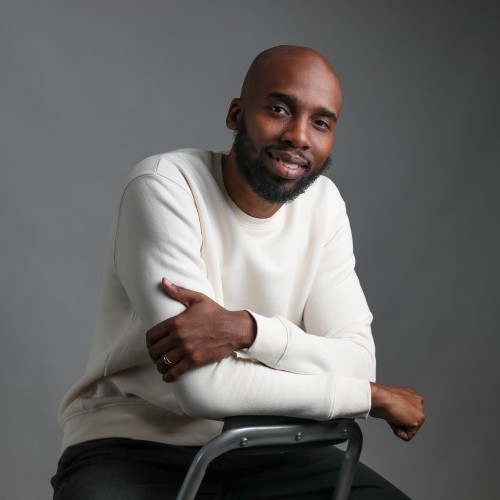
Kenny Imafidon
Managing director and co-founder, ClearView Research, UKDr Kenny Imafidon MBE is an entrepreneur, author and social commentator. He is the co-founder and managing director of ClearView Research, an agency that specialises in research and strategy projects focused on diverse and underrepresented communities. Kenny has led impactful projects across the UK and globally with FTSE 250 companies, global brands, charities, and public institutions. In 2022, Kenny featured in Forbes' annual 30 under 30 list, and his debut book, 'That Peckham Boy', was published by Penguin in 2023. He has over a decade of non-executive board experience and currently serves as a trustee for BBC Children in Need.Shifting the power: A community-led model to address health inequities in Brixton and Peckham
Abstract Copy
Urban communities experiencing deep health inequities are often excluded from key decisions about resource allocation, despite being closest to the challenges. The CVR Community Fund, a £400,000 initiative, aims to change that. Designed and run by residents of Peckham and Brixton, and managed by ClearView Research, a strategy and insights agency, this two-year pilot programme shifts decision-making power directly into the hands of local people to support projects addressing health inequalities in their neighbourhoods.
The Fund empowers individuals, groups and organisations from Brixton and Peckham to create meaningful local change. At its core is a representative community Board, built around four key principles:
1. Fair recruitment: 4500 letters were randomly distributed to households across both boroughs. Only recipients could apply, ensuring a fair and equal opportunity for all. From nearly 100 applications, 15 residents were selected at random, with extra care taken to reflect local demographics and include voices from typically underrepresented groups.
2. Board-level training: Members of the community Board received tailored training in equity, diversity and inclusion (EDI), research methods, and grantmaking. This helped build their confidence and ensured they felt equipped to take on their new roles effectively.
3. Equitable compensation: Recognising their time and contributions, each board member is paid £350 per day, up to £4000 annually. This approach ensures the investment remains in the community and values lived experience as expertise.
4. Community-led decision-making: The Board will lead local research to define funding priorities, centring community perspectives. Once the fund is open, residents will be able to submit and vote on proposals within an equity-first decision-making framework, designed to prioritise need over popularity.
5. Institutional support: The pilot is supported by Southwark and Lambeth councils and local voluntary-sector organisations, whose community engagement teams are collaborating closely with the project.
Early Insights: The project is already yielding valuable lessons. For example, white envelopes used during recruitment had a higher open rate than brown ones. All letters were written in clear, accessible language to maximise understanding. Many of the Board members, who were initially surprised to be selected, have grown in confidence. Several have shared that the training significantly deepened their understanding of funding systems and EDI practices.
Implications: This pilot offers a bold, community-driven model for grantmaking, redistributing power, embedding representation, and proving that when trusted and supported, communities can drive transformative, locally rooted change.Learning Objectives
- Understand the gaps in current funding practice that community-led governance structures fill, and how they can be designed to ensure equitable participation and local ownership.
- Explore practical strategies for recruiting, training, and supporting resident decision-makers in a devolved grantmaking process.
- Reflect on early insights from a live pilot in South London that is testing a new model of community-based funding and what it could mean for other efforts to shift decision-making power to communities.
16.40Panel discussionEnd of City planning and investment stream -
08.45 - 10.15Session 30- Co-producing a different future: Why interactions are crucial for large scale change
 Chair: Sasha Karakusevic BDS, MBA, Project director, NHS Horizons; Senior fellow, Nuffield Trust, UK
Chair: Sasha Karakusevic BDS, MBA, Project director, NHS Horizons; Senior fellow, Nuffield Trust, UK
Sasha Karakusevic BDS, MBA
Project director, NHS Horizons; Senior fellow, Nuffield Trust, UKSasha has spent his career working in the NHS, initially in dentistry and maxillofacial surgery. He has spent 20 years at executive level in hospital systems and has a particular interest in the development of integrated systems. He now works for the NHS Horizons team supporting a wide range of change programmes. His current focus is on increasing the role of physical activity in health, working on a commission to support Sport England’s ‘Uniting the Movement’ strategy.08.45Co-producing a different future: Why interactions are crucial for large-scale change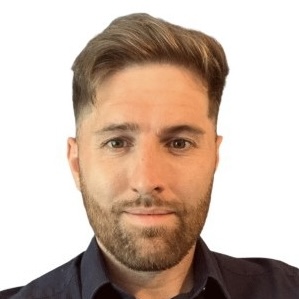
Marc Harris
Head of Insight and Impact, NHS Horizons, United KingdomMarc is the Head of Insight and Impact at Horizons. Marc blends psychological and sociological theory with an extensive background in research and evaluation. Marc holds a PhD in sociology and has published more than 15 academic papers in peer-reviewed journals. These publications span areas such as behaviour change, programme implementation, motivational theory, gamification, alcohol and substance use, physical activity promotion and research ethics. Marc has a passion for applying quantitative and qualitative research methods to real-world settings and using the results to create actionable insights which drive behaviour change. Marc is personally driven to address health inequalities. He grew up in the South Wales Valleys, where fewer people engage in health promoting behaviours and where people live fewer years in good health. Marc aims to use data, research methods and theory to help address these stubborn inequalities which are prevalent in many communities throughout the UK.
Zoë Stockton
Project Manager, NHS Horizons, United KingdomZoë is part of the delivery team at NHS Horizons, focusing primarily on programs on physical inactivity. She has a highly interdisciplinary and varied background starting with her degree in Human Sciences through to joining Horizons. Zoë has a background in mental health, working as a Support Worker for the NHS/Mind in West Essex during the pandemic. She then followed her interests in sustainability to work in a small agri-tech start-up where her role stretching across business, HR, marketing, grant writing and more. Through this she delivered various projects at the forefront of technology and transformation both internally and externally with funding from UKRI. Her experience led to a keen interest in system change and taking a proactive preventative approach to sector issues as well as in the interaction between health and sustainability issues.Co-producing a different future: Why interactions are crucial for large-scale change
Abstract Copy
The session titled ‘Co-producing a different future: why interactions are crucial for large scale change’ will explore how organisations across England are working together to address physical inactivity.
In 2018, the World Health Organization launched the Global Action Plan on Physical Activity (GAPPA), aiming to achieve a 15-per-cent relative reduction in the global prevalence of physical inactivity by 2030. GAPPA provided 20 actionable recommendations to help countries increase levels of physical activity by addressing the cultural, environmental, and individual determinants of inactivity. However, a status report published in 2022 found that progress has been slow and unequal, and the Covid-19 pandemic has further limited progress.
Addressing levels of physical inactivity requires a different approach. There is a need for a much more joined-up, networked and collaborative approach to spread and scale successful programmes, policies and ways of working.
In this session, attendees will have an opportunity to discuss a case study and a new model of large-scale change, which has been developed to guide the approach in England. Delegates will leave the session with a framework that can be adapted to suit their context.
Background: Addressing levels of physical inactivity requires a different approach. There is a need for a much more joined-up, networked and collaborative approach to spread and scale successful programmes, policies and ways of working.
Approach: We applied large-scale change approaches, including network theories to develop a theory of change to guide our work. This has enabled us to accelerate progress by building shared purpose, trust and learning in a multi-stakeholder environment to inform and influence national policy and action. Acting as convenors, we have been able to bring groups together to tackle emergent issues and increase confidence and agency at multiple levels.
What we are learning: This movement has revealed three important lessons about population-level healthcare transformation. Firstly, to achieve breakthrough, highly participatory approaches are needed that co-design potential solutions with those who affect, and are affected by, services. Secondly, transforming services requires action at the micro-, meso-, and macro-level with ongoing convening and connecting of stakeholders to build and maintain shared purpose and trust. Thirdly, by working together, a greater understanding of the tacit knowledge and expertise is possible that enables a proactive approach to ongoing development of the programme.Learning Objectives
- After this session, participants will be able to: Use large-scale engagement to uncover solutions to complex problems in a short time period
- After this session, participants will be able to: Apply a new theoretical model of large-scale change to their work
- After this session, participants will be able to: Rapidly analyse data from large scale events
10.15 - 10.45Video+Poster Gallery, workshop, lunch and networking10.45 - 12.30Session 31- Neighbourhood design for ageing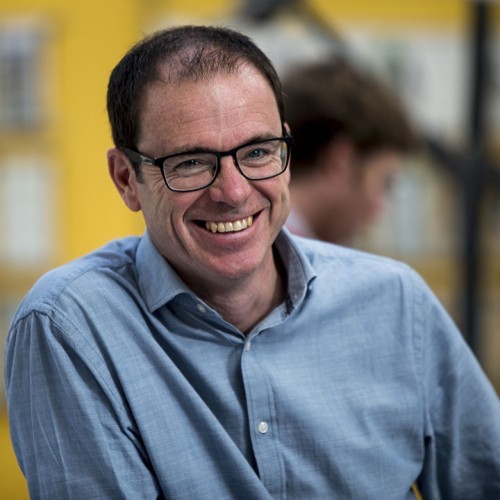
Paul Bell
Principal, Ryder Architecture, United KingdomPaul completed his architectural education at the Mackintosh School of Architecture, Glasgow in 1992 and has led several high profile urban design, health and infrastructure projects. In 2006 he established Ryder’s Glasgow office and led the early development of the Hong Kong office. Prior to joining Ryder, he worked with Terry Farrell for 11 years in London and Hong Kong. Paul has spoken around the world on sustainable healthcare design and blurring the boundaries of healthcare to address health equity. Paul brings his expertise of leading integrated project teams to successfully deliver major healthcare projects. His passion for delivering design of the highest quality is recognised by excellent client testimonials and project award nominations.10.45Exploring the architectures of health: Locating Equity in Ageing Positively (LEAP)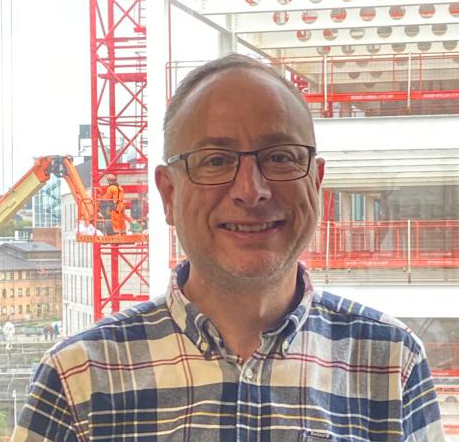
Stefan White
Professor of Architecture, Manchester Metropolitan University, UKProf. White will present preliminary findings from the latest research into understanding and creating age-friendly cities. This interdisciplinary research identifies the key challenges for policymakers, practitioners and communities when trying to make their local neighbourhoods better places to grow older in. It supports approaches to improving the health of local older residents through place-based initiatives, urban planning and housing developments. His research is developing new conceptual models, implementation tools and evaluation processes, helping make place-based public-health interventions more effective. The research is led by the Architectural Research Office (ARO) at the Manchester School of Architecture (MSA), working collaboratively with 30+ healthy ageing researchers across disciplines at Manchester Metropolitan University (HealthyAgeing@MMU).Exploring the architectures of health: Locating Equity in Ageing Positively (LEAP)
Abstract Copy
The relationship between architecture, health inequality and ageing requires a critical redefinition in the 21st century. By 2050, 60 per cent of the world’s population will be living in urban environments with 27 per cent of us projected to be over 65 (OECD). With the World Health Organization starkly observing that health inequalities are ‘killing people on a grand scale’ and the most negatively affected populations in Greater Manchester, for example, suffering 20 years less healthy life expectancy than the UK average, ensuring we can all enjoy ‘a long and healthy life’ (WHO, 2017) is a pressing and complex challenge for both our conceptualisation and implementation of health and care systems, public services and urban planning.
This paper explores the parameters of a new model (LEAP) for Healthy Urban Planning across the Life Course, in a critical response to the WHO Commission on Social Determinants of Health (CSDHH), Healthy Urban Planning (HUP), and Age-Friendly Cities and Communities (AFCC) frameworks, models and guidance. It sets out fundamental theoretical and methodological connections between these globally ratified approaches to whole system public health interventions, urban planning for healthy cities and regional place-health programmes in relation to architectural contributions to equitable urban ageing. This critical interdisciplinary research is constructively underpinned by a series of collaborative implementation practices undertaken by architectural researchers in Greater Manchester over a period of 15 years, to design, implement and evaluate programmes of social, environmental, and physical interventions – improving the lived experience of structurally disadvantaged ‘older’ people in the ‘places’ that they identify as their homes or neighbourhoods.
The research identifies three critical areas of refinement required of existing models to expand our understanding of the mechanisms of health generation in place, as we age and enable more effective responses to health inequalities between groups and locations. First, it argues for relational and productive understandings of place to be embedded within models of the structural and social determination of health [location]. Second it sets out ways in which place interventions may effectively address health inequity [equity], and third, it constructively problematises the notion of healthy places in relation to residential salutogenesis [ageing positively].
Learning Objectives
- understanding the role of place in health
- exploring urban interventions promoting health equity
- supporting community empowerment through participatory planning
11.05Enhancing walkability and wayfinding for individuals with dementia in urban environments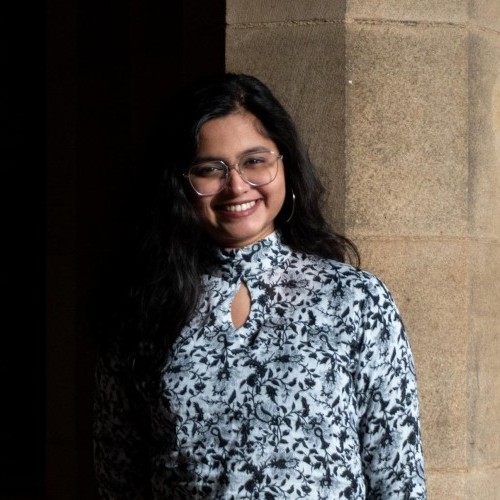
Kavya P Krishnan
Accessibility and universal design expert, Architect, Mobility Mojo, UKAr. Kavya P Krishnan is an architect who holds an MSc in health, wellbeing, and sustainable buildings from University College London’s (UCL) Bartlett School of Environment, Energy & Resources and works as an accessibility and universal design expert at Mobility Mojo. She is dedicated to creating more inclusive and equitable built environments through design and research. Having practised architecture across various Indian cities, she has designed projects and homes focused on improving accessibility and wellbeing. Her research bridges architecture, human psychology, and inclusivity, focusing on enhancing accessibility and cognitive support for diverse communities, particularly dementia and ageing populations in urban and residential settings. Her award-winning funded dissertation at The Bartlett reflects this commitment, building on extensive research since 2019, and has been presented at international conferences, including the Alzheimer’s Association International Conference. Kavya continues to advocate for environments that promote health, equity and inclusion through both academic inquiry and professional practice.Enhancing walkability and wayfinding for individuals with dementia in urban environments
Abstract Copy
The increasing prevalence and impact of dementia present major global health and societal challenges, demanding solutions within the built environment. This study explores how urban environments can enhance wayfinding and walkability for individuals with dementia, promoting independence and wellbeing. Conducted in dementia-friendly neighbourhoods in the UK and Spain, the study integrates desk research, environmental audits, online and walking interviews, and thematic analysis. Building on six core principles – accessibility, distinctiveness, legibility, safety, familiarity, and comfort – it reveals 11 sub-themes critical for improving navigation and spatial orientation.
Key findings highlight the importance of routine-based landmarks, sensory cues such as textured paving, historical references and natural elements in enhancing spatial orientation and comfort. Innovative strategies include colour-coded neighbourhoods, alphabetised layouts, custom shop identifiers, and floor-painted signages, simplifying navigation and reinforcing identity. Participant feedback emphasises shaded seating, reduced barriers and sensory-rich spaces like pedestrianised riverfronts and green areas with water features as essential for intuitive wayfinding, independent mobility and comfort.
This research provides actionable insights for urban planners and policymakers to create dementia-friendly neighbourhoods that support independence and wellbeing. By demonstrating how targeted design interventions improve spatial orientation and walkability, the study advances the field of inclusive urban planning and contributes to healthier, more equitable cities. Although limited by scope, timeline, and the level of involvement of individuals with dementia, the case study findings highlight the potential for such environments to benefit wider populations, including people with disabilities. Future research may explore the role of technology in urban accessibility and evaluate the sustained impact of dementia-friendly design on community health and social inclusion.Learning Objectives
- Understand key design principles and strategies that enhance walkability and wayfinding for individuals with dementia in urban environments
- Evaluate practical, evidence-based strategies for creating dementia-friendly neighbourhoods that enhance independence and improve spatial orientation.
- Explore varied case study city/neighbourhood-based design approaches informed by lived experiences and interdisciplinary insights, including successes, challenges, and barriers, to guide inclusive urban interventions.
11.25Creating age-friendly homes: Research, policy and practice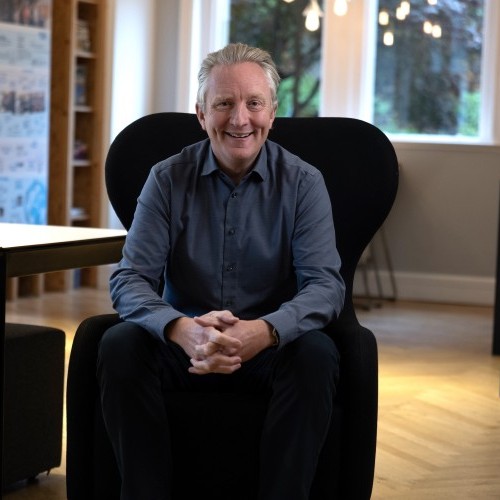
Nigel Saunders
Director, Pozzoni Architecture, UKDirector at Pozzoni Architecture Nigel Saunders has extensive design expertise in the housing sector across all age groups, with a particularly keen interest in multi-generational living. Nigel is also chair of the Greater Manchester Combined Authority’s ‘Housing, Planning & Ageing Group’, which aims to address the city region’s housing options for older people, including creating balanced communities in our towns and cities.
Mark Hammond
Senior Lecturer, Manchester Metropolitan University and Manchester School of Architecture, UKMark is senior lecturer and deputy research lead at Manchester School of Architecture. His research focuses on the intersections between architecture and urban ageing in the home, community and city, with a specific interest in housing inequality and spatial justice. Mark’s research employs participatory and design research methodologies, working with communities of older people to develop ‘age-friendly’ initiatives. Mark also works extensively with local government on policy-engaged research, including a two-year secondment at the Greater Manchester Combined Authority (2018-21), where he worked with the GM Ageing Hub to develop policy and strategy around urban ageing. Mark is currently principal investigator on ‘Co-creating Age-Friendly Social Housing’, a three-year design-research programme investigating how older people and social housing providers can collaborate to develop innovative housing and community models. Other recent research projects include: • ‘Manchester Age-Friendly Neighbourhood’ – a four-year programme that engaged more than 4000 people in the creation and delivery of community action plans across Manchester, and which led to £300,000 of investment in programmes to support older people in four neighbourhoods in Manchester (w/ Southway Housing Trust). • ‘Rightsizing’ project – funded by the Centre for Ageing Better, this uses large-scale data, spatial analysis and workshops to support policymakers to better plan for the diverse needs of older people within neighbourhoods. • ‘Age-Friendly Northern Gateway/Victoria North’ – a study of older people’s experiences of 20 years of failed urban regeneration in Collyhurst, Manchester, and their hopes and concerns about future plans for their neighbourhood (w/ University of Manchester and Newcastle University). • ‘A Design for Life’ – developed as part of his secondment to GMCA, this free ebook challenges urban design professions to find new ways to better address the increasingly diverse needs and aspirations of older people (w/ Pozzoni Architecture). Mark is a fellow of the Higher Education Academy, and is currently Year 2 lead for the architecture atelier in the Master of Architecture programme.
Kelly-Marie Rodgers
Strategic lead – healthy active places, Greater Manchester Moving, UKCreating age-friendly homes: Research, policy and practice
Abstract Copy
In this session, we will explore how we can create more age-friendly healthy homes in our cities and communities, with members of the Greater Manchester Housing, Planning and Ageing group – an interdisciplinary task group aiming to improve the quality and quantity of age-friendly housing in Greater Manchester, UK – providing the presentation commentary.
We will explore how cross-sectoral partnerships between researchers, policymakers and built environment practitioners can better address the diverse housing needs of older people, using practical examples developed over the last five years. We will share examples of good practice, helping us to reflect on how the age-friendly movement can better support the creation of age-inclusive homes.
The speakers will provide an update on the leadership and practical action that is needed to create age-friendly healthy places, cities and city regions by showcasing work from across Greater Manchester. Short case studies will include the healthy neighbourhood scheme at North Manchester General Hospital, and the Co-Creating Age-Friendly Social Housing Project in Greater Manchester. An overview of the Group’s guide, ‘Creating Age-Friendly Developments’, will be a key focus, alongside the benefits of adopting the guidance from a commercial development perspective. We will also explore Greater Manchester's Housing First and Live Well initiatives, and their importance to the city region’s approach to healthy city design.
Learning Objectives
- Innovative approaches to healthy neighbourhood design
- Creating healthy cities: from policy to practice
- The importance of community placemaking for health and wellbeing
11.45How can we improve our local neighbourhood environments to enhance older adult social connectedness?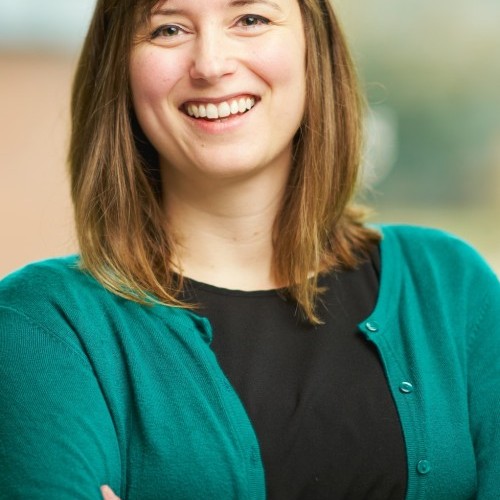
Hannah Grove
Postdoctoral research fellow, Kellogg College, University of Oxford, UKHannah is a postdoctoral research fellow at the Global Centre on Healthcare & Urbanisation at Kellogg College, University of Oxford, and a research associate at the Oxford Institute of Population Ageing. Hannah is an urban health geographer and planner, with an interest in how social and physical environments influence health and wellbeing throughout the lifecourse. With experience that bridges academia, policy and practice, she is interested in how we can co-design environments and communities that promote a good quality of life, whilst recognising and addressing existing socio-spatial injustices and health inequities. Hannah’s research interests span urban health and social geography, healthy urban planning, and geographies of ageing. She is passionate about innovative methods and methodologies, including the use of qualitative, geo-spatial and community-based participatory approaches to understand lived experiences of place. Hannah previously worked as a postdoctoral researcher and assistant professor in human geography at Dublin City University, a research assistant at Queen's University Belfast, and as a planning policy officer. She completed her PhD at the Department of Geography at Maynooth University, exploring how older people in the Greater Dublin Area define and enact ageing well in place.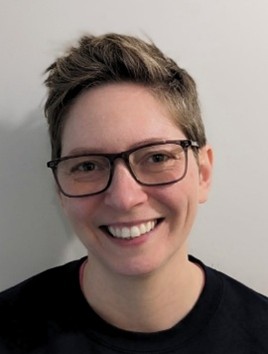
Georgina Everett
Research and impact lead, Re-Engage, UKGeorgina is the research and impact lead at Re-engage, a national UK charity focused on reducing loneliness and isolation for older people over the age of 75. Together with its volunteers and older people, the charity is growing its research work to better understand and address loneliness as we age. Before joining Re-engage four years ago, she worked in communication and media studies; and an increasing focus on audiences led her to move into applied research in the third sector.How can we improve our local neighbourhood environments to enhance older adult social connectedness?
Abstract Copy
Many older adults experience challenges related to social isolation and disconnection while ageing in their local neighbourhoods. It is well recognised that the local environments in which we age can play an important role in determining our health and wellbeing and influence the opportunities we have to socially connect with others. An important challenge for policymakers and service providers concerns how we can design age-friendly environments and plan for older people’s diverse social and mobility needs, while also recognising inequalities in resources and environmental contexts that make social participation in community life easier for some than others.
Planners have the potential to play a vital role in addressing these societal challenges through place-based approaches that enhance the qualities of local environments to support ageing well in place, drawing on age-friendly and healthy urban design principles. To address social isolation and meet the diverse needs of an ageing and unequal society, we need to enhance the ageing and planning policy evidence base to better understand the lived realities of older people and what matters most to them. It is important to capture more intangible details and qualities of placemaking, which are of great importance for health and wellbeing, to ensure that they are valued, prioritised and incorporated within the ageing and planning policy landscapes.
Collaborating with Re-Engage, a charity whose mission is to reduce the loneliness and social isolation of older people, this paper presents findings from a UK-based research project funded by the Royal Town Planning Institute (RTPI) titled ‘Enhancing Environments for Older Adult Social Connectedness (ENOLA-SC)’. This project has combined creative, qualitative and geo-spatial methods, including the use of ‘go-along interviews’ and ‘geo-narratives’ to identify the existing and ideal social worlds of older people, as well as consider the role of their local environment in providing opportunities for social interaction. This community-engaged research offers insight into the lived realities of older people who have experienced social isolation and can help to enhance the evidence base of age-friendly planning policy by recommending those person-in-environment supports and built environment interventions likely to have most impact on older people themselves.
Learning Objectives
- Identify the links between the built environment and older adult social connectedness
- Summarise creative, qualitative and geo-spatial approaches which can be used to better understand the everyday social worlds of older people
- Reflect on the usefulness of these methods to contribute towards the evidence base of their own projects, as well as planning policy more generally
12.05Panel discussion12.30 - 14.00Video+Poster Gallery, workshop, lunch and networking14.00 - 15.30Session 32- Place-based design for mental health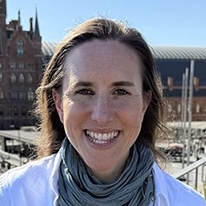
Charlotte Burrows
CEO, Design in Mental Health, UKAn impact-driven leader with a passion for transforming mental health outcomes through design, innovation and collaboration, Charlotte has a background spanning health, housing, social enterprise, and service design. She has spent her career building partnerships that challenge the status quo and champion more equitable, compassionate systems. She brings experience in shaping and delivering cross-sector strategies; from system-wide health equity programmes to innovation ecosystems that secure investment for underrepresented regions. She believes in the power of co-production, the value of lived experience, and the impact of human-centred design.14.00Impact of urban regeneration on population mental health: A longitudinal study in England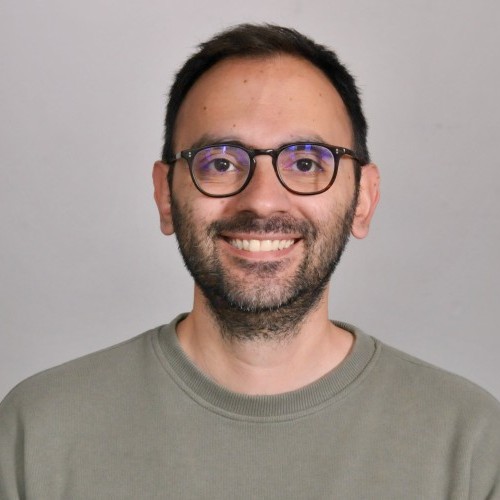
Caglar Koksal
Lecturer in urban planning, University of Manchester, UKCaglar Koksal is a lecturer in urban planning at the University of Manchester, with expertise in spatial planning; planning practice; housing and infrastructure planning; urban governance and policy; and health creation and inequalities. He has led and collaborated on numerous funded research projects at national and international levels, and he co-leads the environment theme within the Healthier Futures Research Platform at the University. His research is grounded in a commitment to evidence-informed, practically engaged scholarship, using both quantitative methods (such as GIS and spatial analysis) and qualitative methods (including policy analysis and elite interviews). Dr Koksal’s broader research and consultancy work includes leadership on projects examining policy design and implementation, as well as collaborative work with local authorities, national government, think tanks, and private-sector consultancies.Impact of urban regeneration on population mental health: A longitudinal study in England
Abstract Copy
Urban redevelopment is widely promoted as a catalyst for social and economic renewal, yet its mental health consequences remain contested because residents do not stay put: some remain, others are priced out, and newcomers arrive. Conventional area-based evaluations, which treat neighbourhoods as static entities, therefore risk blending genuine treatment effects with selective migration and spill-over bias.
In this England-based study, we identified districts that underwent substantial post-devolution regeneration. We then linked these geographies to two national longitudinal surveys (UK Household Longitudinal Study, Annual Population Survey, 2009-2024). Respondents were classified into nine “exposure–migration” groups: stayers, leavers and newcomers in i) regenerated areas, ii) adjacent areas and iii) unaffected areas.
Preliminary results reveal a sharply bifurcated pattern. In-movers to regenerated districts experience significant gains in psychological wellbeing, whereas long-standing residents who are displaced, or who remain but face escalating costs, show measurable deterioration. The aggregate consequence is a widening mental health gap between affluent and disadvantaged populations, camouflaged by headline indicators that treat neighbourhoods as demographically stable.Learning Objectives
- regeneration and mental health
- inclusive growth
- housing and planning
14.20Place-based determinants of youth mental health in a nationally representative Australian sample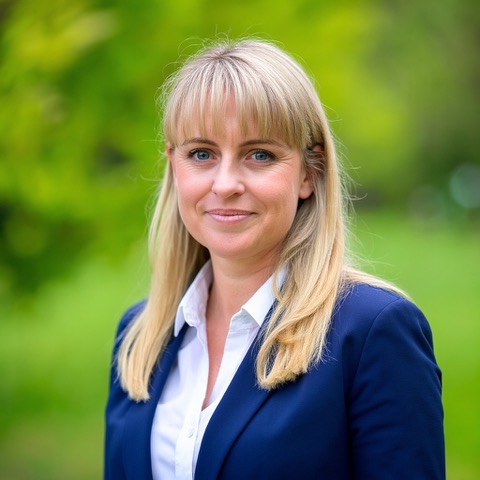
Camilla Sedgwick
Senior project support officer/ researcher, University of Sydney, AustraliaCamilla Sedgwick is a senior project officer at The Matilda Centre for Research in Mental Health and Substance Use at the University of Sydney. She holds a master's of public health (chronic disease prevention) and a bachelor's of education and is a registered secondary school teacher with over 21 years of experience in schools across Australia and the United Kingdom. Camilla’s expertise in health-promoting schools and youth wellbeing has informed curriculum design and special projects for students in high school and college settings. Her recent work focuses on the intersection of social determinants of health, educational outcomes and overall wellbeing. She has contributed to research with young people, priority population groups, government stakeholders and policymakers, contributing to the development of health policy and educational programmes.Place-based determinants of youth mental health in a nationally representative Australian sample
Abstract Copy
Background: Over the past decade, the mental health of young people living in Australia has declined more significantly than in previous generations, reflecting a global trend. Key factors that support youth development and mental wellbeing, such as unsupervised time, social connection and belonging, exercise, self-regulation, and play/leisure are often contingent on access to safe, inclusive public spaces beyond the home and school. In Australia, access to such neighbourhood spaces is frequently shaped by socioeconomic status and regionality factors, leading to disparities in mental health outcomes. Recent research has examined the role of low-cost or free 'third places', to mitigate harm, restore capabilities and build social cohesion. This study investigates the relationship between proximity to recreational spaces and psychological distress among young people.
Method: Participants included 2015 Year 10 students (mean age = 15.74; 43.3 per cent female) from New South Wales, using cross-sectional survey data, including mental health outcomes, behaviour, and postcodes, linked with Australian Bureau of Statistics geographical boundaries and the NSW Government Points of Interest datasets. Linear regressions assessed the relationship between the number of recreational areas (community facilities, cultural places, green/blue spaces, sports amenities, youth centres) within participants’ home and school postcodes and psychological distress, adjusting for sociodemographic and behavioural co-variates (screen time and physical activity). A second model included all recreation area types simultaneously to identify associations.
Results: Analysis based on participants’ home postcodes revealed that, after adjusting for sociodemographic and behavioural co-variates, only youth facilities were significantly associated with reduced psychological distress. When expanding the model to include all recreational facilities, both green and blue spaces along with youth facilities showed a significant association with lower levels of psychological distress. In contrast, no recreational facilities located around schools were significantly associated with psychological distress. Interestingly, results relating to the impact of sports facilities around the home and school environment were mixed.
Conclusion: This study contributes to the growing evidence on the role of place-based factors in shaping youth mental health. Our findings underscore the importance of equitable access to diverse, youth-friendly public spaces as a potential strategy for promoting mental wellbeing. Further research is needed to understand how young people interact with these environments and how design features may inadvertently contribute to psychological distress. These insights have practical implications for urban planning and public health policy on creating environments that support young people’s mental wellbeing.
Learning Objectives
- Understand the relationship between access to recreational spaces and youth mental health outcomes
- Identify disparities in access to youth-friendly public spaces
- Apply the findings to urban planning and public health policy
14.40Rx for social connection – learnings from the BentwayJulia Day
Partner & team director, Gehl, United StatesJulia is a Partner & Director at Gehl, a global urban design and strategy practice. Julia is skilled at developing multi-sector partnerships that highlight the power of place to impact health and community development. With 20 years of experience working with city agencies and community leaders, she has led engagement projects in communities near and far, supporting urban leaders in ensuring people are visible and heard in the city-making process. Julia works across design, strategy, and research methods to demonstrate the integral role streets play as connective, vibrant public spaces.Rx for social connection – learnings from the Bentway
Abstract Copy
As urbanisation accelerates and city living becomes increasingly isolating, the role of public space in fostering social connection has emerged as a critical urban and public health concern. The 2024 report, Rx for Social Connection: Public Space as a Strategy to Combat Loneliness, developed through a partnership between the Bentway, Gehl (New York), and the Dalla Lana School of Public Health at the University of Toronto, explores how public space design and programming can serve as powerful tools to counteract urban loneliness and support mental wellbeing.
This research is grounded in observations and data collected during the Bentway’s 2024 “Softer City” season: an arts and events initiative that positioned Toronto’s underutilised urban infrastructure as a canvas for social engagement. Methodologically, the project combined site-specific behavioural observations, community surveys, and qualitative interviews with artists, designers, and public health experts. These diverse perspectives converged to examine how design elements (e.g., seating, landscaping) and curated programming (e.g., art activations, performances) create social infrastructure that enables meaningful interpersonal encounters.
Key findings from the report demonstrate that well-designed public spaces can mitigate chronic loneliness by encouraging spontaneous social interactions, offering low-barrier opportunities for participation, and making people feel seen and valued in their community. Features such as natural elements and accessible seating consistently promoted lingering and informal gathering, while arts-led interventions acted as powerful social catalysts. Participants reported increased feelings of connection, reduced isolation, and greater engagement with their neighbourhoods as a result of these spatial and programmatic interventions.
Contextualised within broader trends – including Toronto’s alarming status as the loneliest city in Canada and the global recognition of loneliness as a public health crisis – this work repositions parks, sidewalks, and trails as essential components of our health ecosystem. It advocates for a revaluation of public space not merely as recreational infrastructure but as upstream health interventions capable of strengthening civic resilience.
This presentation will share actionable insights for designers, policymakers, and public health practitioners, emphasising that while cities have become harder places to live, the solutions to loneliness are often simple, accessible, and already within our built environment. By centring connection in how we plan and programme public spaces, we can foster stronger, healthier, and more compassionate urban communities.Learning Objectives
- Understand the Role of Public Space in Addressing Urban Loneliness
- Identify Design and Programming Elements That Foster Social Connection
- Apply Cross-Disciplinary Approaches to Public Space Planning
15.00Panel discussion15.30 - 16.00Video+Poster Gallery, coffee and networking16.00 - 17.15Session 33- Culture, museums and community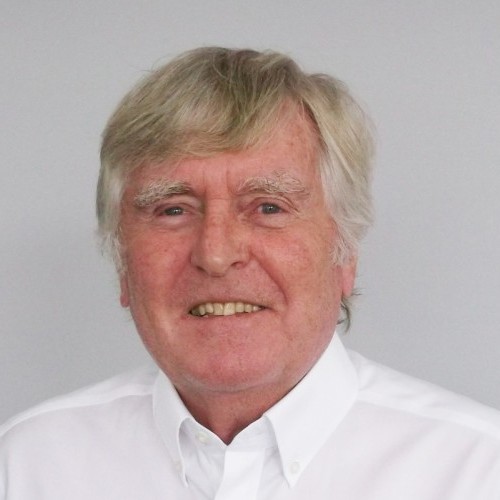
Jim Chapman
Independent design consultant; Visiting professor of architecture, Manchester School of Architecture, UKJim Chapman is a chartered architect and urban designer, with more than 36 years' experience as a consultant delivering a wide range of projects in many sectors. In 2006, he established an independent consultancy, which focuses on supporting and advising clients on the delivery of high-quality projects.16.00House of Memories: Creating resilient neighbourhoods through culture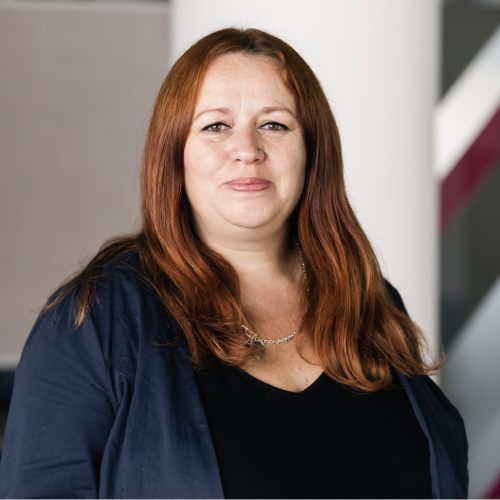
Dawn Carroll
Head of House of Memories Programme, National Museums Liverpool, UKDawn Carroll is the head of the award-winning House of Memories. She leads on the development and delivery of an expanding House of Memories engagement programme, including partnerships, digital training and resources. Dawn has an interest in digital innovation for health, having played a key role in the creation of the ‘My House of Memories app’ and ‘House of Memories On The Road’ a mobile immersive experience for isolated elders in the community. She works with an extensive range of partners, locally, nationally and internationally, and she is a regional representative for the Culture, Health and Wellbeing Alliance.House of Memories: Creating resilient neighbourhoods through culture
Abstract Copy
House of Memories is an award-winning programme designed by National Museums Liverpool to support the healthcare workforce and wider community. It was built as a response to the recognition of museums as community assets that could relieve pressures on traditional and clinical practice. Since launching in 2012, House of Memories has engaged with more than 87,500 individuals across the globe.
We understand the importance of the lives, personal experiences, and sense of home for people living with dementia and the ageing community. Through place-based and person-centred resources, co-designed by members of society, we are able to provide resources to consider the whole person in their care, wherever they reside. Homes and neighbourhoods are the places where we feel the most connected to our surroundings and each other, and we believe that everyone has the right to feel this connection, despite their diagnosis.
Our programme has been designed to bring people’s cultural identity and sense of home into their reality, even in care environments where their possessions and personal belongings have been vastly reduced.
When House of Memories comes to you, we use the power of technology to promote health, wellbeing and movement. Our award-winning and innovative ‘On The Road’ brings 360 cinema into settings to enable people to step into a digital experience that revisits their memories, favourite places, and the familiar sense of home. The free-to-download ‘My House of Memories’ app, which explores objects from our everyday lives, supports elders to connect with their own identities, their sense of self and their loved ones. We also work with Liverpool’s Global Ethnic Majority communities to provide culturally appropriate resources and promote inclusion for the ageing population. These experiences are brought to life and made possible through technology that can bring the urban and rural realm to them.
We know the value and impact this makes to the health of individuals and the practical caring support needed from medical professionals. Through the power of a sense of place, individuals relive memories with the community around them, bringing a sense of wellbeing. The importance of creating a sense of place within the care setting is greater and with more individuals facing isolation, displacement and a lack of identity, House of Memories aims to be part of the solution.Learning Objectives
- The awareness of public programmes and community assets within the heart of neighbourhoods working with the ageing and wider dementia community.
- The importance of providing resources to support the ageing and dementia community from diverse audiences to promote person-centred practice.
- The impact of digital and cultural programmes to the well-being of our local and international communities.
16.20Addressing inequalities through local authority museums in Greater Manchester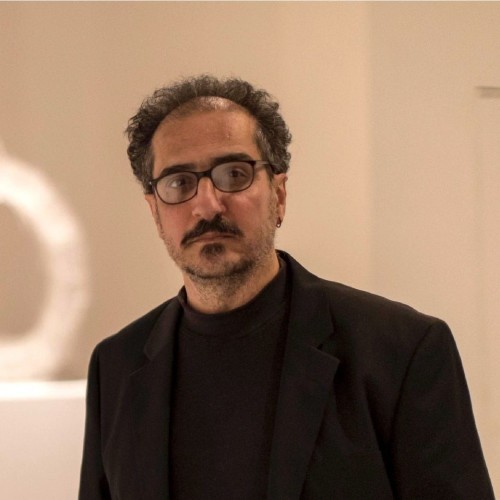
Toni Sant
Associate professor of digital curation, University of Salford, UKDr Toni Sant is the director of the digital curation lab at MediaCityUK and associate professor in the School of Arts, Media, and Creative Technology at the University of Salford. Between 2014 and 2020, he was the artistic director of Spazju Kreattiv, Malta’s national centre for creativity. He has written widely about digital curation and media archaeology, starting with his book 'Franklin Furnace & the Spirit of the Avant Garde: A History of the Future' (Intellect, 2011). Other recent books include 'Documenting Performance: The Context and Processes of Digital Curation and Archiving' (Bloomsbury, 2017), 'The Spazju Kreattiv Art Collection' (Fondazzjoni Kreattività, 2020), and 'Enrique Tabone: Catalogue Raisonné' (Kite Group, 2023). In 2021, he was awarded the National Book Prize of Malta for literary non-fiction for a book of Facebook posts called Jien-Noti-Jien (Klabb Kotba Maltin, 2020), which he co-authored with EU Literature Prize winner Immanuel Mifsud during the first Covid pandemic lockdown. He is also an associate editor of the International Journal of Performance Arts and Digital Media.
Enrique Tabone
Data scientist, University of Salford, United KingdomEnrique Tabone is an artist and data scientist known for her multidisciplinary approach, encompassing both fine art and wearable art under her brand QUEstijl. She explores themes of identity, culture and modernity, often blending traditional and contemporary elements in her work. Tabone is also involved in digital curation, conducting research and teaching at the University of Salford'a Digital Curation Lab. Her work on creative uses of open data in cultural heritage settings has appeared in peer-reviewed journals and various exhibitions.Addressing inequalities through local authority museums in Greater Manchester
Abstract Copy
This presentation explores how local authority-operated museums across Greater Manchester are well positioned to address aspects of health inequalities by acting as accessible, community-rooted spaces for engagement, education, and wellbeing.
Drawing on case studies, partnership initiatives, and qualitative insights, we examine how museums across Greater Manchester are developing inclusive programmes, particularly targeting historically underserved and marginalised communities. We also highlight the role of local museums in fostering a sense of identity, belonging, and intergenerational connection through cultural participation. By aligning with Greater Manchester Combined Authority priorities and co-designing interventions with local stakeholders, museums demonstrate their evolving function as civic institutions contributing to social equity.
The session will discuss the key findings of initial research conducted by the University of Salford’s Digital Curation Lab, challenges, and recommendations for sustaining and scaling this work, providing a compelling model for cultural heritage institutions seeking to make a meaningful impact through social engagement.Learning Objectives
- Understand the role of museums in public health
- Identify effective strategies and partnerships
- Apply insights to practice
16.40Panel discussionEnd of Active and inclusive communities stream -
Community impact
Pier Eight
08.45 - 10.15Session 34- Shifting power through participatory micro-financing: A case study from Lambeth and SouthwarkRasha Rashid
Project officer, The Social Innovation Partnership, UKRasha is an experienced facilitator and researcher at The Social Innovation Partnership (TSIP), working across co-design, evaluation, and learning projects. With eight years’ experience in community development, advocacy, and participatory research, she specialises in creating collaborative and creative spaces for meaningful engagement. She currently manages TSIP’s partnership with Impact on Urban Health, supporting grassroots activism on air pollution in Lambeth and Southwark. She also works with young people to shape and evaluate funding initiatives, including the Co-op Foundation’s Young Gamechangers Fund and Mission 44’s Youth Advisory Board. Rasha is passionate about storytelling for change, community building, and harnessing collective power to create a more just and equitable world.08.45Shifting power through participatory micro-financing: A case study from Lambeth and SouthwarkShifting power through participatory micro-financing: A case study from Lambeth and Southwark
Abstract Copy
Air pollution disproportionately harms communities already facing structural inequalities – yet these same groups are least heard in environmental decision-making. Lambeth and Southwark, for example, experience some of London’s greatest air pollution disparities. Traditional public health funding often overlooks grassroots knowledge and everyday activism, limiting the reach and impact of interventions.
This session presents a case study from Lambeth and Southwark, where The Social Innovation Partnership (TSIP), in collaboration with Impact on Urban Health, piloted a new approach to environmental and racial justice. Amplifying Voices: Cultivating Grassroots Action tested a participatory micro-granting model that shifts decision-making power to local residents. The aim: to resource community-led air pollution solutions, challenge hierarchical funding models, and support the people who are already shaping healthier neighbourhoods.
With £80,000 allocated to the community, a panel of eight local campaigners and residents was recruited and trained to co-design the fund’s criteria, assess applications, and allocate grants. Drawing on lived experience and local insight, the panel raised individual grant amounts from £3000 to £5000 to match community ambition. Sixteen grassroots projects were funded, ranging from creative campaigns to housing justice advocacy. An additional £10,000 was ringfenced to offer tailored aftercare for unsuccessful applicants – recognising the emotional labour and resource gaps often associated with grassroots organising.
The results so far have surfaced a broad and nuanced spectrum of activism – from tenant resident associations to independent artists and hyperlocal organisers, many of whom wouldn’t typically be seen as “campaigners” by institutional funders. The panel’s leadership fostered a values-led, relational process that prioritised care and accessibility. Both applicants and panel members noted how power-sharing built trust, surfaced different forms of knowledge, and enabled more thoughtful decisions. The ability to adjust the process mid-way, including increasing grant sizes, demonstrated the value of community control.
This session – or ‘Airtables’ as we call it – will share practical insights and tensions from our participatory approach. Through facilitated discussion and reflection, participants will explore how to democratise funding processes and embed community values; reflect on uncovering and supporting "hidden activism"; learn how to embed care and sustainability in the movement; and examine power shifts in practice and strategies to avoid replicating hierarchies.
Designed for funders, policymakers and urban health practitioners, this session will offer practical insights to help move decision-making power closer to communities and support more equitable, trust-based solutions to complex urban challenges.
Learning Objectives
- Understand a practical case study of community-led grantmaking in environmental health
- Learn strategies for recognising and resourcing different forms of grassroots activism, including both funding and other forms of support
- Explore how to design collaborative decision-making processes that centre lived experience and promote trust
10.15 - 10.45Video+Poster Gallery, workshop, lunch and networking10.45 - 12.30Session 35- Community participation and inclusion
Lourdes Madigasekera-Elliott
Public health strategic lead: Creating Healthy Places, East Sussex County Council, United KingdomLourdes is a public health professional who leads on creating healthy and sustainable places in East Sussex for East Sussex County Council. Lourdes has a background in international development, programme management, sustainability, political science, and sociology which includes a Masters in African Studies from Oxford University. In England, she co-chairs both the national health in all policies network and the southeast regional healthy places (built and natural environment) network. Lourdes and her team work to embed ‘Health in All Policies’ and lead on ‘Creating Healthy Places’ from a public health perspective. Using a ‘whole systems approach’, Lourdes works to influence decisions made in sectors other than ‘health’ that can positively or negatively affect the wider determinants of health and health inequalities. This includes a specialist focus on ‘planning for health/designing in health’ and planetary health. Lourdes provides expertise on health impact assessments and national strategic infrastructure projects.10.45Creative health: Transforming place-based wellbeing. A case study evaluation of the Healthy Happy Places programme
Sem Lee
Founder, Director, OURI Labs, United KingdomSem Lee is an urban strategist and social entrepreneur with over 11 years’ experience managing sustainability, communications, and design projects. Sem founded OURI Labs in response to the pressing need to understand how to link public health and urban planning. OURI Labs is a health innovation research lab committed to shaping healthy and equitable cities that better serve communities and the planet. The practice specialises in participatory research, evaluation, and design, bridging urban planning policy and public health. Key organisations they have collaborated with include Health Innovation North East North Cumbria, Greater London Authority, University College London (Bartlett), and the Office for Health Improvement and Disparities.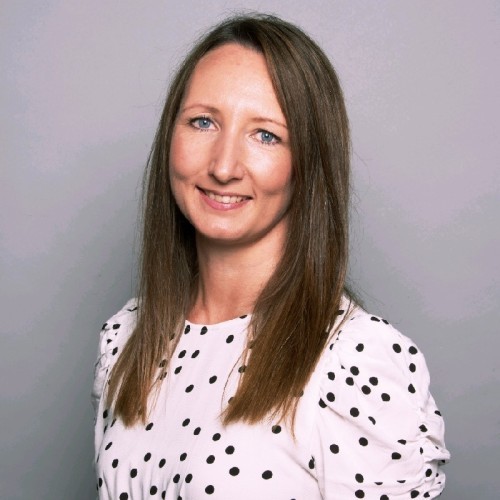
Rachel Turnbull
Founder & Director, Healthy Happy Places, United KingdomFormer Clinical Psychologist turned placemaking thinker and do-er! After a career journey in healthcare, spanning clinical psychology, service improvement, innovation, and project management roles, with a smattering of property development, Vice Chair of a charity, and all kinds of creative courses in between(!), I ventured into the world of design and urban planning. I co-created Healthy Happy Places which is about using creative participation to nudge and inspire the design of places and spaces that are good for our mental health and wellbeing. Acting as a bridge between sectors, exploring ways of putting tactical urbanism (‘where top down meets bottom up’) into action in places with deep inequalities and using a set of evidence based 'ingredients' to guide possibilities in place. Based in a small corner of North East England, a place that holds my home, heart, and heritage - ever curious about the connections between wellbeing, planning, design and the community as equal partners.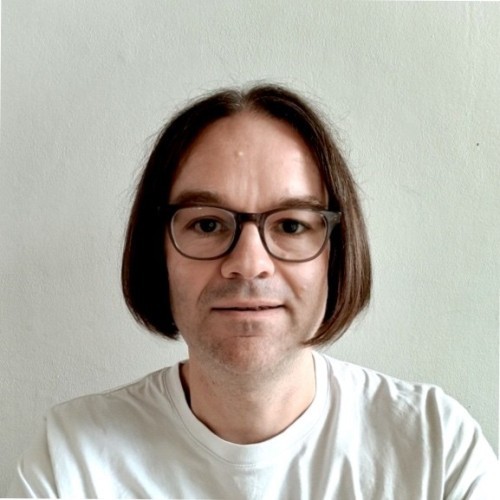
Mark Drane
Founder and director, Urban Habitats, UKMark is an experienced practitioner and researcher with 20 years’ experience. He works across the fields of public health, urbanism, and architecture. His work addresses the wider determinants of health, focused on promoting holistic wellbeing, and reducing health inequities. His doctoral research, Healthy Streetlife, undertaken during the Covid-19 pandemic, highlights the important role of streets as health settings. Mark is a practitioner and founded Urban Habitats in 2018, putting research into action in local places. He is a board member at Green Squirrel, a social enterprise with a vision for caring communities. Mark has 20+ years’ experience in industry, having contributed to the delivery of over $2 billion of social infrastructure. Now his passion is to fuse practice and research with evidence-informed, co-created, and community-based interventions for human and planetary health. Happiest while on a bicycle, Mark is an optimistic gardener and lives in Cardiff, Wales with his family.Creative health: Transforming place-based wellbeing. A case study evaluation of the Healthy Happy Places programme
Abstract Copy
Health inequity in the UK is increasing and existing preventive health measures are insufficient. Creative health approaches are evidenced as effective, especially when seeking to create heath in communities with greatest health needs. Policymakers, practitioners, and industry face pressure to deliver quantity and quality in housing yet failures to meaningfully and authentically engage communities puts these aims at risk and, in turn, fails to support community health and wellbeing.
The combination of creative health with health-focused placemaking is one approach that represents an emerging frontier in addressing wider determinants of health and authentic community involvement. The Healthy Happy Places programme piloted these methods (2021-2024) through interventions (n=6), aiming to inform development of a sustainable innovation hub in the North East and North Cumbria footprint.
From October to December 2024 an independent evaluation of the Healthy Happy Places programme used an integrated evaluation framework, including stakeholder interviews and documentary analysis, to assess the impact of and learning from the programme. This paper uses a case-study method to evaluate the wider role for creative health within place-based approaches to health.
Findings include:
• integrating creative health approaches is important for effective cross-sectoral collaboration;
• creative methods enhance community engagement and the inclusion of lived experience;
• programme participants identify the importance of creative approaches as valuable to cross-sector and transdisciplinary working;
• robust cross-sectoral and departmental collaboration are a critical success factor in advancing a healthy places agenda;
• governance structures established within local authorities and healthcare organisations are critical to success; and
• effectively bridging organisational silos leads to greater sustainability and impact.
Future challenges to address include a particular focus on the role of evidence both for creative health interventions and understanding among stakeholders of appropriate evaluation frameworks for complex interventions in complex systems.
As the UK goes forward delivering ambitious housing targets with renewed emphasis on quality and health outcomes, creative health methodologies offer valuable tools for both engagement and implementation at all levels of policy and practice. Embedding creative health approaches within planning and design frameworks could transform how health is integrated into housing and urban development, shifting from transactional consultation that risks harm to health, to meaningful co-creation that supports health creation.
Recommendations are made for policy, practice and future research. These include: investment in evaluation frameworks; integration of creative health methods; and recognition of the role of creative practitioners. Creative health is a valuable component for successful interdisciplinary collaboration in health-centred urban design.Learning Objectives
- 1. The role of creative health in place-based approaches to health creation
- 2. Benefits of creative health approaches based on a case study example
- 3. Importance of increasing capacity / understanding of evaluation methods and role of evidence within creative health and complex interventions in complex systems
11.05Enhancing wellbeing through evidence: Insights from the Ebbsfleet Garden City Annual Resident Satisfaction Survey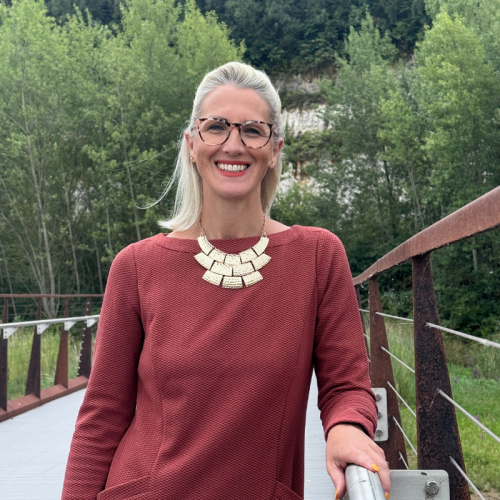
Mary Rouse
Community development manager, Ebbsfleet Development Corporation, UKMary Rouse is a dedicated community development professional with over 20 years of experience across health, education, housing, and social care. As Community Development Manager at Ebbsfleet Development Corporation, she ensures residents and stakeholders actively shape the future of Ebbsfleet Garden City through co-design and inclusive placemaking. Mary leads initiatives such as a network of 14 community gardens, a behaviour-change app with nearly 4,000 users, and the development of a volunteer network and training programme. She also supports the Development Corporation’s strategic planning through research and evaluation. Previously, she developed a proposal for a pioneering Health and Wellbeing Hub, collaborating with NHS Trusts and ICBs to create integrated service models. Mary holds an MSc in Healthcare Management, a BA in Philosophy from Cambridge, and is PRINCE2 certified. Beyond her role, she is a charity trustee, former CIC founder, and youth worker, committed to equity and community empowerment through inclusive leadership.Enhancing wellbeing through evidence: Insights from the Ebbsfleet Garden City Annual Resident Satisfaction Survey
Abstract Copy
Since its inception, Ebbsfleet Development Corporation has aimed to prioritise health and wellbeing at the heart of its planning, development, and ongoing place management. Central to this vision is the Annual Resident Satisfaction Survey – a comprehensive and evolving tool designed to capture the lived experiences, priorities, and wellbeing of residents. Now in its fourth iteration, the survey provides an essential evidence base to inform both strategic decisions and on-the-ground interventions.
The survey achieves significant response rates across all neighbourhoods in the Garden City, providing a representative and nuanced understanding of residents' satisfaction with their local environment, perceptions of safety, social cohesion, and access to health-promoting infrastructure and activities. In recent iterations, questions have increasingly focused on physical activity, mental wellbeing, opportunities for volunteering, and the perceived impact of community initiatives.
Findings from the survey have directly informed the design and delivery of two key intervention programmes: a targeted suite of physical activity initiatives and a volunteering development programme. Both were co-produced with local stakeholders and residents, responding to identified needs for greater access to inclusive, low-cost exercise opportunities, and more structured pathways for community involvement.
The physical activity programme now includes outdoor fitness sessions, inclusive cycling initiatives, walking groups, and school-based active travel schemes. Early evaluation shows a marked increase in resident participation in physical activity, particularly among women, older adults, and people with long-term health conditions. The volunteering programme will support both ad hoc and regular involvement, from green space maintenance to youth mentoring, building social capital, and enhancing community resilience.
This paper will present the methodological approach underpinning the survey, highlights key trends and insights from recent years, and demonstrates how data has been translated into actionable programmes that support both individual and community-level health outcomes. We will reflect on the importance of embedding continuous feedback mechanisms within new developments, the role of robust data in shaping place-based health interventions, and the transferable lessons for other emerging healthy places.
The Ebbsfleet experience underscores the value of participatory, data-led design in delivering on the promise of healthy placemaking – where resident voices not only shape priorities but drive meaningful, measurable change.Learning Objectives
- Demonstrate how longitudinal resident satisfaction data can inform place-based health interventions Attendees will learn how consistent, high-quality survey data in Ebbsfleet Garden City has guided the design and implementation of tailored programmes that
- Explore the role of community feedback in shaping inclusive physical activity and volunteering programmes Participants will gain insight into how resident-led insights were used to co-produce initiatives that promote wellbeing, social cohesion, and long-te
- Share practical strategies for embedding evidence-led participatory processes in the planning and management of healthy new communities The session will provide actionable takeaways for other urban developments aiming to use robust local data to foster hea
11.25Research as a tool for change: Participatory community research and the Nag’s Head healthy homes campaign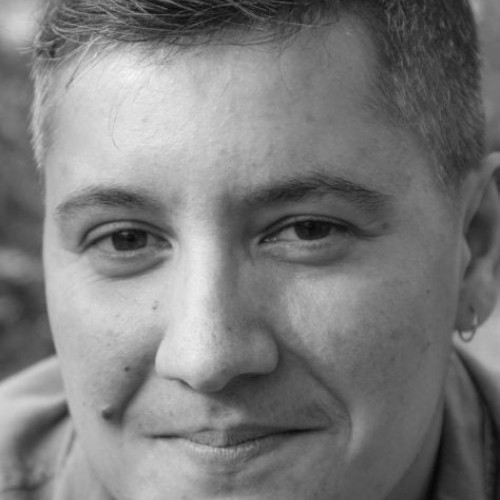
Hil Aked
Research and policy manager, Medact, UKHil Aked (they/he) is a writer, investigative researcher and organiser with a background in political sociology whose work has appeared in the Guardian, Independent, Sky News and Al Jazeera, as well as Pluto Press, Bloomsbury, and the journal Bioethics. Their first book Friends of Israel: The Backlash Against Palestine Solidarity, published by Verso, was shortlisted for the Bread & Roses Award 2024.Research as a tool for change: Participatory community research and the Nag’s Head healthy homes campaign
Abstract Copy
Background: The housing crisis has long been a major driver of ill health in Britain, as a result of political choices made by successive governments. While top-down change led by legislators and policymakers remains slow, some communities bearing the brunt of the health impacts are taking matters into their own hands to bring about the changes they urgently need.
Purpose: With their tenacious campaign against Peabody, one of Britain’s biggest landlords, social tenants on the Nag’s Head estate in Tower Hamlets, east London, have exemplified this trend, winning significant changes and inspiring renters around the country in the process. Supported by Medact and the London Renters Union, tenants deployed all tools at their disposal including organising tactics, media campaigning, and research. This paper focuses on how tenants co-produced a research report documenting the poor housing conditions (including widespread mould and damp) at the root of significant ill health (including a high prevalence of respiratory conditions) on their estate.
Methods and results: The paper will describe how tenants and health professionals conducted housing and health surveys with 37 households, representing 25 per cent of social tenancy households on the estate, alongside interviews and direct observation. Long-term organising work pre-dated the research and built the foundational trusting relationships that made the research possible and ensured tenants were meaningfully involved throughout, including door-knocking and survey delivery. The results were striking: 95 per cent of households reported visible mould, 83 per cent reported damp, and 58 per cent reported that someone in their home had developed a respiratory condition since moving in. These findings gained national media attention and led to Peabody allocating £3 million for estate improvements and repairs.
Implications: We believe that the work provides a case study of how tenants can use research tool for change in their campaigns but also highlights the need to democratise and distribute the means of research production – the tools, resources and confidence to conduct research – so that the marginalised groups most impacted by health inequalities can design and lead work narrating their own lives. We will argue against the myth of “objectivity”, suggesting that rigorous research need not be conceptualised as a neutral or detached process and can instead be explicitly engaged and situated. Indeed, the Nag’s Head case study illustrates just how powerful research embedded in, emerging from, and serving the needs of, community organising can prove. We will also share the latest developments and progress of the campaign for retrofit of the estate.
Learning Objectives
- Learn how rigorous research and community organising can reinforce each other to influence housing policy and practices
- Understand the importance of relationship- and trust-building in delivering impactful, ethical, participatory research in partnership with communities
- Understand research as something done with and for communities and rooted in real experiences, not as something “objective,” “neutral”, or detached from the people it affects
11.45Protect Our Places coalition: Linking local struggles to facilitate more just London-wide urban planning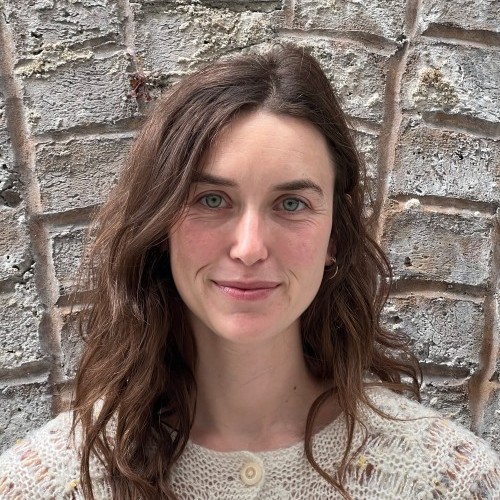
Sarah Goldzweig
Research and policy officer, Latin Elephant, UKSince 2021, Sarah has worked for Latin Elephant, a London-based charity that works to support migrant and racialised communities and sole traders impacted by planning, regeneration and gentrification. She began her work by directly supporting traders who were displaced by the regeneration of the Elephant and Castle Shopping Centre. Since joining, she has also contributed to the organisation’s research projects and policy responses. From 2023, Sarah has facilitated Protect Our Places (POP), a coalition of London-based campaigns, each fighting to preserve the vibrant essence of their beloved town centres, markets and affordable retail spaces in the face of encroaching gentrification. Sarah is also pursuing a PhD in planning at the UCL Bartlett School of Planning, where she is studying the relationship between ‘official’ and grassroots planning stories to investigate how the gentrification of London’s affordable retail spaces and markets represents the racialised displacement of social and cultural infrastructures.Protect Our Places coalition: Linking local struggles to facilitate more just London-wide urban planning
Abstract Copy
Background: In London and elsewhere, local markets and affordable retail spaces play vital economic, social and cultural roles, especially for local communities facing ongoing marginalisation, racialisation, and exclusion. Yet these spaces – and their situated relevance – are, despite long-term grassroots campaigning, often overlooked in planning policy and disproportionately threatened by regeneration.
Purpose: Protect Our Places (POP) is a pan-London coalition convened in 2022 by Latin Elephant, which has for over a decade supported migrant and minoritised traders at Elephant & Castle in Southwark, London to navigate planning processes and regeneration-induced displacement. POP brings together campaigns and organisations resisting the displacement of affordable local markets and retail spaces. By connecting site-specific struggles with London-wide policy, POP is developing a community-led approach to urban change, one that protects town centres, markets and community spaces from speculative development and the displacement and erasure of marginalised communities.
Methods: POP meets regularly to share local concerns and city-wide issues, including policy. Through the coalition, Latin Elephant facilitates expert-led workshops on topics like commercial leases, planning rights, community asset listings, and social value accounting. The coalition also supports members to respond, individually and collectively, to planning applications and consultations.
Results: Coalition members report that POP has strengthened their local organising and advocacy. They see POP’s work shaping wider policy discussions, with its influence recognised in the 2025 London Assembly report on ‘Social Value in Planning and Regeneration’.
Implications: POP offers a replicable model, but sustaining it requires resources and recognition. Key lessons include:
a) the need for resources to link local knowledge to policy change: Community campaigns must have consistent access to funding and relevant expertise to sustain local, grounded work while engaging at a broader scale; and
b) the need for policy spaces that welcome lived experience – policymakers must create real opportunities for communities to shape how social value is defined, measured and protected, so that spaces serving locally defined purposes are protected.Learning Objectives
- To understand why markets and affordable retail spaces matter for community well-being and how to protect them.
- To understand how pan-city coalition work that brings together different communities can facilitate broad-based community participation in the planning process and in shaping urban change.
- To understand how how funders and local government can support effective pan-city community-led coalitions that protect contextually-specific understandings of social value and tackle racialised disparities in regeneration.
12.05Panel discussion12.30 - 14.00Video+Poster Gallery, workshop, lunch and networking14.00 - 15.30Session 36- Air quality, equity and health
Yonette F. Thomas PhD
Founder and president, UrbanHealth360, USADr. Yonette Felicity Thomas is the founder and president of UrbanHealth360, an organization of multidisciplinary thinkers centered on a people-oriented, community-focused approach to urban health. Dr. Thomas is a globally acknowledged thought leader, urban health champion, and an advocate for valuing the health of women and girls as an economic imperative. A social epidemiologist/medical sociologist by training, she has served as the chief of Epidemiology at the National Institute on Drug Abuse in the National Institutes of Health, held academic positions at University of Miami Miller School of Medicine and Howard University, and as a vice president for research. She founded Borjoner International and Strategic Transitions to influence the progress, health, and wellbeing of individuals and communities across the world. As a founding board member of Women’s Economic Imperative (WEI), she leads the organization’s focus on the health of women and girls as an economic value. Her work as global advisor for Evidence for Sustainable Human Development Systems in Africa (EVIHDAF) and the Centre for Urban Health and Development within the Asian Institute of Poverty Alleviation (CUHD-AIPA) extends her focus on the global south and the realization of the Sustainable Development Goals in this last decade. She is the Associate Editor for Women and Girls for Cities & Health. She is a founding board member of the International Society for Urban Health (ISUH) and recently led the organization into sustainability by serving as the inaugural executive director (as a board member) and has served as a science advisor for urban health to the New York Academy of Medicine. She is a founding board member and former vice president of the Interdisciplinary Association for Population Health Science (IAPHS) and served on the Steering Committee of the National Hispanic Science Network on Drug Abuse for more than a decade. She served on the National Academy of Sciences Committee on Revisions to the Common Rule for the Protection of Human Subjects in Research in the Behavioral and Social Sciences. Her primary research and publications have focused on the social determinants of health, health disparities, the health of women and girls as an economic value, the social epidemiology of drug abuse and HIV/AIDS and the link with geography, including edited volumes: Geography and Drug Addiction, Crime, HIV, and Health: intersections of Criminal Justice and Public Health Concerns.14.00Air is kin: Lived experience as a health metric in the advocacy for clean air
Araceli Camargo
Head of science, the Centric Lab, UKAraceli Camargo hold and MSc in cognitive neuroscience from King’s College London. Her area of study was in the attentional differences for those experience autism, this work was part of the ERASMUS grant and project on autism, one of the most comprehensive study cohorts in autism. Araceli then moved on to found Centric Lab alongside scientists from University College London. Her line of work is now focused on the neuroendocrine system as a lens to examine the physiological link between health and place. She has published several studies on the subject, such as Neuroscience, Urban Regeneration, and Urban Health, Biodiversity and Human Health, and Twenty Important Research Questions in Microbial Exposure and Social Equity.Air is kin: Lived experience as a health metric in the advocacy for clean air
Abstract Copy
Background: PM2.5 quantifies the amount of air pollution in the air but fails to capture how pollution affects the daily lived experience and health, particularly in communities already burdened by environmental and social stressors. In places like Merseyside, Southall and Walthamstow, residents have long described symptoms, stress and social disruption caused by industrial polluters, yet these harms remain largely invisible to policymakers.
Purpose: Air is Kin is a two-part programme by UK-based Centric Lab designed 1) to strengthen clean air advocacy through ecological health and civic education; and 2) to develop and validate new methodologies for capturing health impacts based on lived experience.
Methods: Air is Kin Academy is a digital platform offering self-guided workshops for anyone, co-created with community advocates, doctors, and scientists to build environmental justice and health literacy. It has been piloted with communities in Merseyside, Southall and Walthamstow, places that are at the sharp edge of environmental and health inequalities. A second strand, a protocol study commencing later this year, will use weekly surveys to track symptoms, disruptions and emotional impacts linked to air pollution exposure. Together, these approaches contribute to what we call an “infrastructure of empathy”: a system for listening to communities experiencing pain now, rather than waiting for multi-year studies.
Results: The work is in its early stages but lessons so far include: PM2.5 and similar metrics reflect pollution levels, not health outcomes; and lived experience is an important and valid source of health data, but is systematically ignored. Communities report not just physical symptoms, from nosebleeds, nausea, and fatigue, but also mental health issues, such as anxiety, fear, a loss of safety, dignity, and connection to place. Many residents are pressured to accept polluters due to economic need, even as they are the first to sound the alarm. Current justice tools, such as lawsuits, rarely prevent harm or repair long-term health and social consequences.Learning Objectives
- Recognise the limitations of PM2.5 as a health metric, and why it fails to reflect the full impact of air pollution, particularly in communities facing multiple environmental and social stressors.
- Imagine a policy infrastructure that values lived experience (an "infrastructure of empathy") by using community-generated health data and community-defined harm to enable timely, preventative action without relying solely on years-long studies.
- Explore what it would mean to create health reparations, infrastructure for community led healing. Which moves justice beyond monetary compensation and toward healing and dignity.
14.20From data to dialogue: AWAIR’s co-designed approach displaying air quality information for public health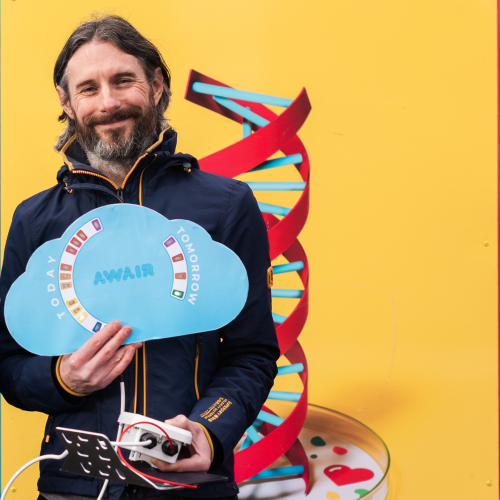
Andrew Grieve
Air quality technologist, Imperial College London, UKAndrew is an air quality scientist with a passion for harnessing technology to expand access to air quality information. Over the course of a 20-year career at the heart of air quality monitoring and management in London, he has led the development of pioneering apps, websites, widgets, and now with AWAIR, the UK’s first dedicated outdoor air quality display.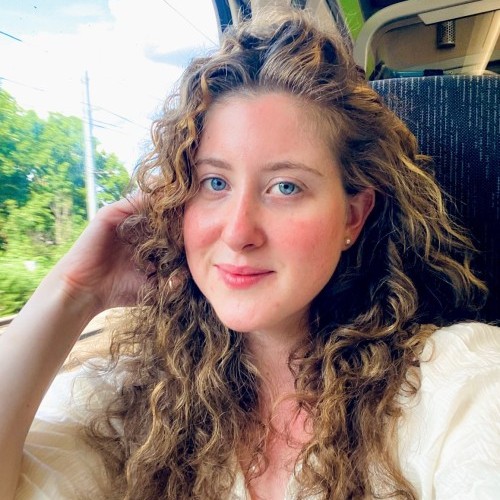
Kayla Schulte
MRC Centre Early Career research fellow, Imperial College London, UKKayla's research draws on sociological, human geography, and science, technology and society (STS) theory to explore engagement with emerging mobile apps, sensors and other digitally enabled sources of real-time air quality information. Methodologically, she specialises in participatory approaches to research, and how to blend quantitative and quantitative data to support more equitable air quality governance.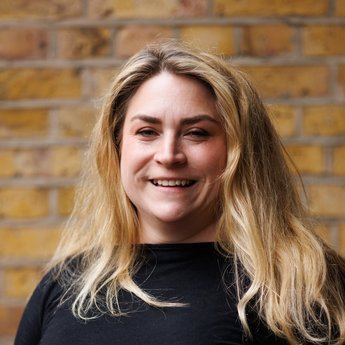
Katie Pitts
Associate, Onpurpose, UKFrom data to dialogue: AWAIR’s co-designed approach displaying air quality information for public health
Abstract Copy
Background: Air pollution is a major public health issue, contributing to millions of premature deaths each year worldwide. Yet, air quality data remains inaccessible or difficult to act on for many communities. AWAIR addresses this by enabling action on the twin challenge of short and long-term exposure, particularly among vulnerable and excluded groups in the UK.
Purpose: AWAIR intervenes on this public health data and information accessibility gap through the co-design and deployment of outdoor air quality displays across three neighbourhoods in London. By placing information into the public realm, AWAIR aims to drive transformational change in how health-protective air pollution information is accessed, understood and acted on by residents.
Methods: This project pilots an innovative method aimed at improving community health by addressing both short-term peaks in air pollution and long-term exposure. It is specifically targeted towards displaying intuitive, actionable real-time and forecast air pollution information in the public realm. By making this information accessible to those without access to digital sources of information, such as the young and elderly, AWAIR enables health-protective actions during episodes of pollution, while also raising broader awareness of the need to reduce emissions. Displays and accompanying information were co-designed with residents from three London communities to ensure public environmental communications reflect local knowledge, voices, and lived experiences. The model also includes the recruitment of two ‘community champions’ per area, as trusted local advocates helping to spark grassroots conversations and build lasting community engagement. Forty-five AWAIR displays are currently placed throughout the three neighbourhoods, alongside three in hospitals, five in GP surgeries, one in a train station and one in a theatre.
Results: Public interactions and perceptions of the displays are currently under evaluation by the research team at Imperial College London. Preliminary results reinforce the value of place-based community-led public air pollution displays in fostering local dialogue about air quality and collective mitigation efforts. This includes recurring mention by residents that checking the display has become a part of their daily lives.
Implications: Locating displays inside is rapidly becoming a new growth area for AWAIR, reaching new audiences and allowing air quality to be woven into the fabric of communities, illuminating an avenue for future work and research. By combining technology, design, and community involvement, the AWAIR model offers a scalable solution with the potential to transform how air quality is understood and acted on in communities across the UK and beyond.
Learning Objectives
- Air pollution data
- Participatory methods
- Facilitating community involvement
14.40Live + Breathe: Amplifying community voices for clean air, joyful neighbourhoods, and healthier futures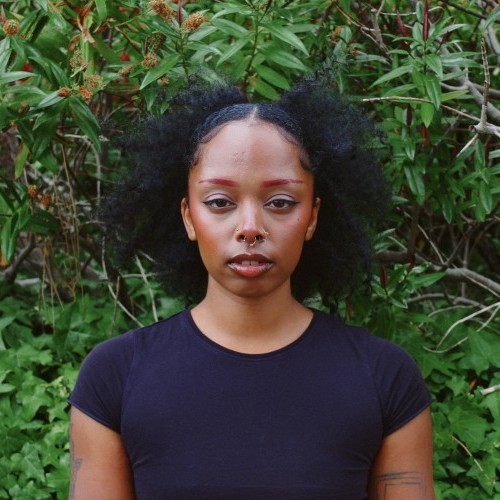
Jayda David
Projects and youth consultant, LIVE + BREATHE, UKJayda David is Projects and Youth Consultant at LIVE + BREATHE, having had over 5 years of experience in youth work and facilitation across her home city of London. Jayda was the voice and face of LIVE + BREATHE’s launch video with her original poem “Breathe Like You” highlighting the aims and community spirit behind the launch in 2022. As an acclaimed poet and spoken word artist, Jayda’s poetry centres around social and racial politics, and she regularly delivers workshops around Mental Health, Black British History, Climate action, and more. Her work and art has been studied at the University of Aberdeen as part of the English Literature degree, she was invited by the United Nations to be a global BreatheLife campaign voice and her poem for Ella Roberta Adoo Kissi Debrah was selected by the World Health Organisation to be performed at their Second Conference on Air Pollution and Health in Cartagena, Columbia.Ssega Kiwanuka
Founder, LIVE + BREATHE, UKLove Ssega is a musician, artist and founder of acclaimed arts-led clean air organisation LIVE + BREATHE. His work, including LIVE + BREATHE, blurs the lines of civic engagement, understanding, activism and hope. As an artist has performed on stages, from Glastonbury to Tokyo, with music premieres across BBC Radio 1, 3 to 6Music. Love Ssega’s multi-arts works have been commissioned by the National Gallery, Royal Shakespeare Company and Serpentine amongst others, with visual art exhibited internationally at MoMA PS1 and MIT Museum. He was founding frontman and songwriter of Clean Bandit and is currently Southbank Centre Associate Artist 2024-2027. He was an official host for UN COP26 and is a Trustee of Brian Eno-led music and climate charity EarthPercent. LIVE + BREATHE is a Black-led non-profit that uses the power of art and culture to champion under-represented voices and community calls for clean air. As an organisation LIVE + BREATHE commissioned work has been performed in the Houses of Parliament, collaborated with Philharmonia Orchestra, shown in global superstar Billie Eilish’s Overheated at The O2 and featured as part of London College of Communication (UAL) Design School taught syllabus. Free community summer events across Southwark and Lambeth have received coverage in local newspapers and also BBC Radio 4, ITV London News and BBC London. Through LIVE + BREATHE local residents become educators and artists act as resonators, centring community-first empowerment, positive futures and joy. LIVE + BREATHE was nominated for the very first national Creative Change-makers Award by Sheila McKechnie Foundation in 2024.Live + Breathe: Amplifying community voices for clean air, joyful neighbourhoods, and healthier futures
Abstract Copy
Background: Air pollution causes 4000 premature deaths in London each year and disproportionately affects economically disadvantaged people and communities of colour. While public awareness is rising, action hasn’t met the scale of the crisis, due in part to politicisation, technical framing, and the underrepresentation of those most affected. Yet when people understand the personal impact, they overwhelmingly support change.
Purpose: Live + Breathe (L+B) is cultivating a new kind of civic power. This Black-led, community-rooted movement began in Lambeth and Southwark, using art, culture and outdoor activity to make air quality feel personal, local and urgent. By supporting grassroots groups as campaign leaders, rather than speaking for them, L+B builds capacity, raises awareness, and reframes clean air as an issue of joy, justice, and community futures.
Methods: L+B supports a network of South London partners, including Poetic Unity, CeCe Skates, Peace Ballers, and Orii Community, to lead their own public activations. Each partner receives tailored support: media training; messaging tools; funding; and policy context. L+B’s tiered model segments engagement into amplifiers, supporters and champions, ensuring everyone can contribute meaningfully, while building leadership over time. Activities range from youth football festivals and protest skates to manifesto films and bike rides. L+B also partners with institutions like Southbank Centre and Royal Opera House, and helps lift local voices into national spaces, engaging figures like Sir Keir Starmer, Afzal Khan MP, and Deputy Mayor Mete Coban MBE. Most recently, L+B’s evolution into an independent CIC is supporting its commitment to long-term community leadership, resourcing, and scale.
Results: More than 1500 Londoners have taken part in L+B events, including 800-plus in 2024. Its award-winning work has been featured by ITV, BBC London, and BBC4. The campaign’s creative output reached more than 478,000 people. Advocacy actions include a public manifesto, an open letter signed by 25 organisations, and a poem performed in Parliament. Eleven community partners have received training and are now actively engaging local councillors and MPs, some even considering public office.
Implications: As Britain risks the hollowing out of its high streets, homes, and civic life, L+B asks: what would it take to build cities designed for life, not just investment? Healthier cities aren’t just designed, they’re co-created. By centring local voice, joyful public life, and creative advocacy, the movement is helping unlock civic imagination and political will for a cleaner, fairer urban future.Learning Objectives
- Recognise the urgency of the moment by connecting the UK’s health and housing crises to environmental injustice and urban planning failures.
- Reclaim a sense of civic possibility through Live + Breathe’s optimism-fuelled approach, grounded in the belief that the skills and imagination to build healthier cities already exist within communities.
- Learn from a case study in community power-building in Lambeth and Southwark, where a grassroots movement has mobilised creative, cultural, and place-based action for clean air, and is now scaling through its transition from campaign to independent CIC.
15.00Panel discussion15.30 - 16.00Video+Poster Gallery, coffee and networking16.00 - 17.00Session 37- Community-led regeneration
Sem Lee
Founder, Director, OURI Labs, United KingdomSem Lee is an urban strategist and social entrepreneur with over 11 years’ experience managing sustainability, communications, and design projects. Sem founded OURI Labs in response to the pressing need to understand how to link public health and urban planning. OURI Labs is a health innovation research lab committed to shaping healthy and equitable cities that better serve communities and the planet. The practice specialises in participatory research, evaluation, and design, bridging urban planning policy and public health. Key organisations they have collaborated with include Health Innovation North East North Cumbria, Greater London Authority, University College London (Bartlett), and the Office for Health Improvement and Disparities.16.00Creating Peckham Palms: An alternative development model for gentrifying neighbourhoods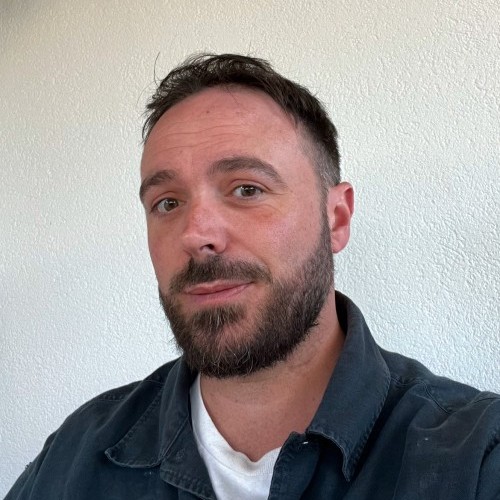
Paul Smyth
Director, Peckham Palms, UKPaul is a social entrepreneur & artist working variously as a Creative & Commercial Director or CEO across the businesses he has cofounded. He is a cofounder, Director and part owner of Peckham Palms, Mission Kitchen, Makerversity (BCorp), 50m and the art & social practice Something & Son. In 2024 he cofounded two new businesses – Setlist and Camden Urban Farm which will open in 2025 and 2027. Together these businesses support over 600 small entrepreneurs - working across food, design, art, fashion, engineering, innovation and in the case of Peckham Palms - Black hair styling, retail and creative practices. The businesses have a combined turnover of £2.5m and operate 35,000 sqft of workspace, making and retail space. The group of impact driven organisations all enjoy long term partnerships with a range of third sector organisations to provide support, free and subsidised workspace and training. Alongside Cyndi Anafo, Paul is a co founder of Peckham Palms and part of the team that tendered to support Southwark Council to reimagine the site in 2014. Together they have developed the space from some empty garages to the mission driven community organisation that The Palms is today. Providing London’s only business retail and workspace designed from the bottom up to support Black women in business and to safeguard the future of Black hair styling in Peckham. We aim to present an alternative to displacement via gentrification and safeguard a vital community space and local service. Paul has 18 years of experience in founding and operating social businesses that support small businesses - with a passion for supporting everyday, hands-on, making and creative businesses - where people need tools, facilities and a supportive community to bring a business idea to life. His first job at 16 was running his own handyman business and the belief in the power of entrepreneurship and hands on work to give meaning and joy to life remains core to his work. The creation of new organizations through co-founding allows each organisation to work authentically and purposefully with its community and allows co-created ownership models that are led locally, sensitive and appropriate to each social and placemaking challenge. As an artist (working as one half of Something & Son) Paul has shown work at Tate Britain,Tate Modern, V&A, Somerset House, Gwangju Biennial and Salt, amongst other galleries and institutions. From 2014-2017 Paul was a Trustee of London Gypsy & Travellers - a charity working to represent and support this community within London. Paul has also cofounded and exited three organisations - Crepe City, Europe’s largest sneaker and lifestyle festival, FARMshop a small high street cafe and urban farming educational space that operated in Dalston from 2008 to 2016 and Cocreate a cooperative sustainability consultancy founded in 2009. Prior to leaving work to start his own businesses at the age of 25, from 2007-2010 Paul worked for sustainable building companies Beyond Green and Inbuilt. Paul holds a Masters in Engineering Design and Sustainable Technology (MEng) from the University of Warwick. He grew up in Portsmouth and now lives in Peckham, London with his young family.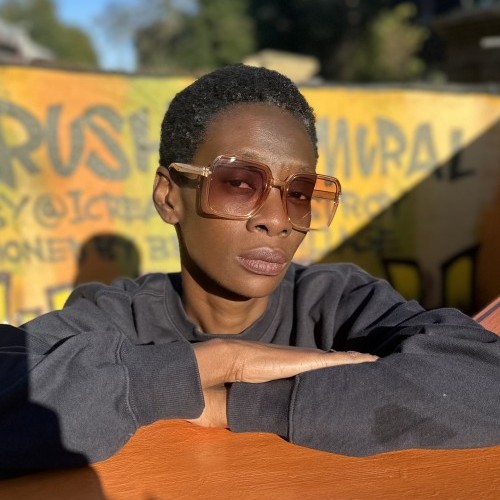
Cyndi Anafo
Director, Peckham Palms, UKWith a rich foundation in retail, entrepreneurship, and community activism, Cyndi Anafo is a natural fit for her role as Director and majority owner of Peckham Palms. Raised in South London by a single mother who was both a shopkeeper and entrepreneur, Cyndi's connection to business and community began early. She brings a wealth of lived and professional experience to her work—having traded at local markets, co-owned the Black- led lifestyle store United80, and co-founded The Snugg Bar (now Supercute) in Brixton Village, which she managed until 2014. In parallel with her business ventures, Cyndi is a seasoned cultural events producer and social commentator, with a focus on issues affecting her immediate community. Her deep-rooted ties to Brixton and passion for social justice led her to launch Reclaim Brixton, an anti-gentrification movement that mobilized over 3,500 people in a peaceful protest at Windrush Square. The campaign spotlighted urgent local concerns—from housing and business displacement to the decline of public services. Cyndi’s multifaceted entrepreneurial journey, community-first ethos, and dedication to preserving local culture make her a dynamic force behind the continued growth and sustainability of Peckham Palms—and a vital advocate for South London’s creative and cultural future.Creating Peckham Palms: An alternative development model for gentrifying neighbourhoods
Abstract Copy
The session will tell the story of the founding and creation of Peckham Palms in association with Southwark Council and funders Impact on Urban Health.
Peckham Palms is a retail arcade and workspace that is home to 25 Black female business owners in Peckham and was built to replace community business space lost as part of a redevelopment. The speakers Cyndi Anafo and Paul Smyth have led the project from its inception through to now being a thriving business hub and community resource for the Black community and local Peckham residents.
The space demonstrates an alternative approach to regeneration in changing neighbourhoods. Changes that the speakers believe often inadvertently overlook or fail to prioritise community needs and diverse businesses, as there are both biases at play and also not enough high quality examples of community-led retail and workspaces that serve diverse community needs.
The workshop will provide a case study and example of the alternative model that Peckham Palms represents. The session will focus on:
• the role of the local authority in identifying and initiating the project;
• the community consultation work that identified a design brief and functions of the new building;
• the management model that was established to operate the space;
• the intersectional issues of gender, ethnicity and local needs that play a role in the operations;
• the organisations impact;
• the role of external funding in supporting the activities;
• an exploration of this model of community-led development and space management for future regeneration schemes; and
• a discussion on the Social Commercial Landlord model, which Peckham Palms has pioneered.
The session will take the form of a presentation followed by questions and answers from participants.Learning Objectives
- A example model and case study for Local authorities wishing to manage and avoid gentrification and community displacement in new developments
- Insights into the nuts and bolts of community workspace management and business models
- Explore the role of community leaders and social entrepreneurs in establishing successful community enterprises
16.20Backin’ Birkenhead: A case study description of community-led regeneration in the ‘trailblazer neighbourhood’ of Central Birkenhead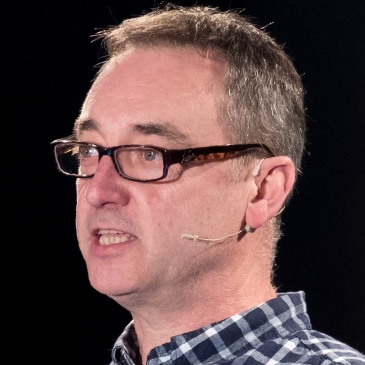
Graham Marshall
Director, Prosocial Place, United KingdomGraham is an urban designer and landscape architect of longstanding. His work spans research and practice from strategy to detailed context of specific regeneration programmes. He has a particular interest in the meaningful involvement of community members in regeneration and the development of lifetime conversations that reconnect people to their places. He is the Chair/Mentor of the Backin' Birkenhead Town Team that is delivering a community-led Place Plan for Central Birkenhead.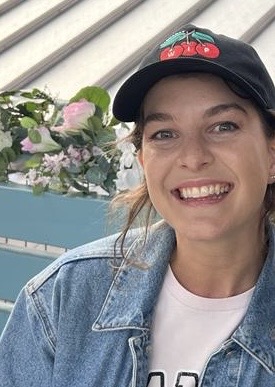
Rebecca Crook
Senior Research Fellow, Groundswell consortium, University of Liverpool, United KingdomRebecca is senior research fellow working in the Groundswell consortium based in the University of Liverpool. She has a particular interest in the involvement of community members in decision-making focussed on urban green and blue space. She is leading an evaluation of the community involvement processes in the regeneration of Central Birkenhead.Rhiannon Corcoran PhD
Professor of psychology and public mental health, University of Liverpool; Fellow, Centre for Urban Design and Mental Health, UKRhiannon’s research focuses on psychological, social and environmental mechanisms and determinants of mental distress and wellbeing. In particular, she is interested in social cognition and on how our living environment affects our ability to feel good and function well. As an applied social scientist, Rhiannon’s mission is to put research findings into practice. She does this by combining her work at the university with herwork as a co-director of Prosocial Place , a social enterprise that specialises in putting wellbeing and mental health at the heart of place-making and regeneration. In this capacity Rhiannon has worked on several national programmes such as the NHS Healthy New Towns Initiative and with DLUHC, DCMS and Design Council. Rhiannon’s work in social cognition involves both 'clinical' and non-clinical groups of people where she has a particular interest in the psychosis spectrum, common mental distress and the autistic spectrum. Rhiannon uses diverse methods within quantitative and qualitative approaches including real world and realistic evaluation, quasi-experimental and neuroscientific techniques.Backin’ Birkenhead: A case study description of community-led regeneration in the ‘trailblazer neighbourhood’ of Central Birkenhead
Abstract Copy
By the time the Government announced funding to support community-led regeneration in 25 trailblazer neighbourhoods as part of its UK Spending Review, the Backin’ Birkenhead Town Team was well on the way to producing a wellbeing-focused, community-led Place Plan for Central Birkenhead, one of the trailblazer neighbourhoods.
This presentation will be led by key members of the Town Team steering the practice and evaluation of this grass-roots initiative. Grounded in a multidisciplinary evidence base of public health, psychology, and urban design, the process of meaningful community engagement and leadership in Central Birkenhead will be described.
Further, the method that has led to the strong recommendations that underpin Central Birkenhead’s social and physical regeneration will be outlined, including a breakdown of the community sessions and the satellite activities that have taken place. Alongside this, the initial findings from a large-scale qualitative evaluation of the many stakeholders involved in Central Birkenhead’s community-led renaissance will be presented.
Learning Objectives
- To inform about the practice of meaningful community leadership of regeneration
- To share the outcomes, outputs and out-turns of the Community-led Place Plan for Central Birkenhead
- To share the initial findings of a large scale qualitative evaluation of the community involvement practices that are part of the regeneration of Central Birkenhead
16.40Panel discussionEnd of Community impact stream
Healthy City Design International Awards
Quays Theatre
17.00 - 17.45Session 22- Awards ceremony
Prof Jeremy Myerson
Co-founder, Healthy City Design; Chairman, WORKTECH Academy; professor emeritus, Royal College of Art, UKJeremy Myerson has been academic, author and activist in design for more than 40 years. He co-founded the Helen Hamlyn Centre for Design in 1999, and was its director until 2015. Last year, he received emeritus professor status at the RCA, and he continues to direct his own venture, the WORKTECH Academy, which provides a forum for academics and practitioners to share new ideas on the future of work and workplace. He is the author of more than 20 books on a wide range of subjects in art, design and architecture, and he has curated many national design exhibitions. He has been at the helm of the Healthy City Design Programme Committee since the Congress’ inception in 2017.17.00Healthy City Design International Awards 202517.40Closing remarks17.45Close





